Tags :: Religious Themes
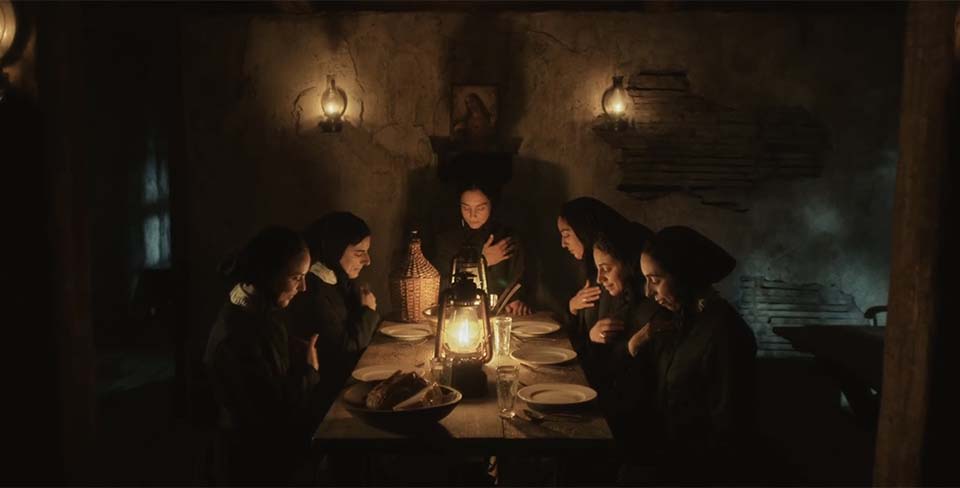
The face of God in Cabrini
Does the movie “secularize a saint”? Reckoning with the curious dearth of God talk and overt religiosity in this faith-based biopic about the founder of a religious community
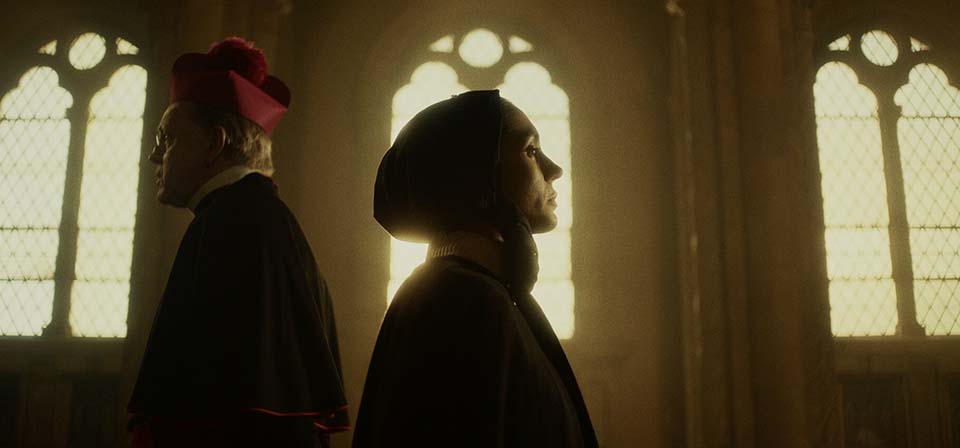
Cabrini celebrates human dignity and solidarity; the saint remains an enigma
What kind of world do we want, and what will we do to achieve it? Those are the questions with which Alejandro Monteverdi’s Cabrini leaves us at the end of its 140 minutes. The questions land harder after the story we’ve seen.
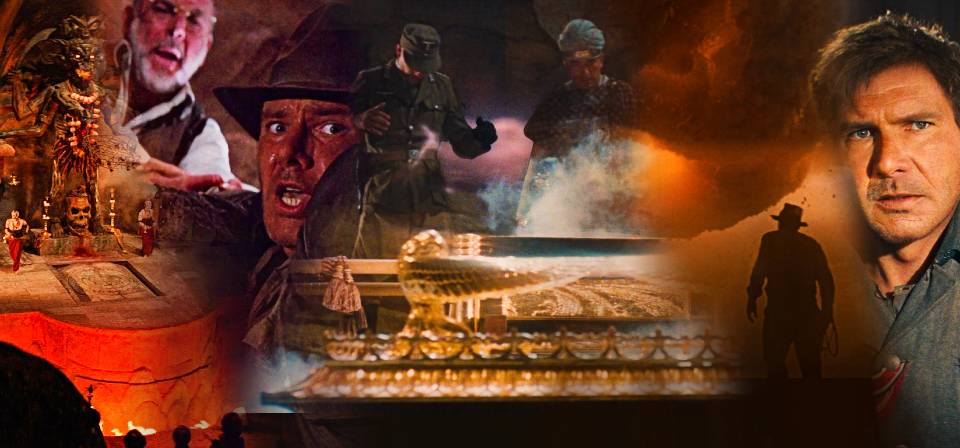
Indiana Jones movies and Raiders of the Lost Ark: Why the original still stands alone
Eight years earlier, The Exorcist offered a gut-wrenching morality tale about, among other things, the spiritual dangers of messing around with Ouija boards and demons. The climax of Raiders offers a complementary warning about trifling with the no less terrible power of the holy.
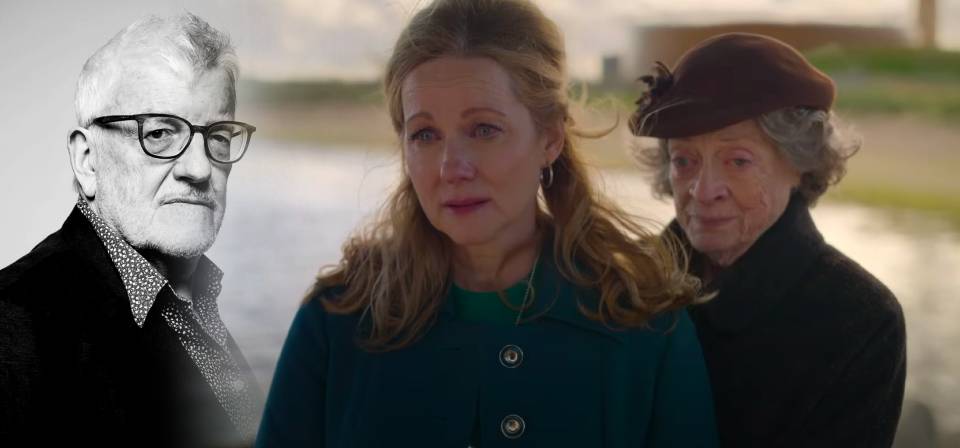
The Lourdes Effect: The Miracle Club director Thaddeus O’Sullivan on Irish trauma and miracles
Laura Linney stars in an Irish comedy set in 1967 about a group of women confronting their past on a pilgrimage to Lourdes. The director talks about the trauma that Irish movies set in this timeframe tend deal with, and what he calls the “Lourdes Effect.”

The Way: Emilio Estevez on the Camino drama—in theaters one day only—and the planned sequel
Martin Sheen is back on the Camino de Santiago pilgrimage route Tuesday, May 16. His son Estevez, who wrote and directed The Way, talks about the film’s legacy and his ideas for The Way: Chapter 2.
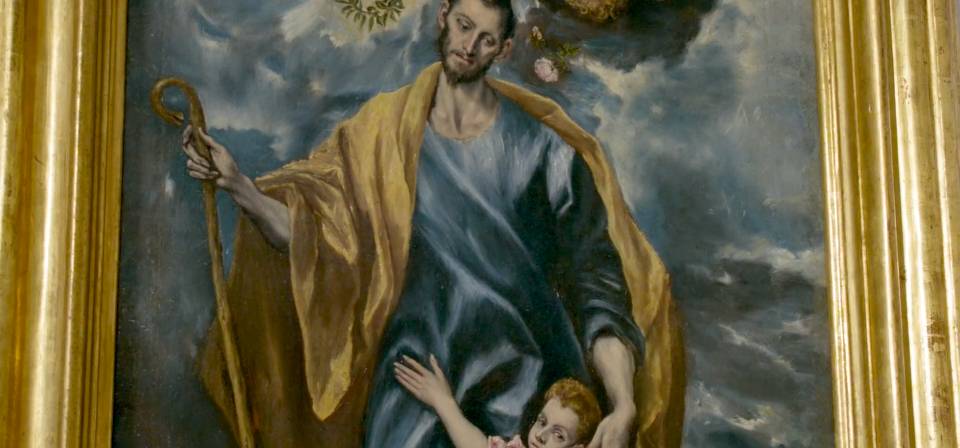
A Father’s Heart: Saint Joseph comes to theaters on May 1
On May 1, the feast of Saint Joseph the Worker, two documentary works — a 90-minute feature about devotion to St. Joseph and a half-hour short about the priest block of the Dachau concentration camp and its dramatic liberation — come to the big screen courtesy of Fathom Events.

Science fiction and transcendence: 2001: A Space Odyssey and the elusiveness of awe
Released 55 years ago, Stanley Kubrick’s iconic masterpiece — honored on the 1995 Vatican film list — has often been likened to “a religious experience.” Why do some of its successors capture this better than others?

Take a Lenten pilgrimage to Santiago — at the movies
Santiago: The Camino Within, a 68-minute documentary narrated by Bishop Donald Hying, is in theaters one day only — Tuesday, March 28 — courtesy of Fathom Events.
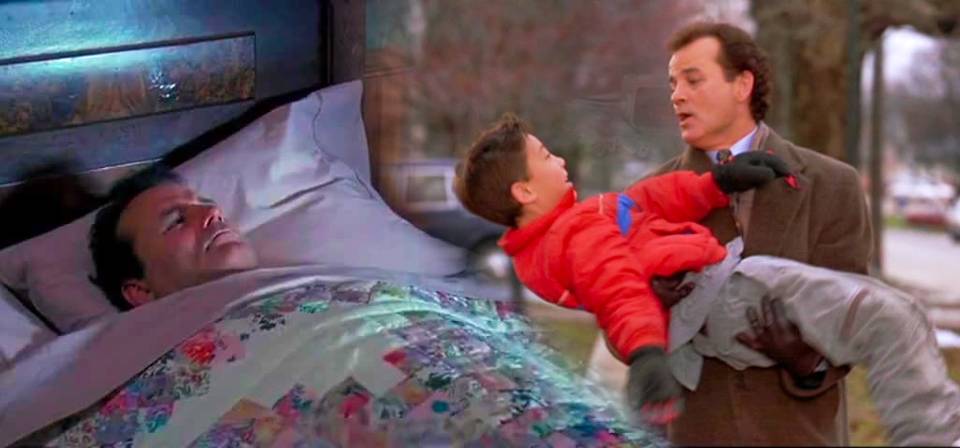
Groundhog Day at 30 and the riddle of Bill Murray
Thirty years on, the spiritually evocative, time-bending comedy is as beloved as ever, but its legendary star has been subjected to new scrutiny over reports of inappropriate behavior.
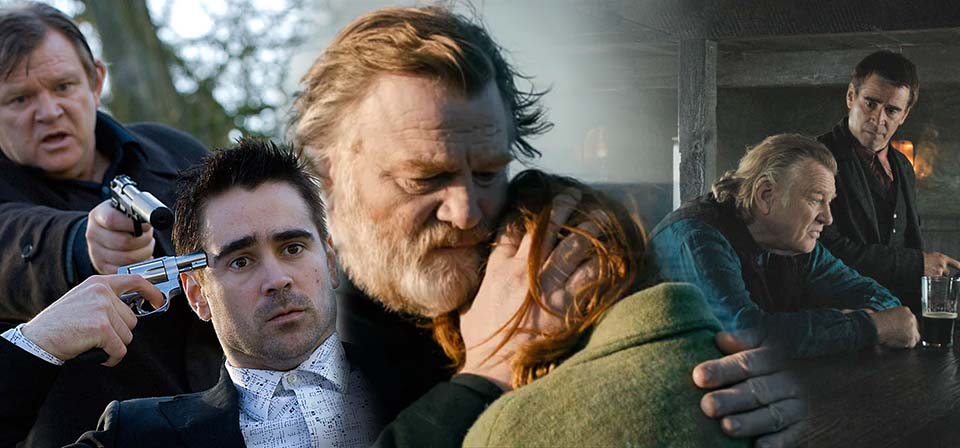
The Gospel According to the McDonaghs: The Banshees of Inisherin, Calvary, and In Bruges
It’s tempting to view Calvary alongside Banshees and Bruges as a sort of unintentional McDonagh brothers trilogy: a “lapsed Catholic” trilogy, or, a bit more accurately, a “bad Catholics” trilogy, since most or all of the characters in Banshees and many of the characters in Calvary are at least minimally practicing.
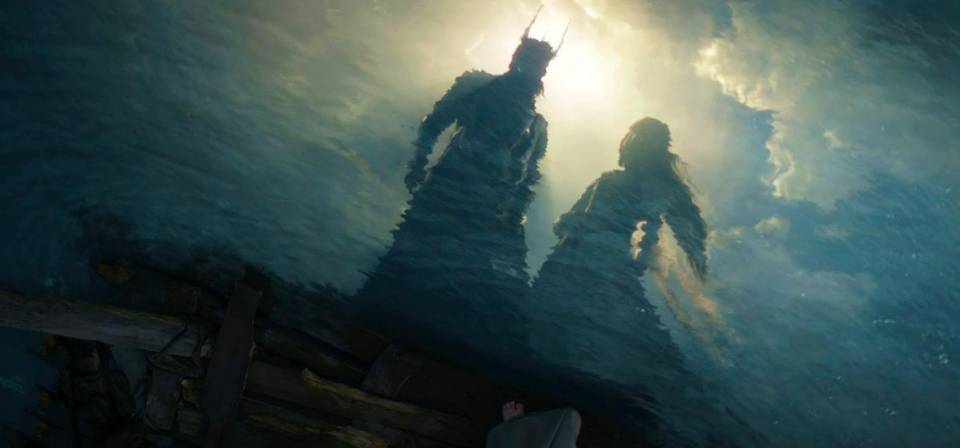
The Rings of Power at the end of season 1
Season 1 ended for me closer to the quiet end of the whimper-bang spectrum than I had hoped. Yet the highs of the season’s second half offer ongoing reason for sustained interest.

The Rings of Power: Season 1 at the halfway mark
Four episodes in, the lavish Amazon Prime series is delivering on at least some of its promise, but there’s room for improvement.
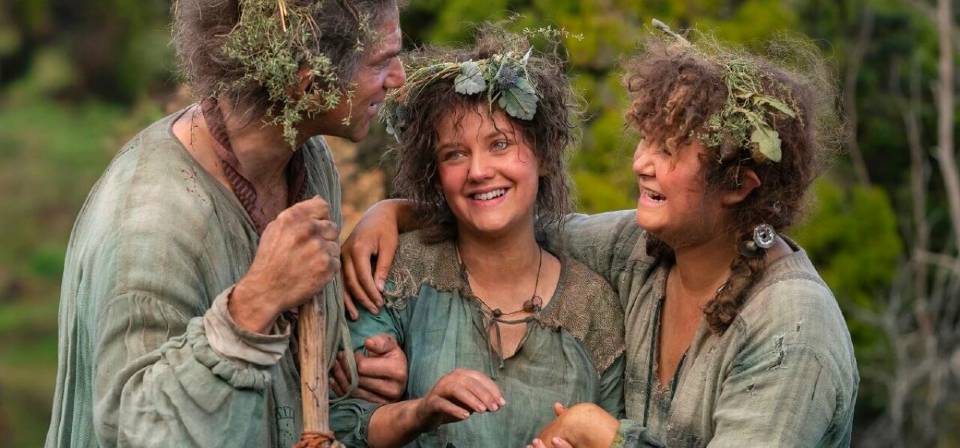
A new foray into Middle-Earth: The Rings of Power
A Game of Thrones–ification of Tolkien? More Hobbit trilogy excess? Though not without missteps, Amazon’s ambitious Lord of the Rings prequel series gets off to a fairly promising start.

Love and thunder, signifying nothing? Religion and nihilism in recent Marvel movies
Recent installments in the Marvel Cinematic Universe exacerbate the tension between the franchise’s humanistic ethos and its nihilistic cosmos. Is there still room for God in this universe?
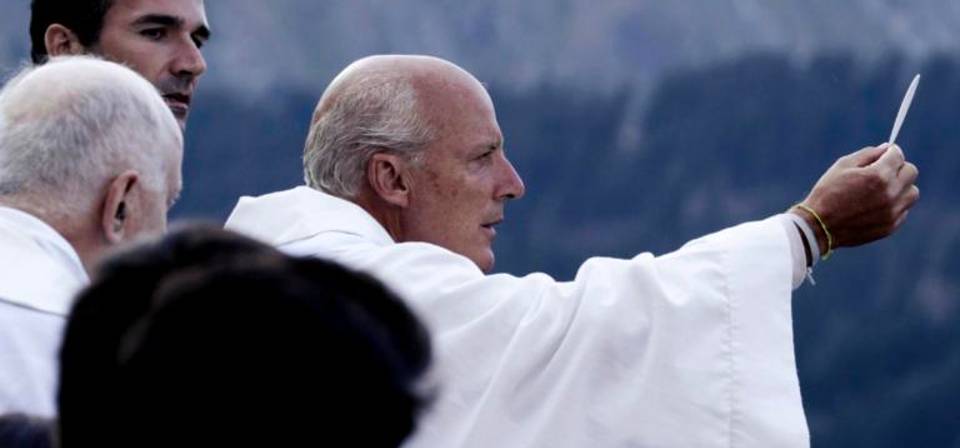
Vivo/Alive: A documentary about Eucharistic adoration returns to theaters for one day only
Vivo remains focused on the experiences of its subjects and their spirituality. It’s not a catechetical or apologetical presentation, but a portrait of five souls and a document, perhaps, of the workings of grace. Vivo is alive.

Why is there no religion in The Lord of the Rings?
If The Lord of the Rings is “fundamentally religious and Catholic,” why are there no religious institutions or rituals?
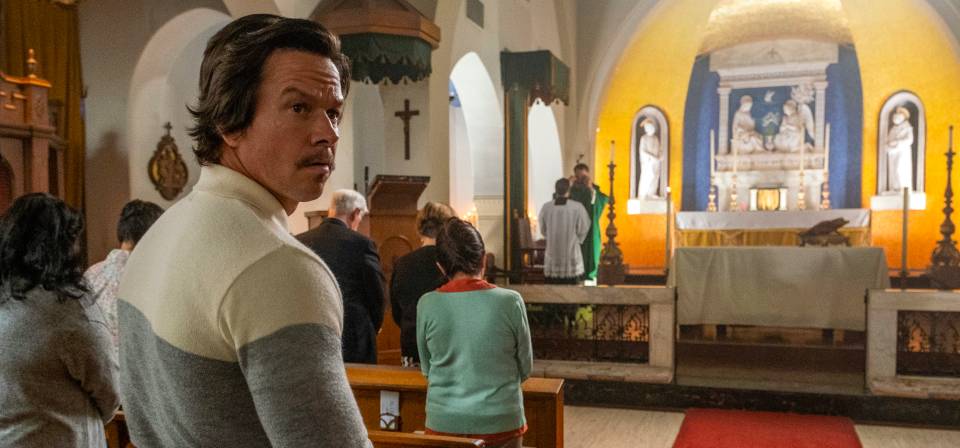
Father Stu is a mostly endearing, shaggy redemption story
Based on the unlikely true story of an amateur boxer turned priest who died of a rare degenerative disease, Father Stu leans on Wahlberg’s mischievous charm and buoyant aura of invincibility, with hints of something darker and more fragile beneath the surface.
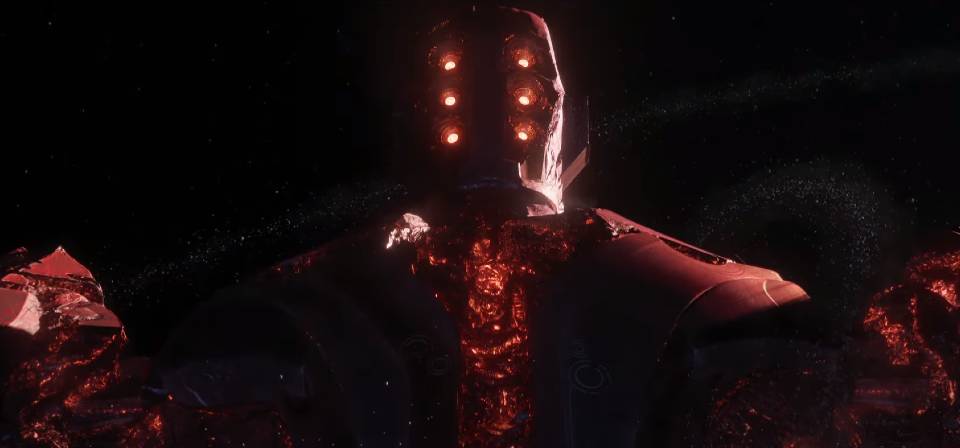
Marvel’s Eternal problem: The Man, the Powers that Be, and God
Incarnations of The Man vary from one MCU movie to another in terms of how sympathetic or compromised he is. Always, though, The Man has damaging secrets, misrepresents his true intentions, and can’t be trusted, at least not completely.
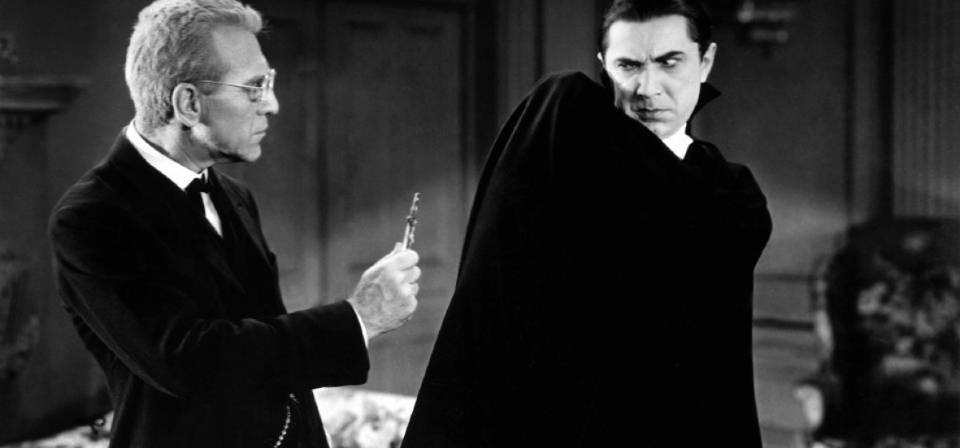
The sacred and the profane: Religious themes in vampire fiction
Almost from the beginning, vampire fiction has been a battleground between the powers of heaven and hell.
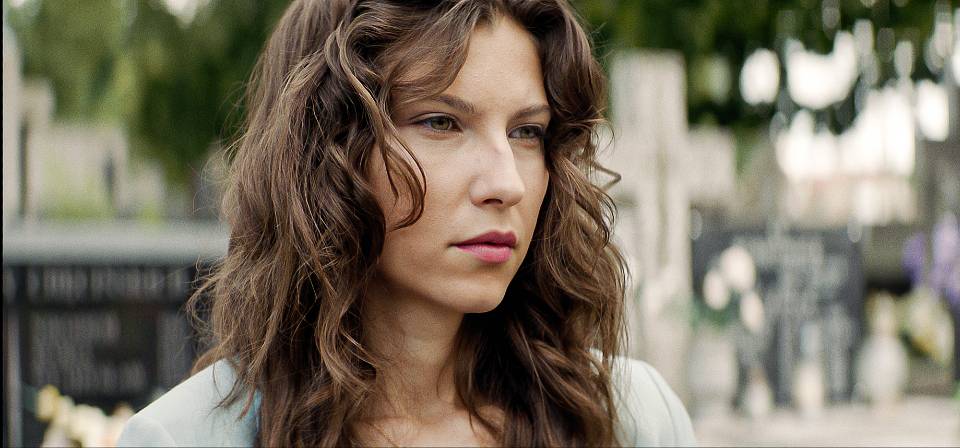
How do you make a documentary about purgatory? Not like this.
That our hatred should burden souls in the process of purification makes sense, but that our grief should burden them seems baffling and cruel — and it’s not a passing idea tossed off in one line.
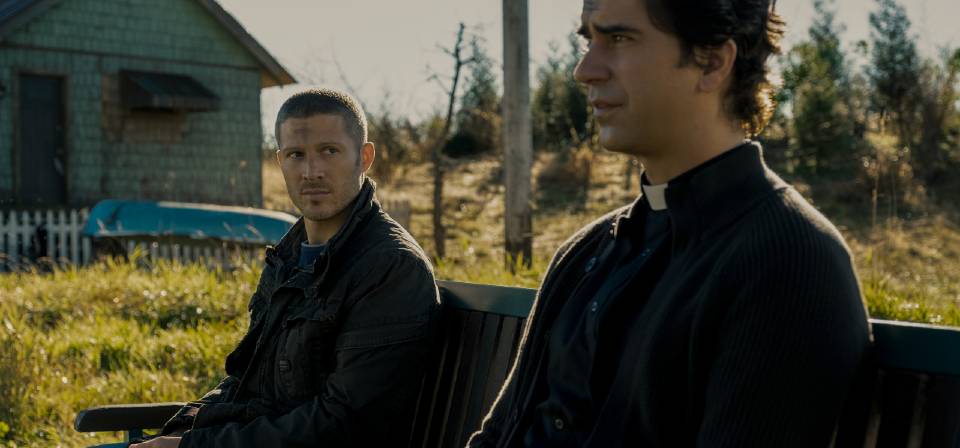
Midnight Mass is drenched in blood and Catholicism, but there’s one thing missing
Midnight Mass isn’t the first vampire story to blend vampirism as a metaphor for addiction with literal substance abuse. It is, however, probably the only paranormal horror story to focus so intently on the role of religion in recovery.
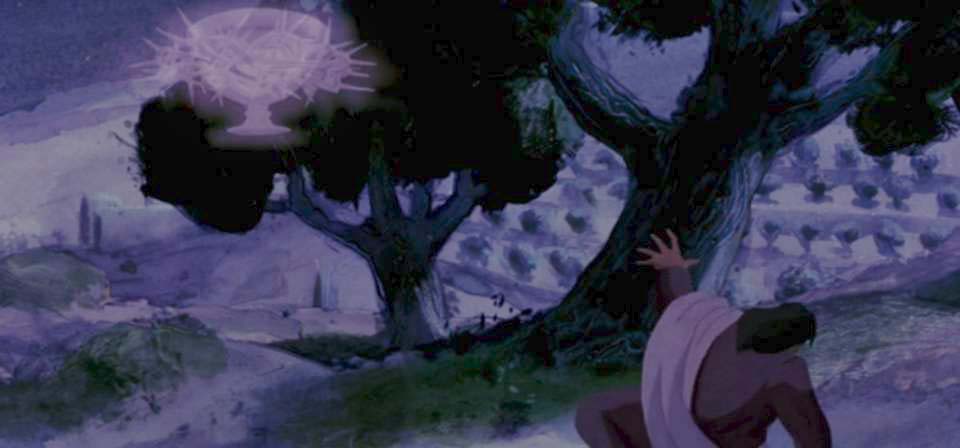
A Triduum ritual: The Miracle Maker
Our seasonal movie-watching during Advent, Lent, and the Christmas and Easter seasons varies from year to year, but Triduum is always the same.
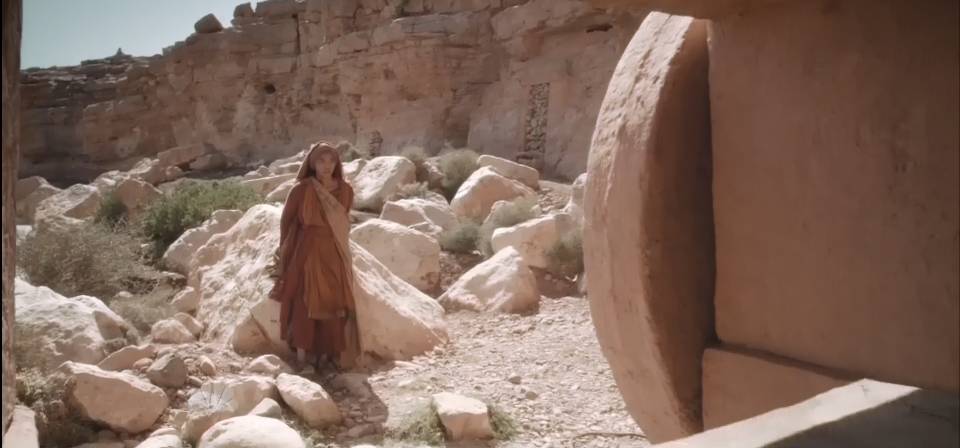
Resurrection (2021)
The Bible world of Roma Downey and Mark Burnett’s LightWorkers Media productions sometimes seems not unlike a movie about Shakespeare in which you hear lines like “To be or not to be, that is the question” and “All the world’s a stage, and all the men and women merely players,” but everyone seems to have heard them already.
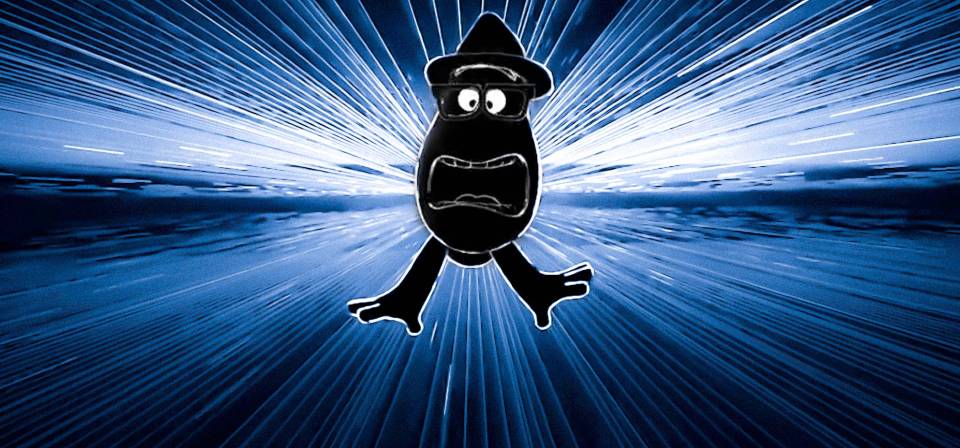
Soul (2020)
Pete Docter’s Soul is Pixar’s third straight original feature, following Coco and Onward, that is explicitly about death, finality, and, in some way, what lies beyond.
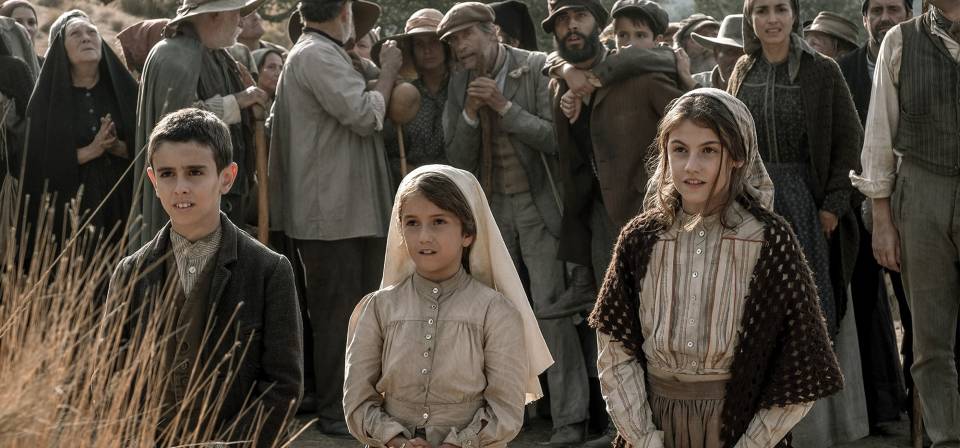
Fátima (2020)
Marco Pontecorvo’s Fátima is the first screen version of the Marian apparitions at Fátima and the “Miracle of the Sun” I’ve seen that feels like the characters are living through the story’s events in the present tense.
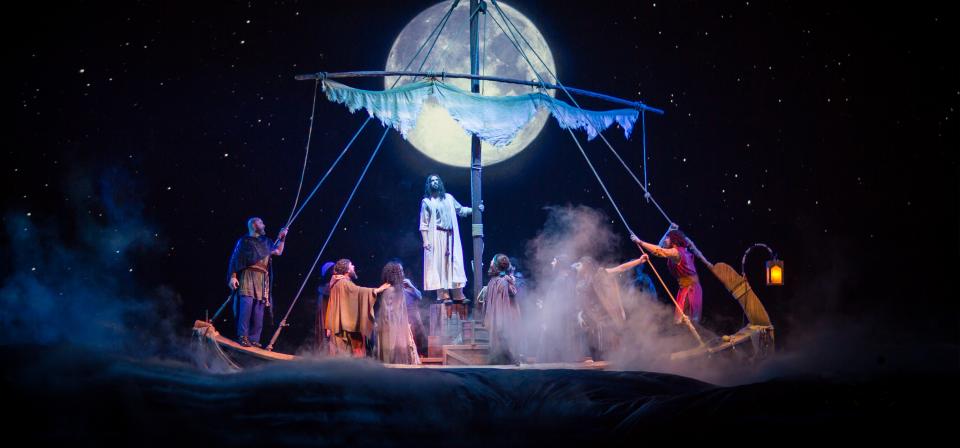
Sight & Sound Theatre’s Jesus: An Evangelical Gospel story
“Where the Bible comes to life” is the slogan of Sight & Sound Theatres, headquartered in Lancaster County, Pennsylvania, in the heart of Amish country.
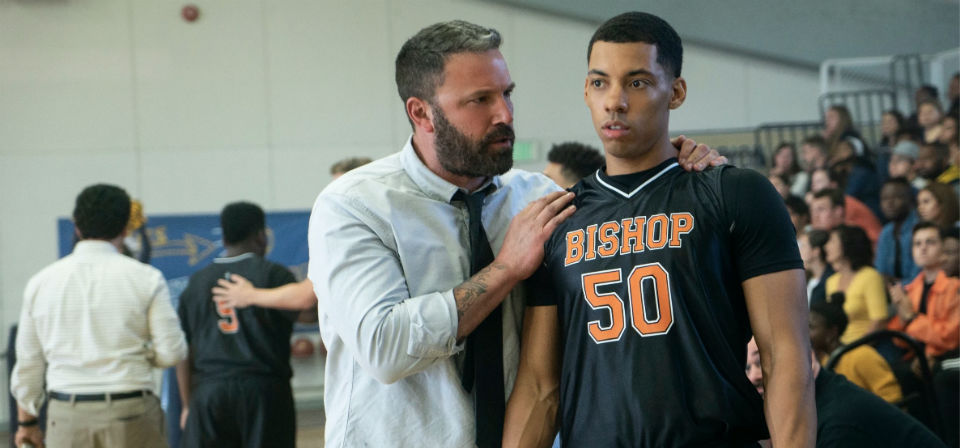
The Way Back (2020)
The Way Back blends the beats of two familiar genres, the underdog sports movie and the addiction and recovery movie, in the process finding a rhythm that feels at once familiar and not quite like anything I’ve seen before.
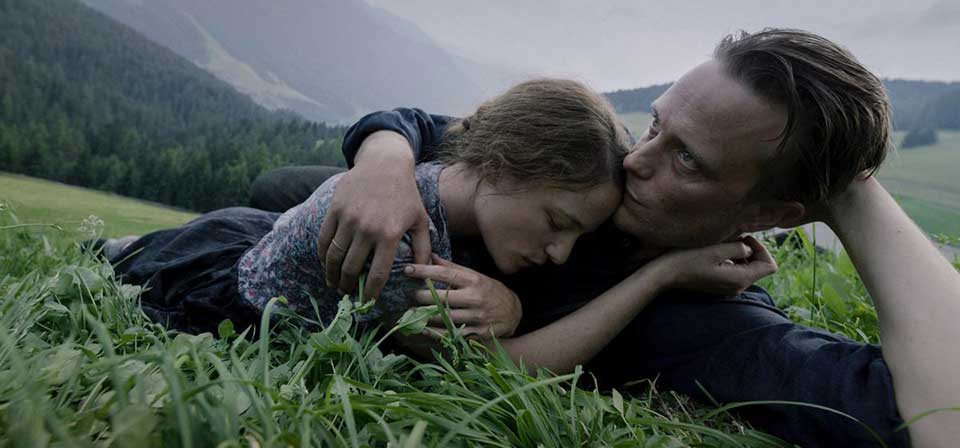
A Hidden Life (2019)
An ecstatic, anguished three-hour cinematic hymn, Terrence Malick’s A Hidden Life sings the life and death of Blessed Franz Jägerstätter in asymmetrical binary form, in contrasting theologies — theology and anti-theology — of the body.
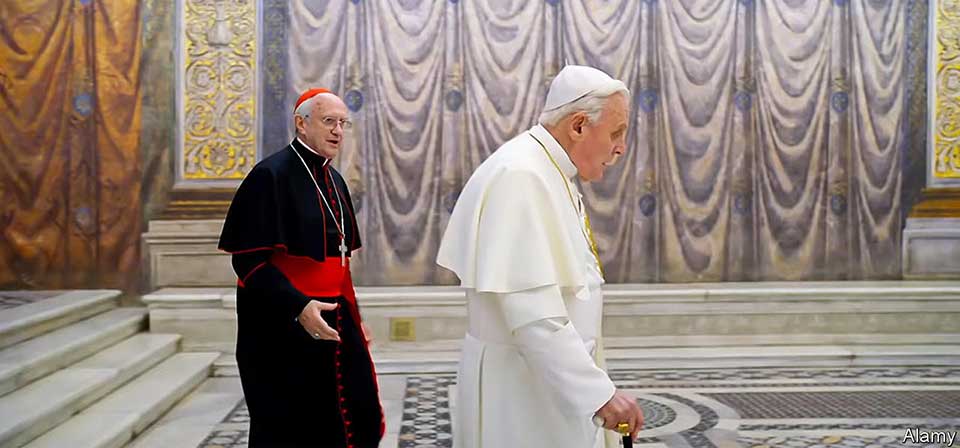
The Two Popes (2019)
For a Catholic critic — or at least for this Catholic critic — a movie like The Two Popes presents a number of temptations.
![By the Grace of God [Grâce à Dieu]](/uploads/articles/bythegraceofgod.jpeg)
By the Grace of God [Grâce à Dieu] (2019)
Near the end comes a moment when Alexandre is asked whether he still believes in God. The scene cuts from a complex reaction shot, the question left unanswered. The point, I think, is neither to affirm faith nor to deny it, but to highlight the stakes. By their action or inaction Church leaders make God more credible or less credible, instill faith or shatter it.

Tolkien (2019)
“One of my strongest opinions,” J.R.R. Tolkien wrote in a 1971 letter, “is that investigation of an author’s biography … is an entirely vain and false approach to his works.”
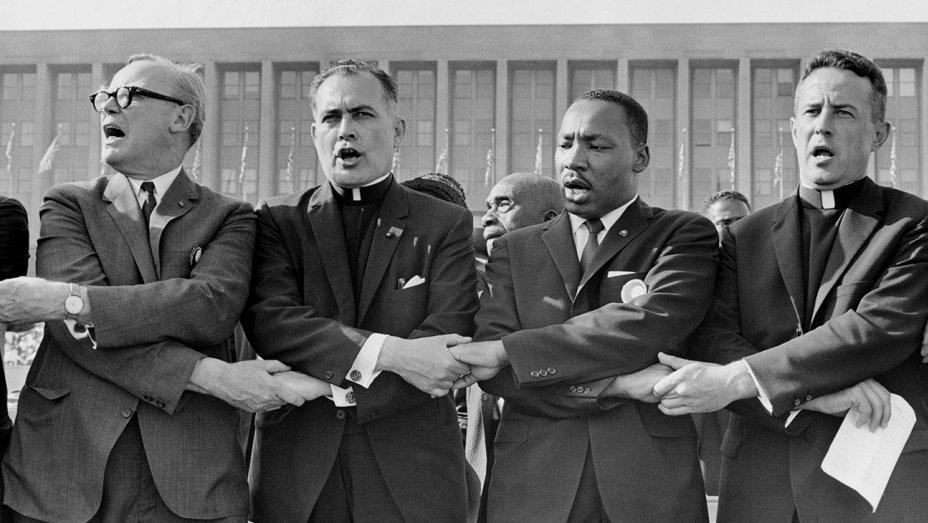
Hesburgh (2019)
Patrick Creadon (I.O.U.S.A.) offers a compellingly attractive if one-sided portrait of a figure of exceptional gifts, astonishingly diverse accomplishments and extraordinary influence.
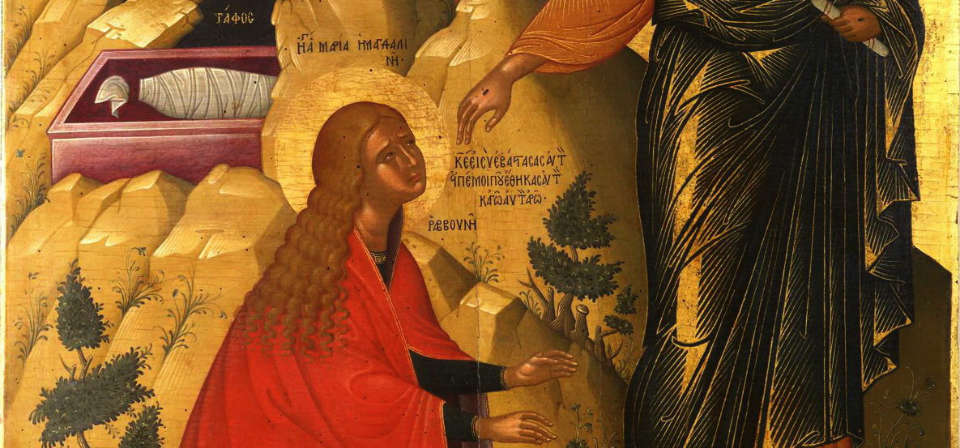
Why Mary Magdalene gets a bad rap
A reader of my review of Mary Magdalene offers an impassioned defense for the medieval Western view of St. Mary Magdalene as a penitent with a notoriously wanton sexual past, a profligate adulteress or harlot.
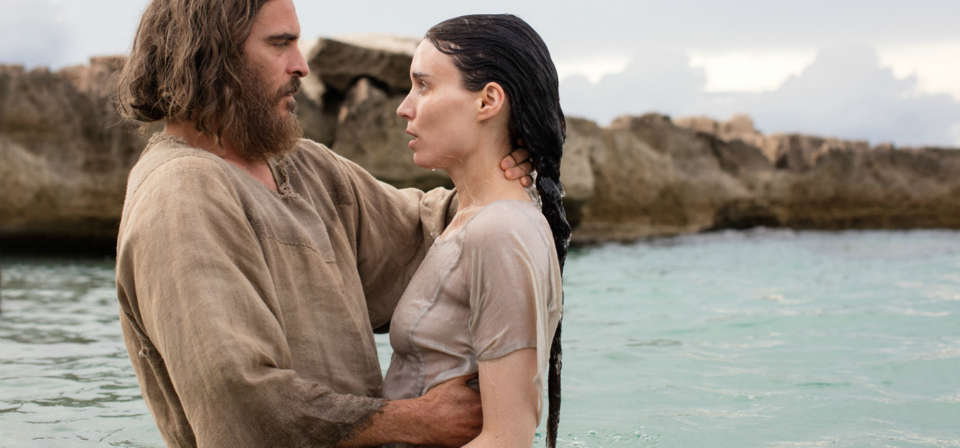
Mary Magdalene (2019)
Somewhere roughly between Risen and Last Days in the Desert in its narrative and interpretive sensibilities, Mary Magdalene presents an interpretation of Jesus’ ministry, passion and resurrection that seems in some ways — with important caveats — fairly traditional, viewed from a feminist perspective with some biblical justification.

Unplanned (2019)
“My story isn’t a neat and tidy one,” Abby tells us at the start, but this telling is still pretty neat and tidy. Perhaps the real story was messier.
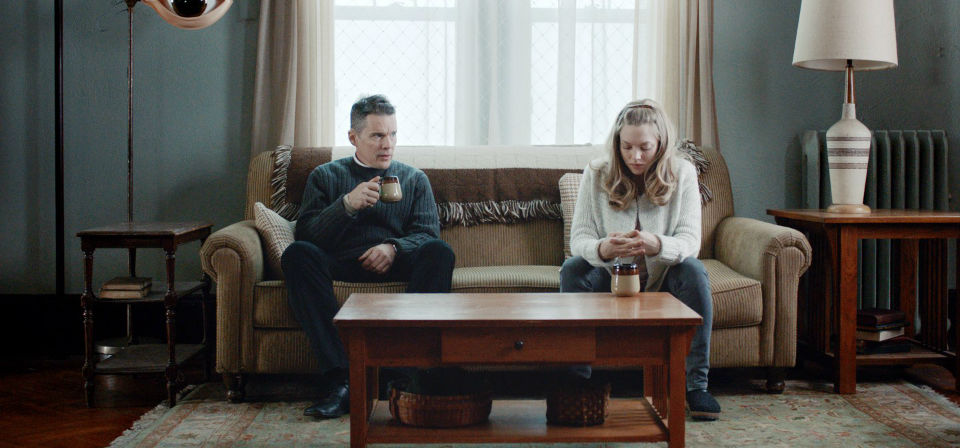
First Reformed (2018)
Schrader makes greater use than ever before of what he calls the “transcendental toolkit” — but it’s still very much a film from the writer of Taxi Driver. If Toller partly evokes Bresson’s wan, saintly curé, in time we see that he’s also part Travis Bickle, which can be as difficult to watch as it sounds.
![Pope Francis: A Man of His Word [video]](/uploads/articles/popefrancismanofhisword-vid.jpg)
Pope Francis: A Man of His Word [video] (2018)
The year’s second-best inspirational documentary about an iconic leader with an ability to connect with people as individuals is still pretty good.
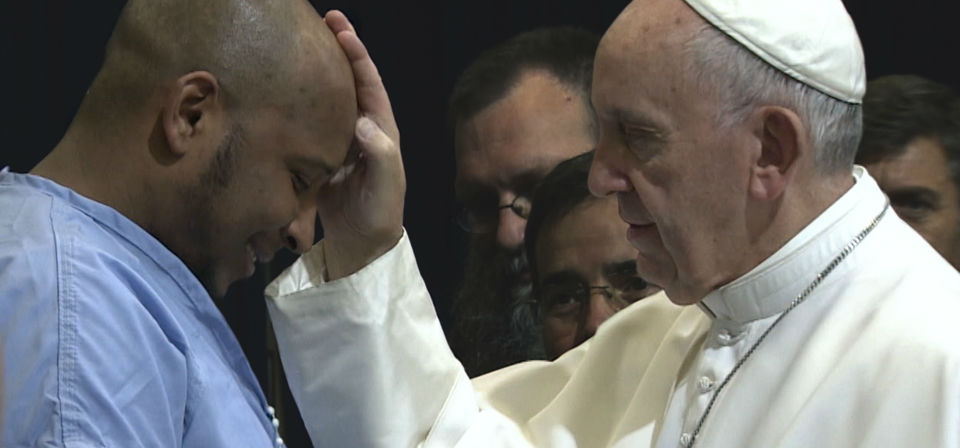
Pope Francis: A Man of His Word (2018)
Wim Wenders, whose eclectic career has embraced arthouse dramas, documentaries, music videos and concert films, approaches the subject of his latest nonfiction film from an unusual perspective: the significance of an unprecedented papal name.
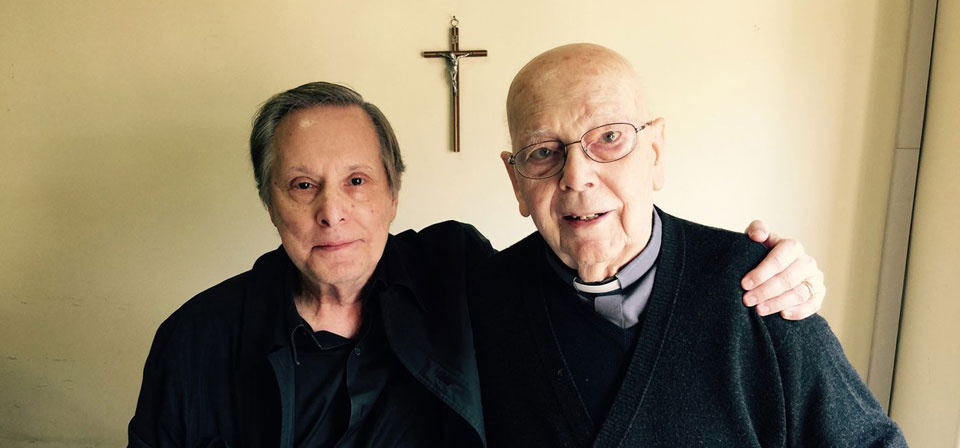
The Devil and Father Amorth (2018)
I am only a permanent deacon and a film critic, not a priest and certainly not an exorcist, but if Cristina’s voice hasn’t been digitally tweaked, for my money the devil needs a new sound design team.
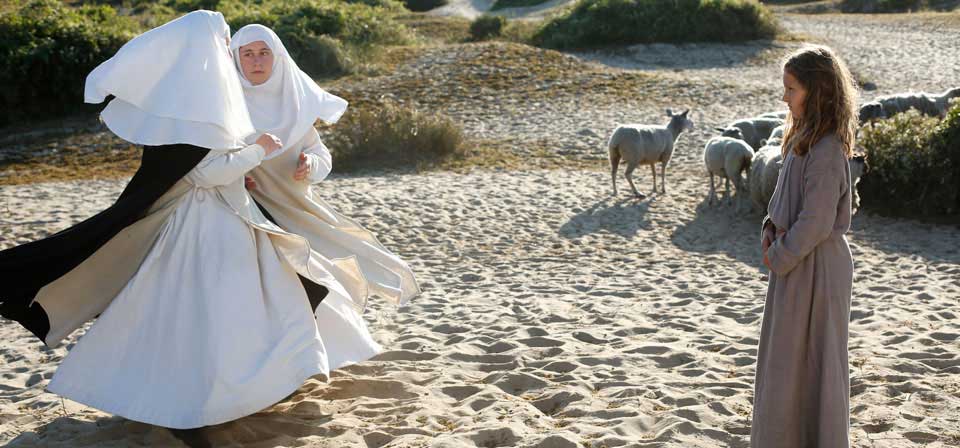
Jeannette: The Childhood of Joan of Arc (2018)
Jeannette is a dialogue, and a mutual cross-examination, not only among the main characters of the drama, and above all between man and God, but also between the poet Péguy and the filmmaker Dumont, and even between Péguy the Socialist unbeliever of 1897 and Péguy the believing Catholic of 1910.
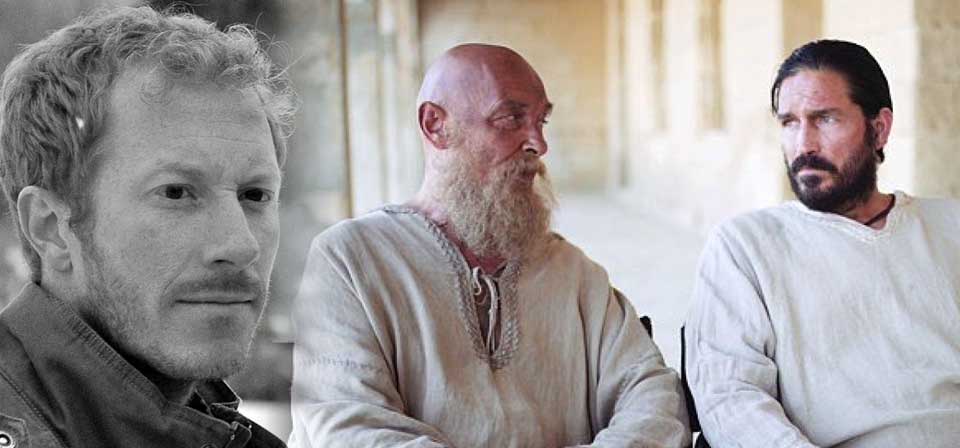
Interview: Paul, Apostle of Christ Writer–Director Andrew Hyatt
The Full of Grace filmmaker talks about the challenges of bringing Scripture to life and the problems with many faith-based films.
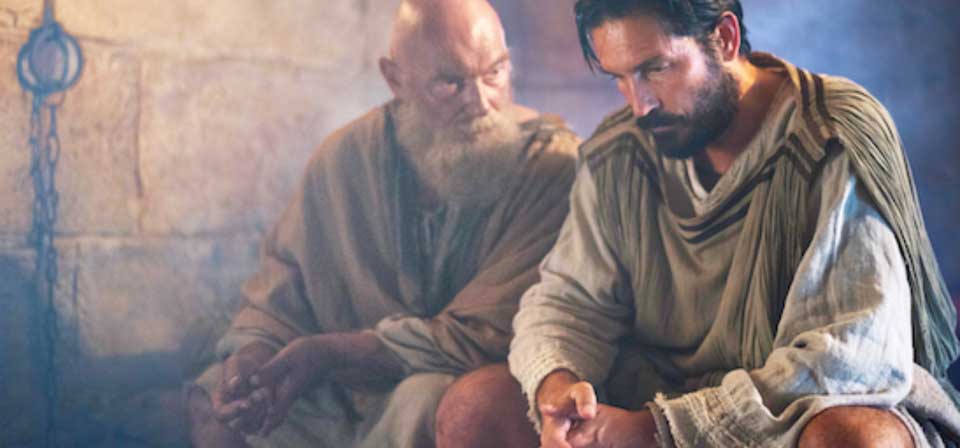
Paul, Apostle of Christ (2018)
It’s not the unmade epic about the life of Paul of Tarsus many would like to see, but what it is is worthwhile in its own right.
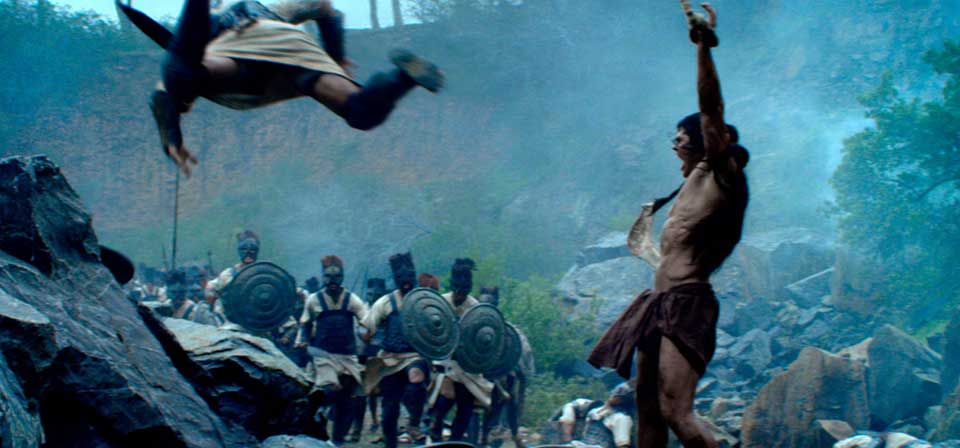
Samson (2018)
If you ever wondered what it might have looked like for Samson to slay 1,000 Philistines with the jawbone of an ass, wonder no more.

The Star (2017)
It’s a little like The Nativity Story meets The Secret Life of Pets, which probably sounds like a winning formula to some people.

Interview: Catholic filmmaker Timothy Reckart, director of The Star
Timothy Reckart is the talented creator of one of the most original and memorable animated shorts in recent years, the 2012 Oscar-nominated stop-motion gem “Head Over Heels.” He is also a devout Catholic working in Hollywood.
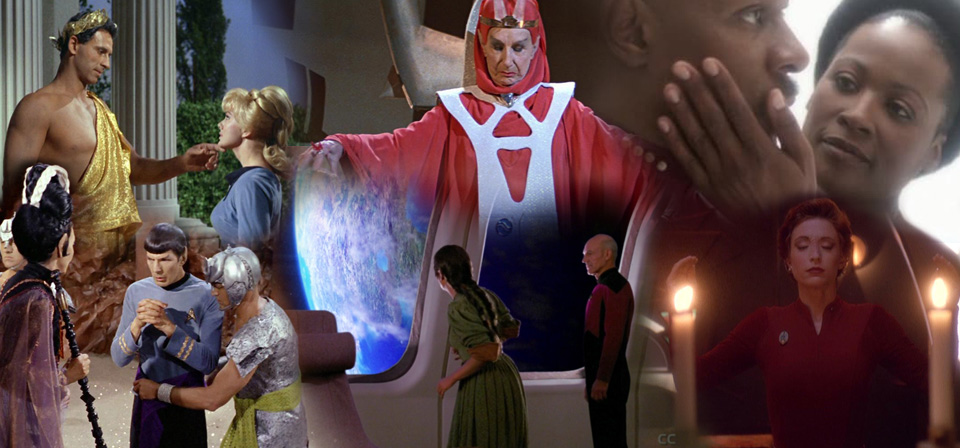
What does a starship need with God?
“What does God need with a starship?” That line, uttered by William Shatner’s Capt. James T. Kirk in the much-derided Star Trek V: The Final Frontier (1989) — co-written and directed by Shatner himself — is probably that film’s most famous (or infamous) moment.
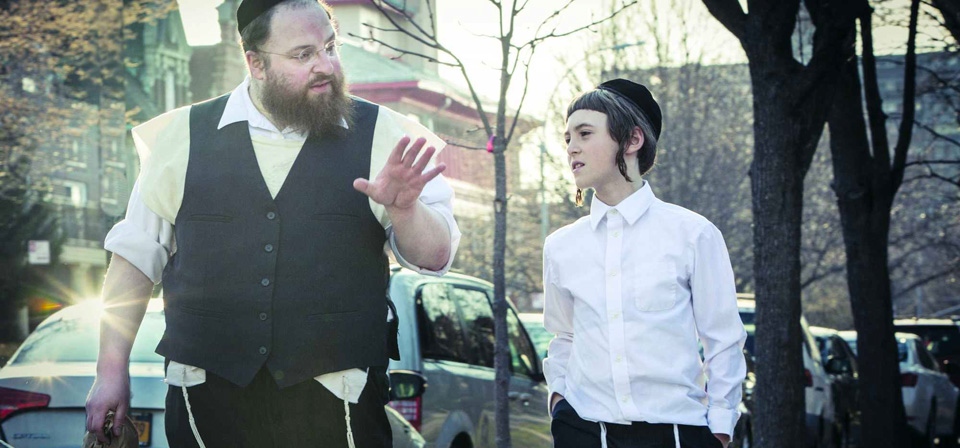
Menashe (2017)
It has been jokingly suggested that all Americans are Protestants — even Catholics, atheists and Jews. There’s a meaningful insight there, although even as a joke it’s an overstatement, and insular communities like the Hasidim manage to resist American cultural identity far more than most. Menashe is different, though I wouldn’t want to suggest that he is a Protestant Hasid. It would be fair to say he’s a bit of a resister or nonconformist, if not quite a rebel.
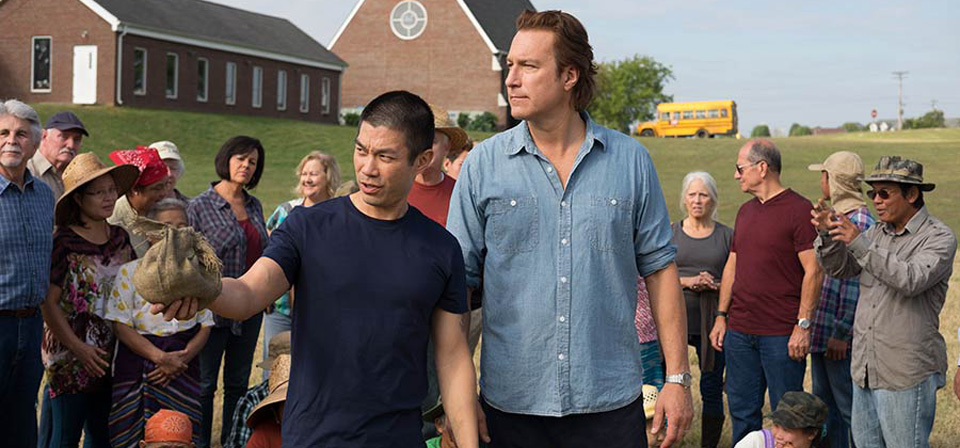
All Saints (2017)
All Saints opens with the most familiar of pious Hollywood setups, the clergyman tasked with saving a threatened church (school, orphanage, etc.). Then something unexpected and kind of wonderful happens.
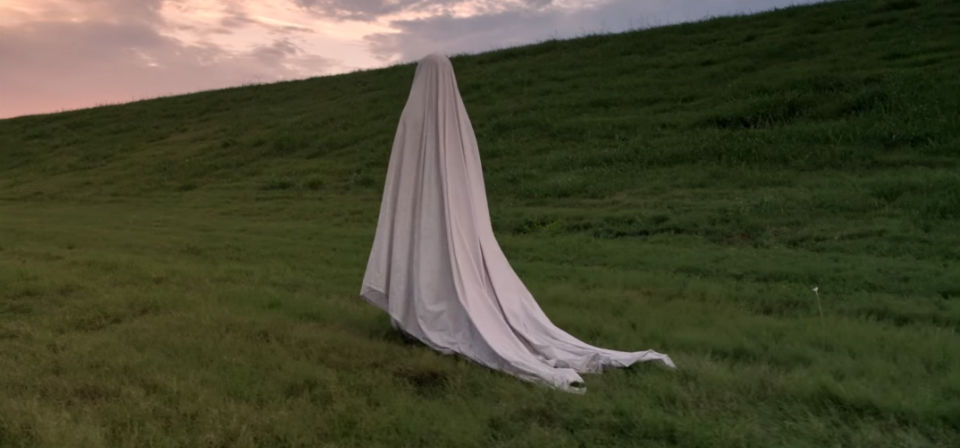
A Ghost Story (2017)
At the heart of A Ghost Story is an audacious visual metaphor. Like many effective metaphors, it is so straightforwardly literal and even absurd that there is no questioning or cross-examining it; like Kafka’s cockroach, or like the pie scene, it challenges you either to shake your head and turn away, or else to take the plunge.
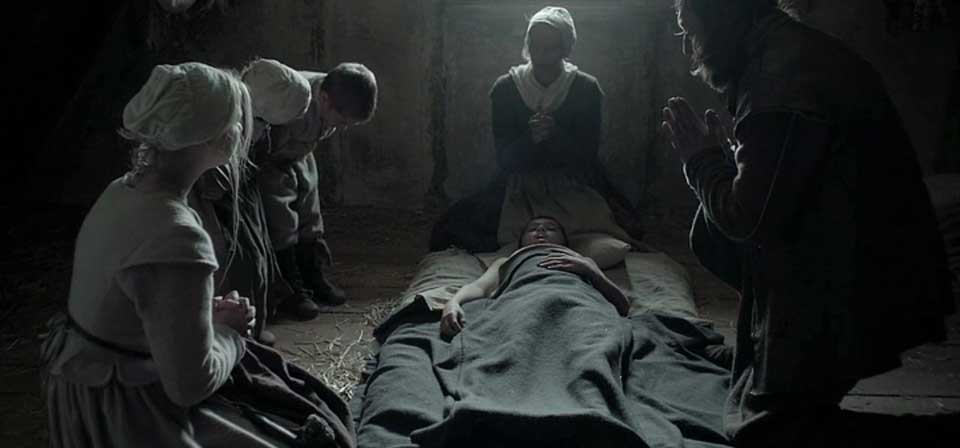
An inherited nightmare: Watching the Puritan horror of The Witch with Catholic eyes
What is most unsettling about The Witch is not the manifest presence of the Devil and the malevolence of his minions, but the seeming absence of God and the impotence of the family’s faith and prayers.
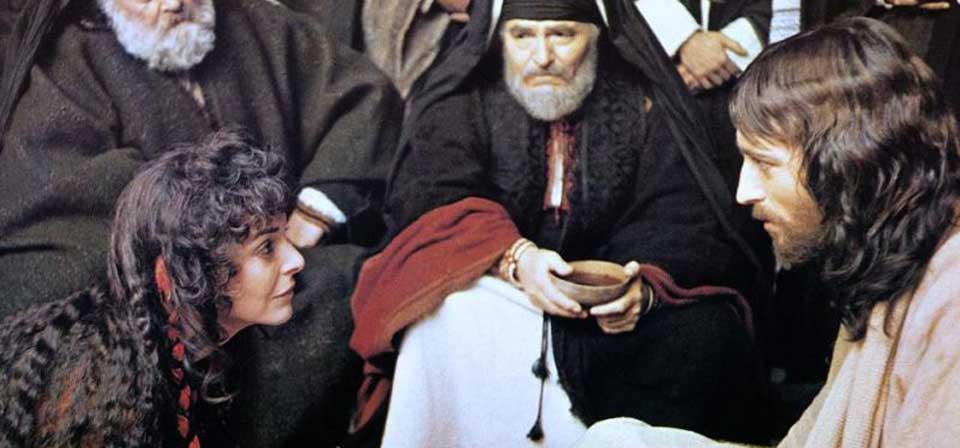
Jesus of Nazareth (1977)
After the four Gospels, if one text is more influential than any other in the tone of Jesus of Nazareth, it might be the Vatican II declaration on the Church in relation to non-Christian religions, Nostra Aetate, a watershed document in Jewish-Catholic relations.
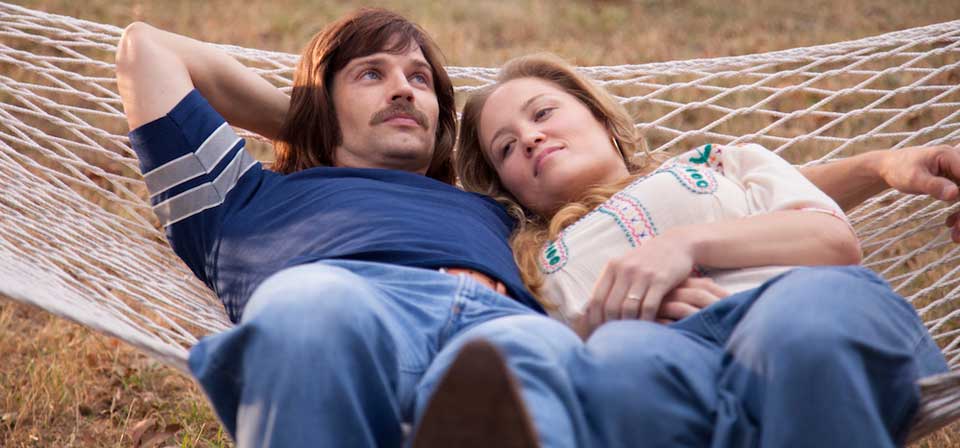
The Case for Christ (2017)
The atheists and nonbelievers in The Case for Christ don’t have horns and tails, or even mustaches for twirling.
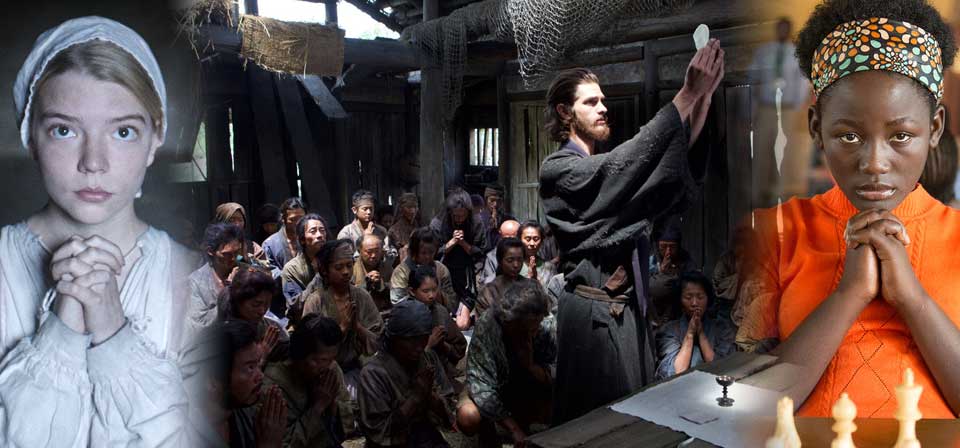
Religion and rootlessness in 2016 movies
The many faces of Jesus at the movies in 2016 were perhaps the most notable trend in a larger pattern of notable religious themes in the year’s films. There were, though, other trends last year worth noting.
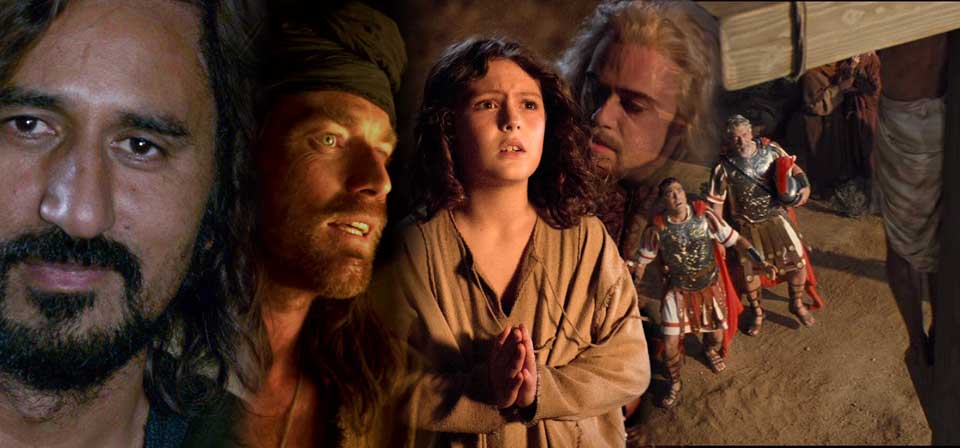
The many faces of Jesus at the movies in 2016
I can’t think of another year quite like 2016. To begin with, Jesus himself was on the big screen in an extraordinary number of screen incarnations.

Silence (2016)
When 17th-century Japanese authorities in the time of the Tokugawa shogunate found it necessary to send the colonial powers of Europe packing and their European Jesus with them, they didn’t just shatter the missionaries’ bodies. They shattered their narrative.
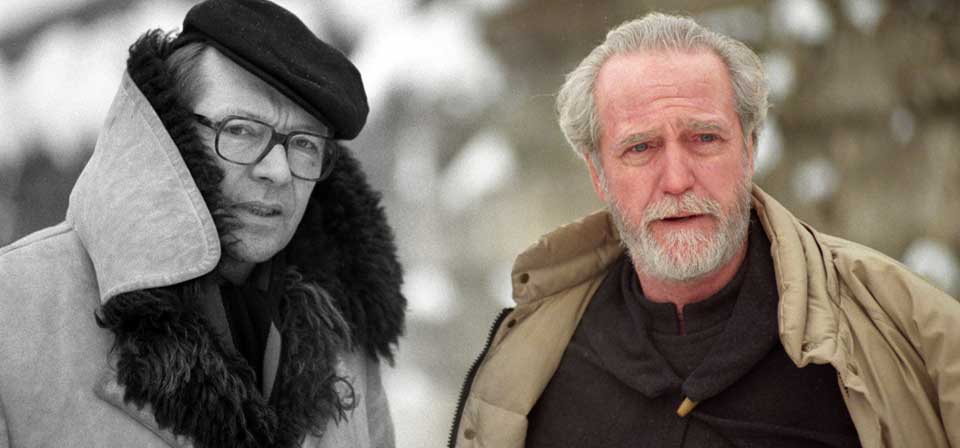
“You do it for Christ, and forget the rest”
Krzysztof Zanussi on Our God’s Brother, Adam Chmielowski, Pope John Paul II, and how he discovered Christoph Waltz.
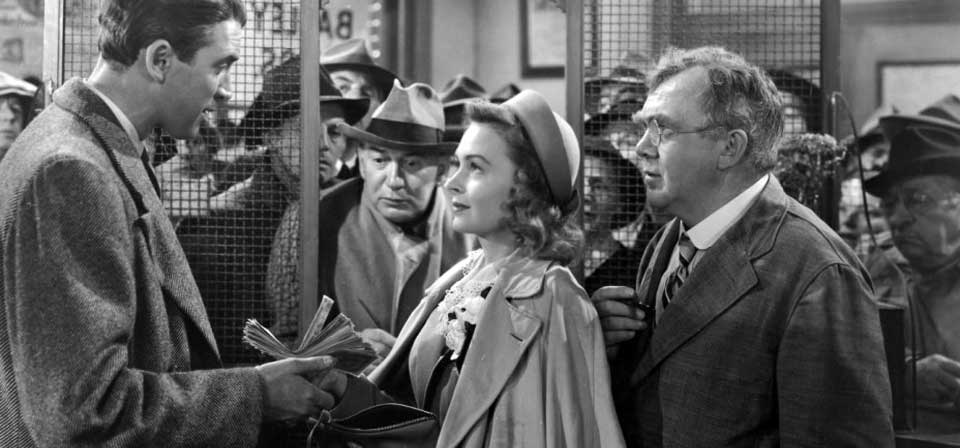
It’s a Wonderful Life (1946)
The truth is that It’s a Wonderful Life is both darker and more subversive than its popular reputation as cheery holiday “Capra-corn” would suggest, and more robustly hopeful than cynics and hipster deconstructionists would have it.

Hillsong – Let Hope Rise (2016)
Possibly the best and most cinematic sequence in Hillsong – Let Hope Rise is a montage that strikingly captures how the music of the Australian Evangelical church-based praise band Hillsong United touches, and unites, people all around the world.
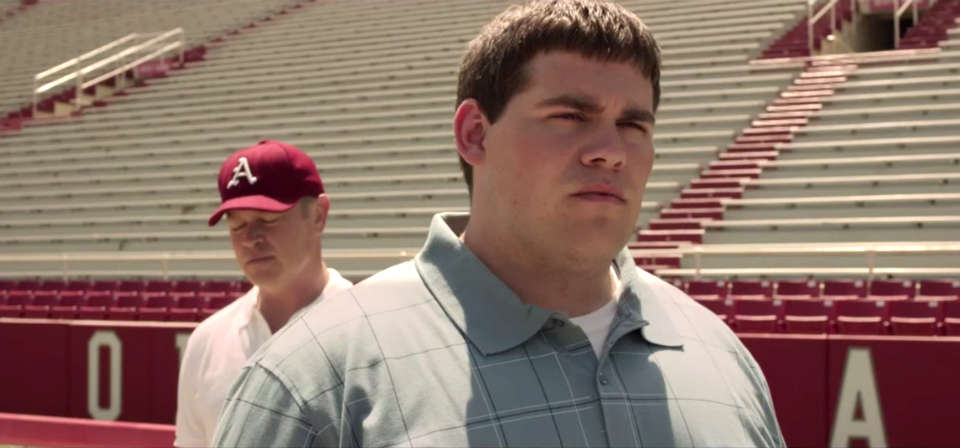
Greater (2016)
Greater has three surprises, which is three more than most faith-based films, particularly of the inspirational sports-movie variety.
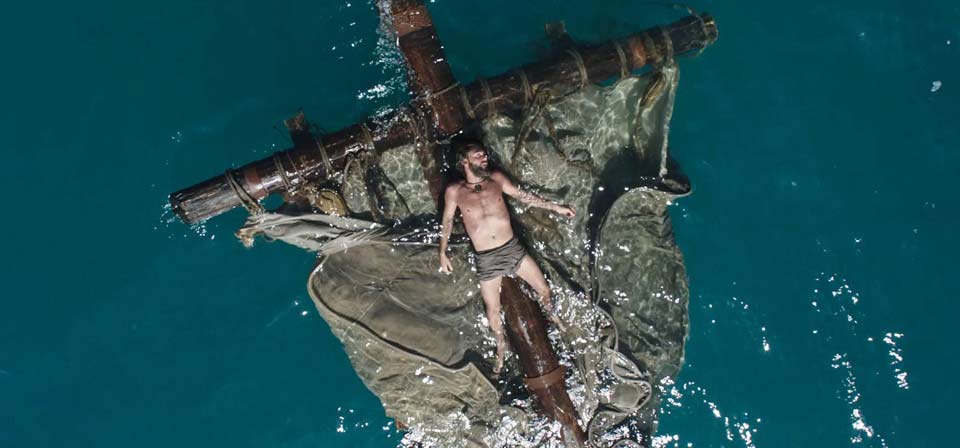
Ben-Hur (2016)
On paper, and sometimes even on screen, there’s some promise and potential in this remake of Ben-Hur.
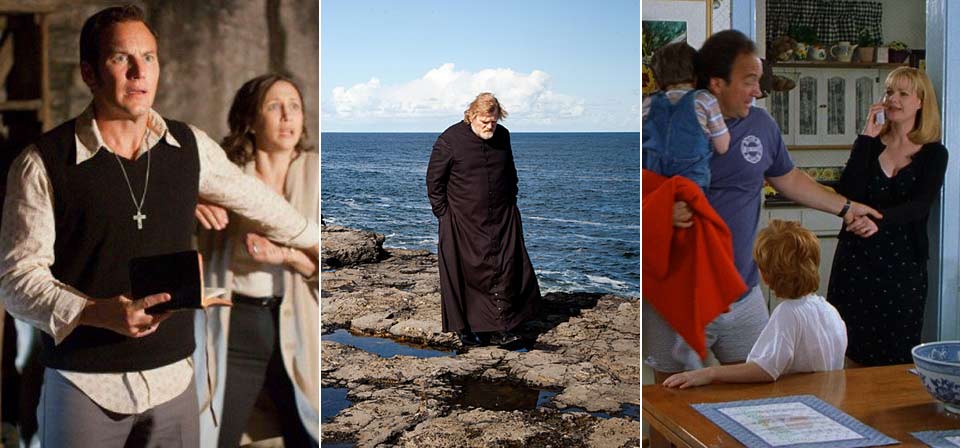
Where are Hollywood’s good Catholic characters?
Here is a sobering question: Has there been a single substantial, positive depiction of Catholic faith or identity in a major Hollywood non-horror film in the last 10 or 15 years?
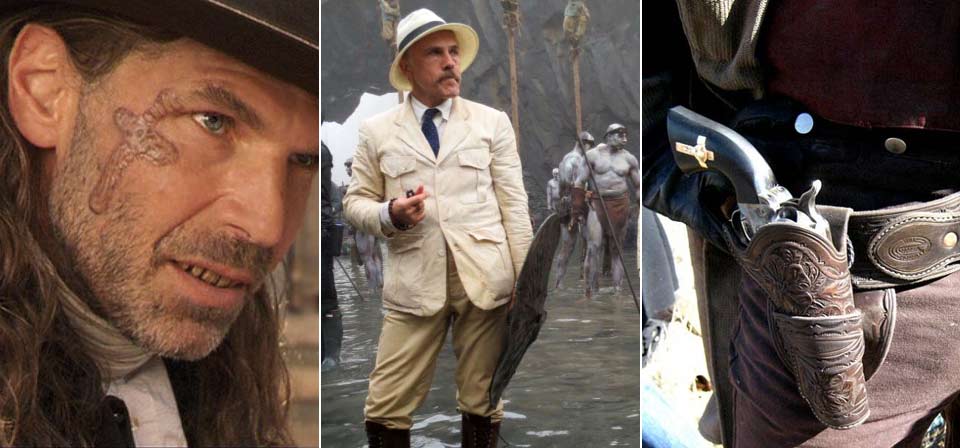
Let’s face it: Hollywood’s got a “religion problem”
One area of representation is disproportionately ignored: how Hollywood deals with religious belief and identity.
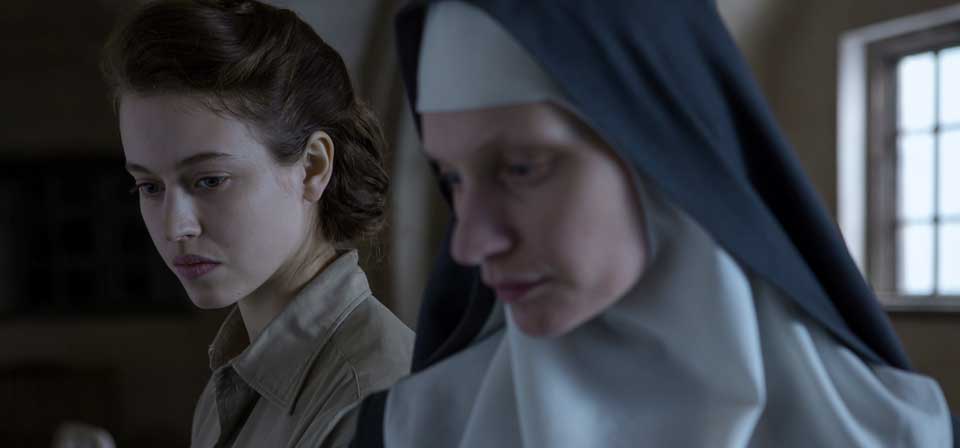
The Innocents (2016)
The Innocents opens in a Benedictine convent in Poland in 1945, shortly after the event known, not without bitter irony, as the liberation of Poland by the Soviet army.
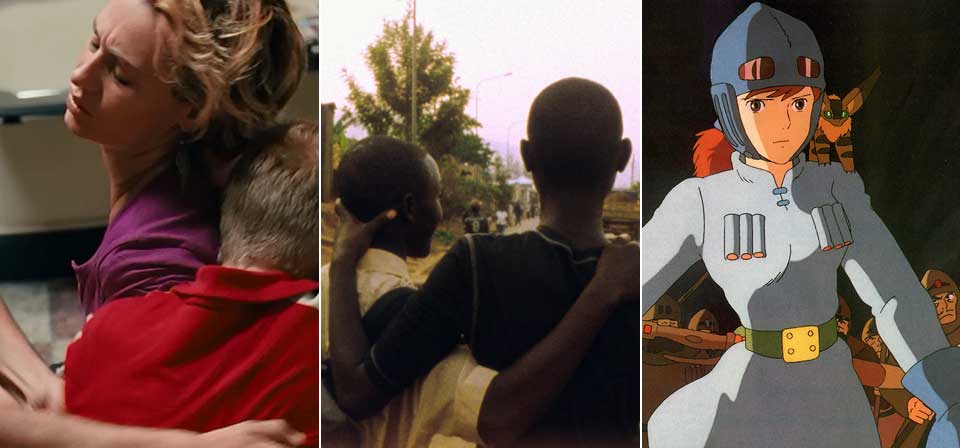
Movies and mercy: The Arts & Faith Top 25 Films on Mercy
In the face of the latest crushing evidence of man’s inhumanity to man, the Top 25 Films on Mercy remind us that the way it too often is isn’t the whole story, or the way it has to be.
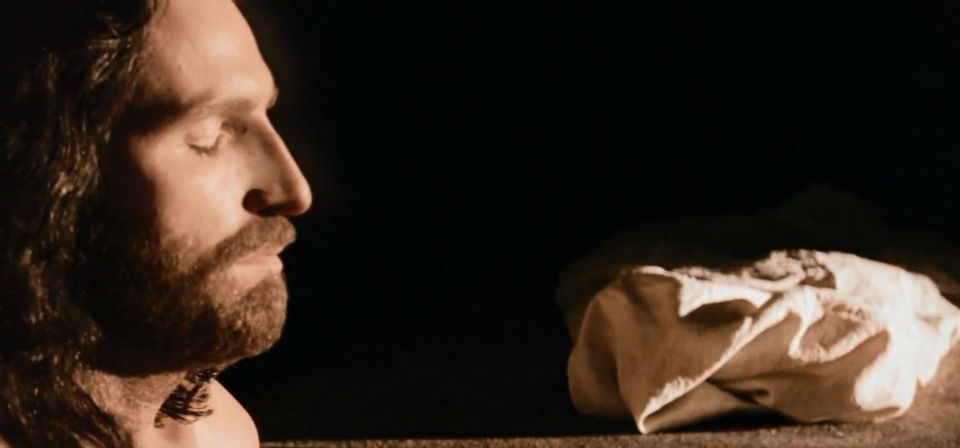
Why a Mel Gibson sequel to The Passion is probably a bad idea
I doubt Gibson is the right filmmaker for the job. First, though, let’s talk about how right Gibson was for The Passion of the Christ.
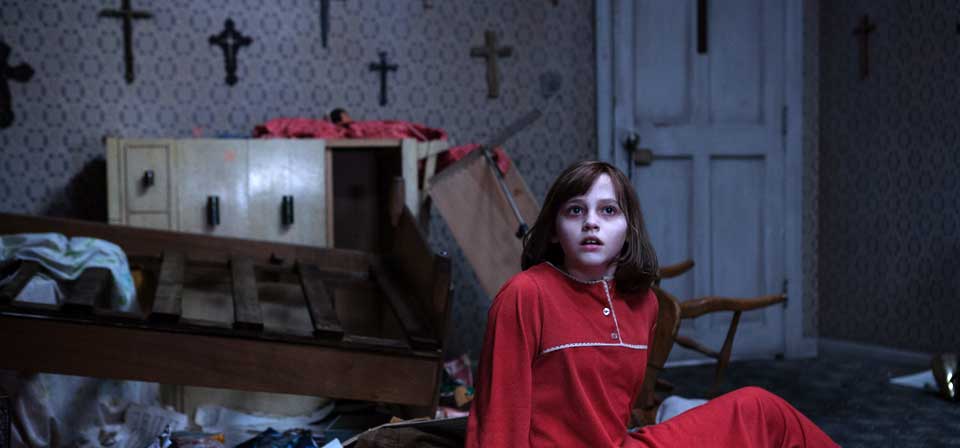
The Conjuring 2 (2016)
Wan goes bigger and splashier here than in the first Conjuring. Metaphorically splashier, I mean; it’s not very bloody, but it’s bloody scary, thanks to Wan’s skills and some shrewd choices by Chad and Carey Hayes, the screenwriting brothers (both Christians) who wrote both films.
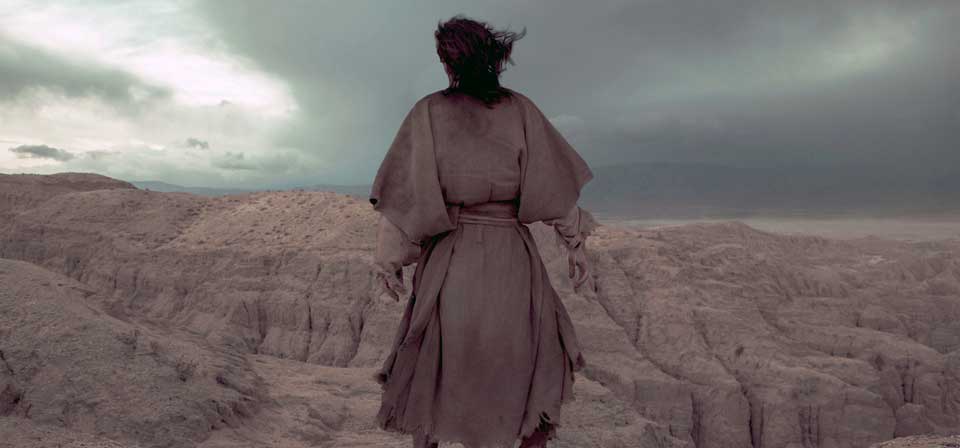
Last Days in the Desert (2016)
García takes his time in the early scenes, allowing us to ease into the rhythms of this eremitic phase in its protagonist’s life. A spiritual journey can’t be rushed; the mind and body must submit to long hardship for the spirit to attain its goal.
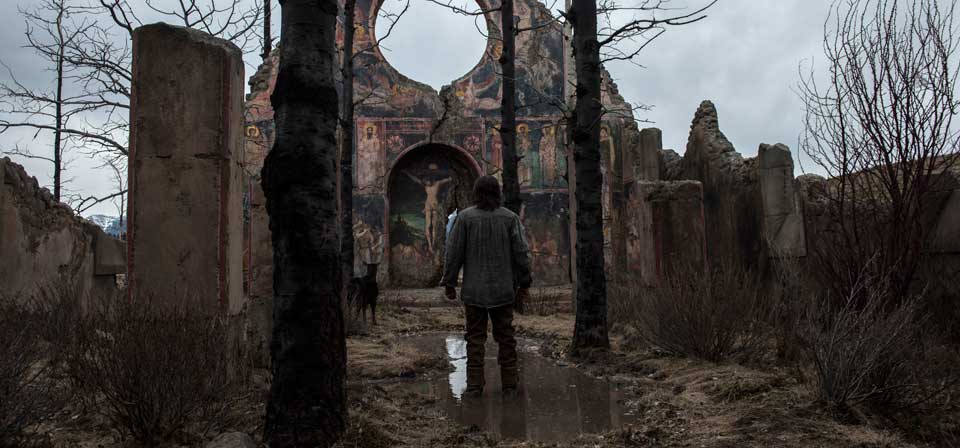
Violence and virtue: How Christian is The Revenant?
Whether one sees The Revenant as a spiritually rich, profound meditation on good and evil or an overwrought attempt to transmogrify atrocity into transcendence, Christians should recognize that when it comes to media depictions of violence, there are two potential dangers, not just one.

Whit Stillman and the discreet charm of the Urban Haute Bourgeoisie
He’s been called “the WASP Woody Allen,” but I prefer my friend Ron Reed’s moniker for Whit Stillman: “the Jane Austen of indie film.”

Is The Jungle Book blasphemous?
A reader writes: “‘The elephants created the jungle’ is not ‘semi-religious’ as you say. It is, in fact, blasphemous. You say such ideas are not ‘often found in a Hollywood family film.’ I disagree. Blasphemy is typical in most Hollywood films.”
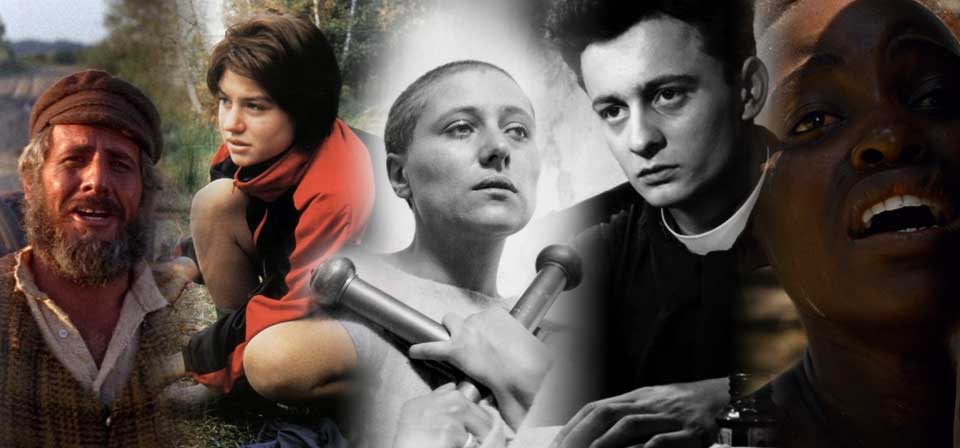
“That’s a crucifixion!”
But the Crucifixion was not only on Calvary, and if Christ is on the waterfront, he can also be found in a medieval prison cell, a cheap, penny-ante building and loan in a crummy little town, a Russian shtetl (a small Jewish town in Eastern Europe), a Belgian trailer park, or the slaves’ quarters of a 19th-century Louisiana plantation.
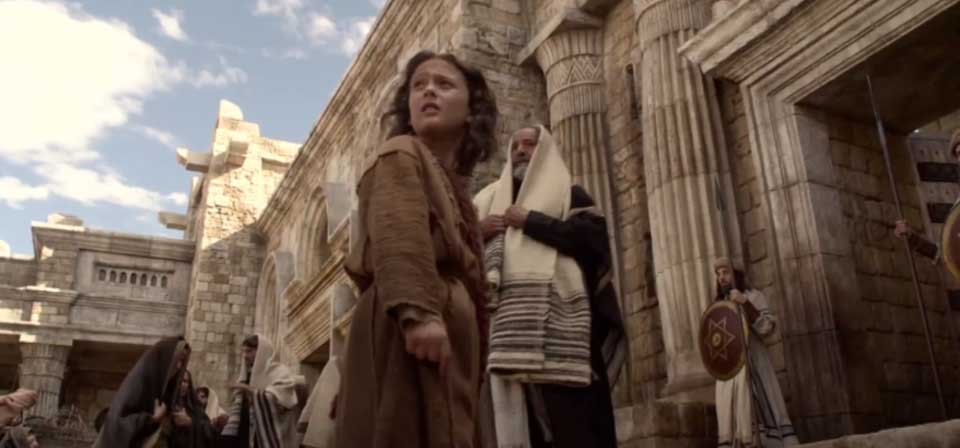
The Young Messiah (2016)
The Young Messiah is an impressive achievement of Christian imagination, a work that does one of the noblest things a Bible movie, or any literary adaptation, can do: It brings persuasive emotional and psychological depth to characters and situations that were either hidden or else so familiar we may have trouble seeing them at all.
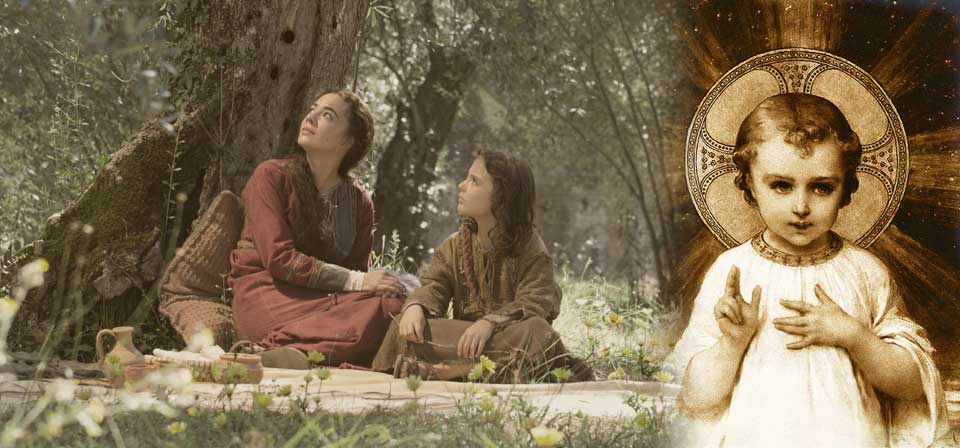
What did Jesus know and when did he know it?
There are many things I love about The Young Messiah, as my review elaborates, but the way it depicts Jesus’ consciousness at the age of seven is one of my favorite things about it.
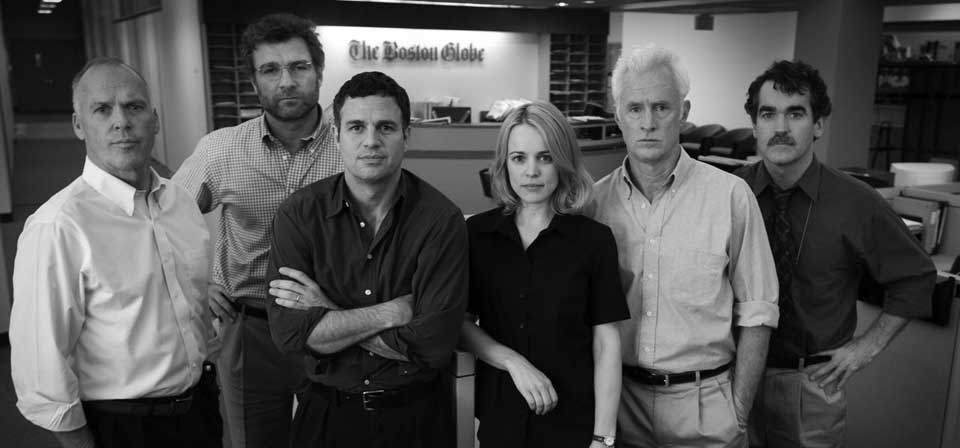
What’s Catholic response to Spotlight been like? Mostly positive, actually.
Why has Catholic response to Spotlight been so positive? One key reason is the film’s shrewd choice of point of view.
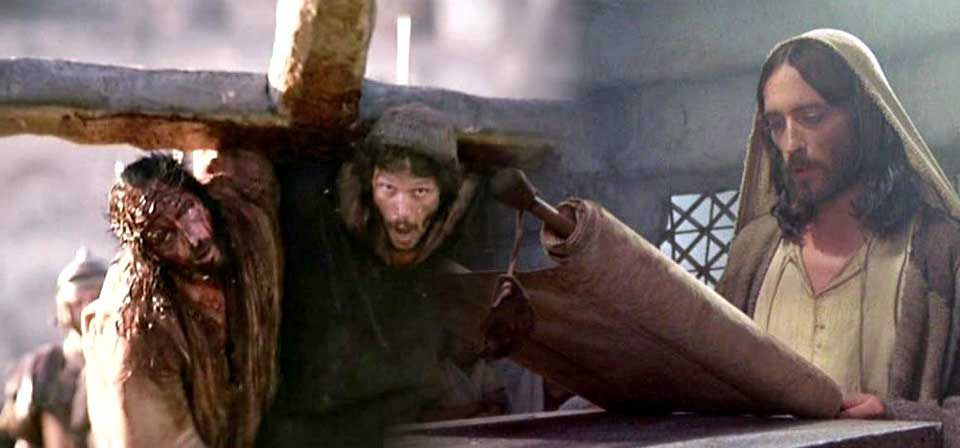
Jesus movies and antisemitism: Jesus of Nazareth and The Passion of the Christ
While concerns around “Jesus of Nazareth” were short-lived, The Passion of the Christ remains controversial, beloved by many and condemned by many others.
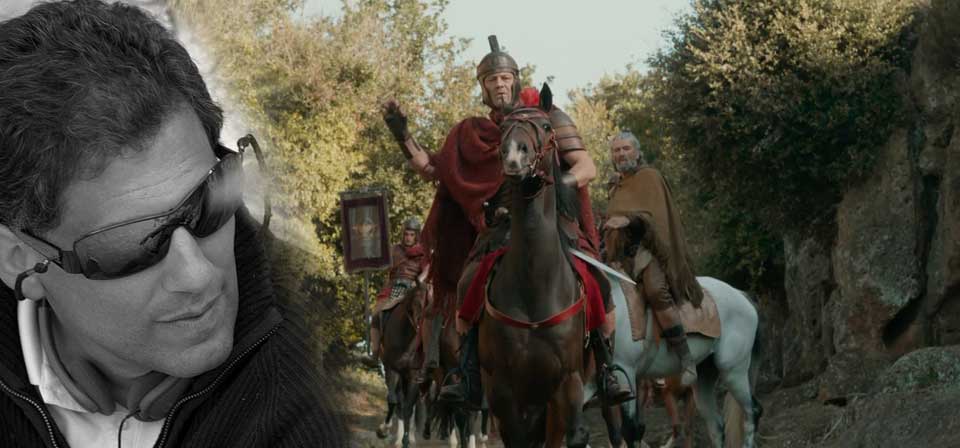
Interview: The Young Messiah filmmaker Cyrus Nowrasteh
The director of my favorite movie this spring about Jesus and a Roman soldier talks about working with Sean Bean, Jesus’ human consciousness, and bringing the biblical world to life.
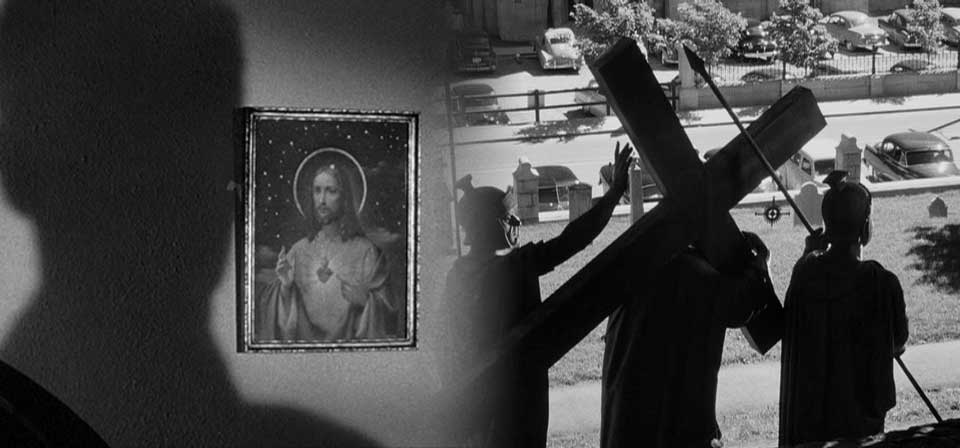
Alfred Hitchcock’s two most Catholic films
Intriguingly, although I Confess was made first and The Wrong Man closely follows its true story, there are a number of notable convergences between the two films.

Risen (2016)
Risen might be the only Jesus film in which we first encounter Jesus on the cross, already dead or nearly so.
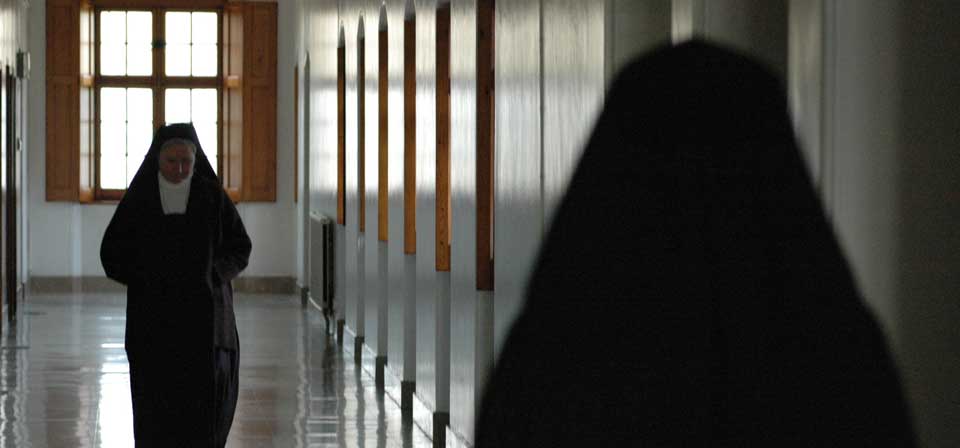
No Greater Love (2009)
Filmmaker Michael Whyte actually lived across the square from the monastery for years without realizing it was still occupied. One day he heard the monastery bell calling the sisters to prayer.
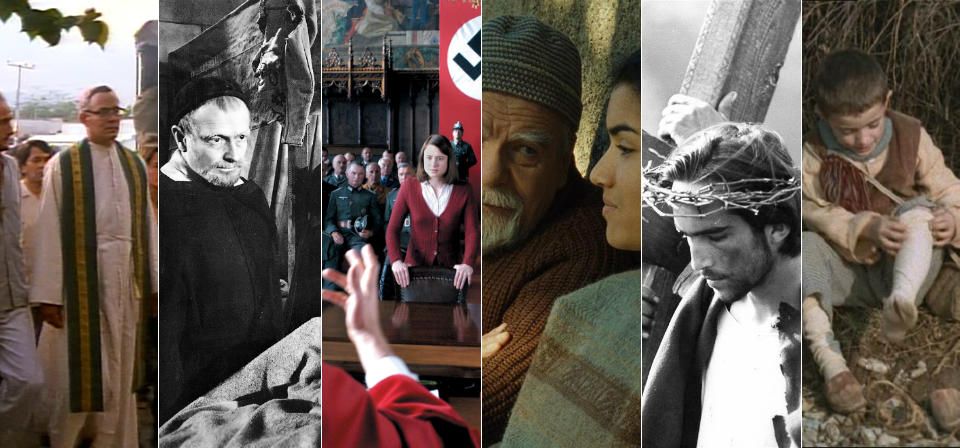
Mercy and movies: Lenten viewing for the Year of Mercy
Six years ago I put together a list of movie recommendations for Lenten viewing, six titles for the six weeks of Lent. This year, for the Year of Mercy, here’s a new list: one that puts particular emphasis on mercy, charity, and active concern for one’s neighbor.
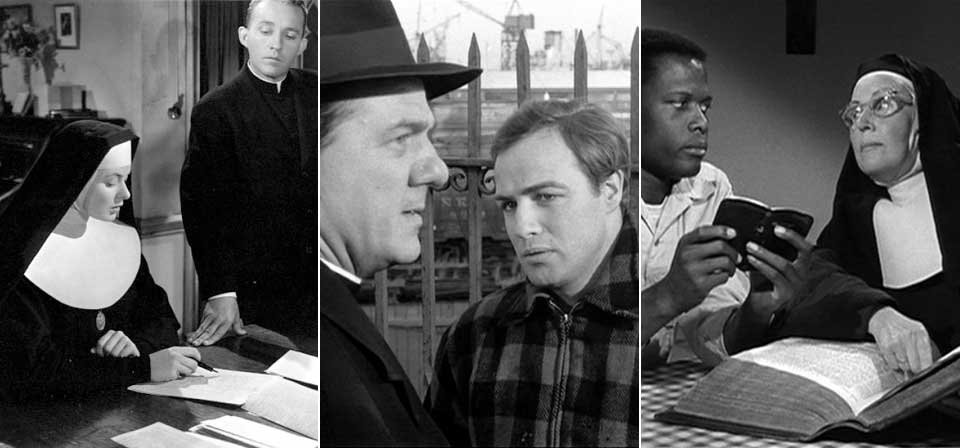
Before Spotlight and Brooklyn: Priests, religious, and the Academy Awards
Two of this year’s eight best picture Academy Award nominees, Spotlight and Brooklyn, present dramatically different depictions of Catholic clergy — though neither gives a clerical character more than a few minutes of screentime.
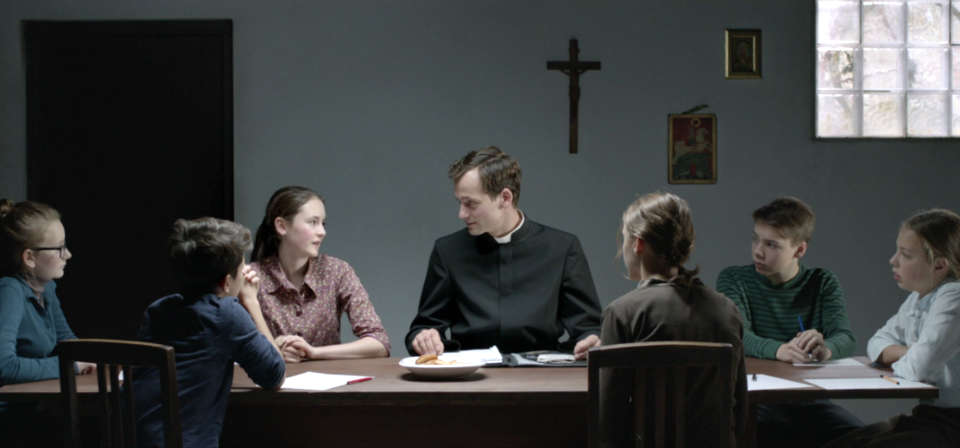
Stations of the Cross (2014)
Stations of the Cross is among the most insightful and devastating cross-examinations of religious fundamentalism that I have ever seen, certainly in a Catholic context. The film is not an attack on faith or religion, but an examination of how faith goes wrong.

Is Star Wars Gnostic?
Is the Star Wars mythos Gnostic? If so, how Gnostic is it? The question is complicated by confusion over exactly what Gnosticism is.

DreamWorks’ animated Torah
During the second week of Advent, as we’re wrapping up Genesis and turning to Exodus, our family viewing often includes DreamWorks’ two animated Pentateuch movies: the Exodus movie The Prince of Egypt and its made-for-TV prequel, Joseph: King of Dreams.

Can Muslims and Christians coexist? Of Gods and Men
Of Gods and Men is the most extraordinary cinematic depiction of the Christian ideal in at least the last quarter century. It also depicts something of the variety of expressions in the Islamic world.

Spotlight (2015)
We cloak the monstrous in euphemisms. We call it “unspeakable” or “unthinkable” — designations that are accurate simply because in using them we make them so. In Catholic circles a dozen years ago, one sometimes heard about “The Crisis”; later it became “The Scandal.” We all knew what these terms referred to, but did we really know?
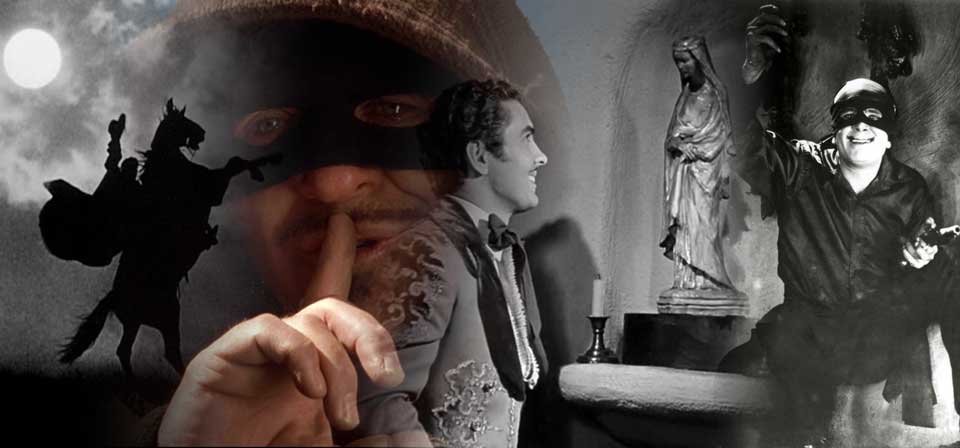
Zorro: Before Daredevil or Nightcrawler, the first superhero ever was Catholic
“He has been many different men,” Antonio Banderas tells Catherine Zeta-Jones in the last scene of the rousing 1998 action movie The Mask of Zorro.
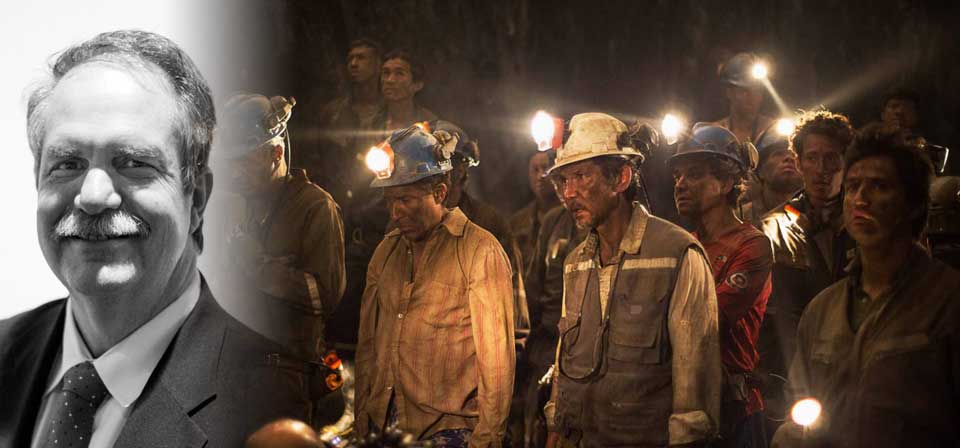
Catholic deacon whose drilling company helped rescue The 33: “God drilled that hole”
Hall doesn’t want credit; as far as he’s concerned, the rescue was God’s work, not his.
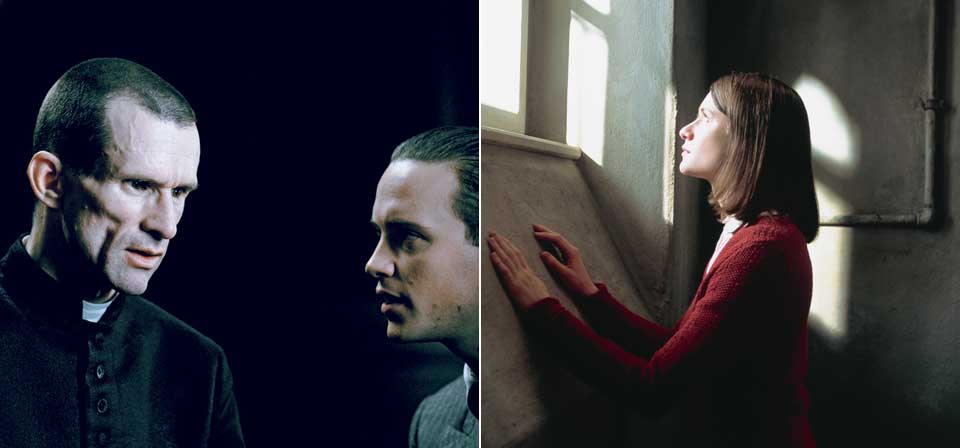
The priest, the student, and the swastika
Both films revolve around a number of tense cat-and-mouse interviews between the believing protagonist and a shrewd Nazi antagonist … The interviews in both films are a clash of worldviews.
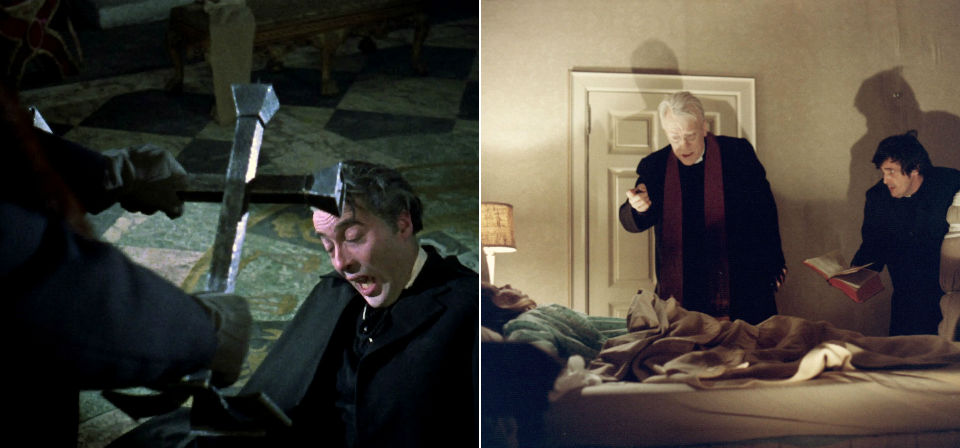
Vampires, demons and the cross: Catholicism and horror
“When it comes to fighting vampires and performing exorcisms, the Roman Catholic Church has the heavy artillery” is how Roger Ebert opened his review of John Carpenter’s Vampires.

Witness (1985)
There is not a wasted or unnecessary shot in Peter Weir’s Witness, or a superfluous line of dialogue. Like the great barn-raising scene late in the second act, the film’s construction is both efficient and unhurried, functional and beautiful.

The theology and philosophy of Avengers: Age of Ultron
We aren’t exactly talking The Matrix here, but it’s been awhile since a Hollywood popcorn action movie elicited such a range of theological and philosophical analysis.
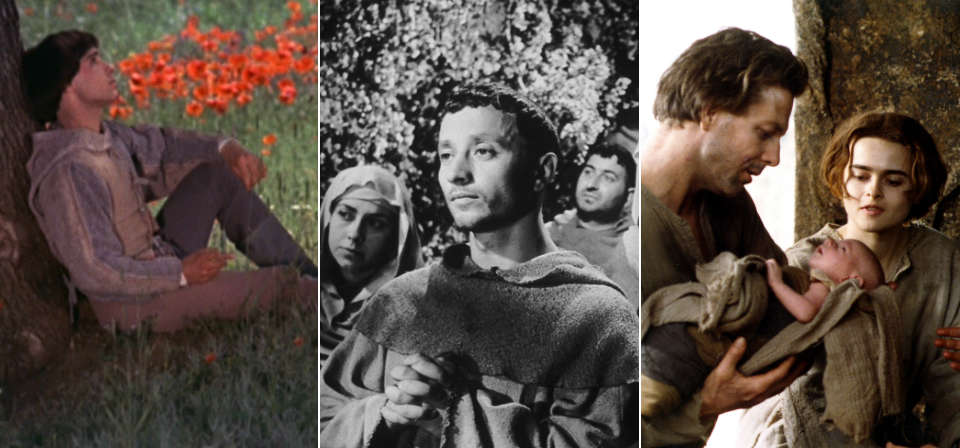
“Franciscan” movies for Pope Francis’ US visit
Much like Pope Francis himself at times — or even like Jesus himself — Saint Francis of Assisi has often been made into an avatar or mascot of people’s likes (or dislikes) rather than being recognized as the surprising, vibrant figure he really was.

Timbuktu (2015)
A haunting scene in Timbuktu depicts two teams of young athletes running back and forth on a field engaged in offensive and defensive patterns familiar the world over: kicking, dribbling, passing, blocking. All that is missing is a ball and goal markers.
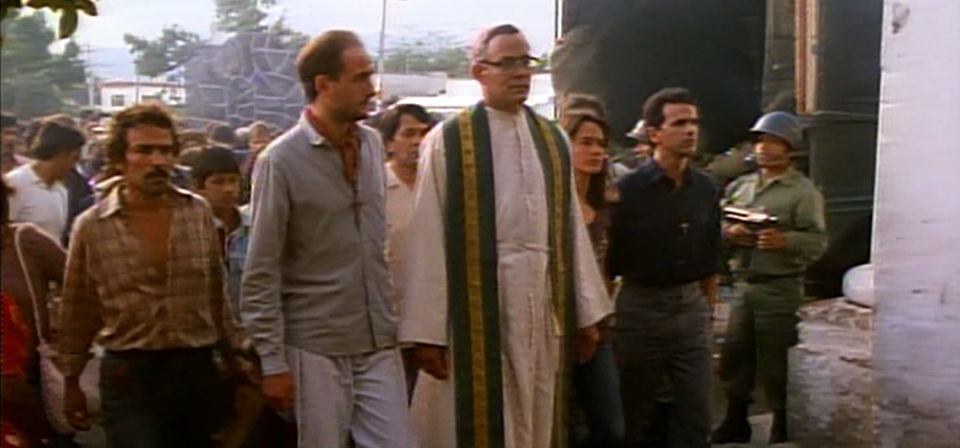
Becoming Saint Óscar Romero
The recent beatification of Óscar Romero, Archbishop of San Salvador from 1977 until his assassination in 1980, has drawn new attention to the gap between public perception and reality regarding this popular but controverted figure in El Salvador’s turbulent history. For those interested in beginning to understand who Blessed Archbishop Romero really was, the Christopher Award–winning 1989 film Romero, starring Raúl Juliá, isn’t a bad place to start.
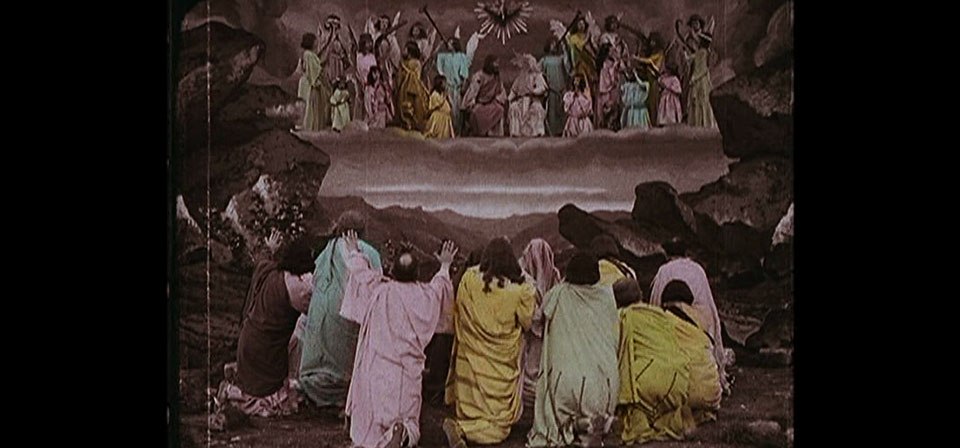
The Ascension of the Lord: My favorite screen depiction
My favorite cinematic depiction of the Ascension of Jesus is one of the very first, from a very early silent film released 110 years ago.

Interstellar and Gravity: Science fiction, outer space and the question of God
Last year’s Interstellar and the previous year’s Gravity follow different paths in a long tradition of asking ultimate questions against the biggest canvas available to our senses, the universe itself.
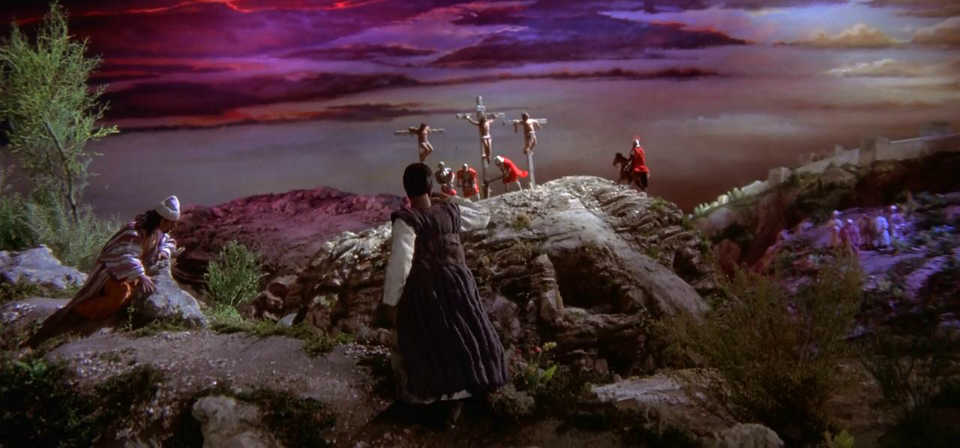
Must-see Easter season viewing: The Jesus movie for absolutely everyone
The Miracle Maker is a singular achievement: a Jesus movie that is simple enough for children, sophisticated enough for scripture scholars and theologians, and artful enough for discerning cinephiles.
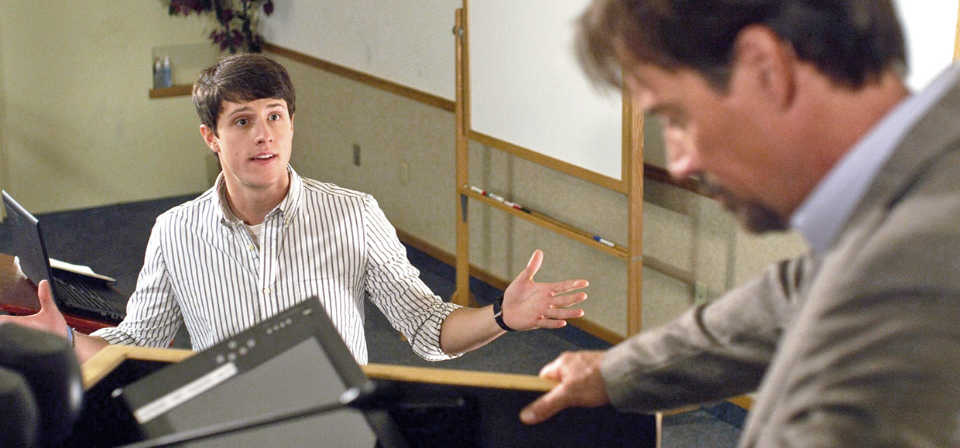
The queasy appeal of “God’s Not Dead”
Mirroring its populist tale pitting a devout young undergraduate against Kevin Sorbo’s hostile philosophy professor, the faith-based hit indie God’s Not Dead sharply divided enthusiastic faith audiences and scoffing critics.

Narnian spirit: C. S. Lewis’ religious themes in the books, the films — and any films to come
With a new Blu-ray edition of The Voyage of the Dawn Treader available March 3, here’s a look back at the series so far … and a look ahead.
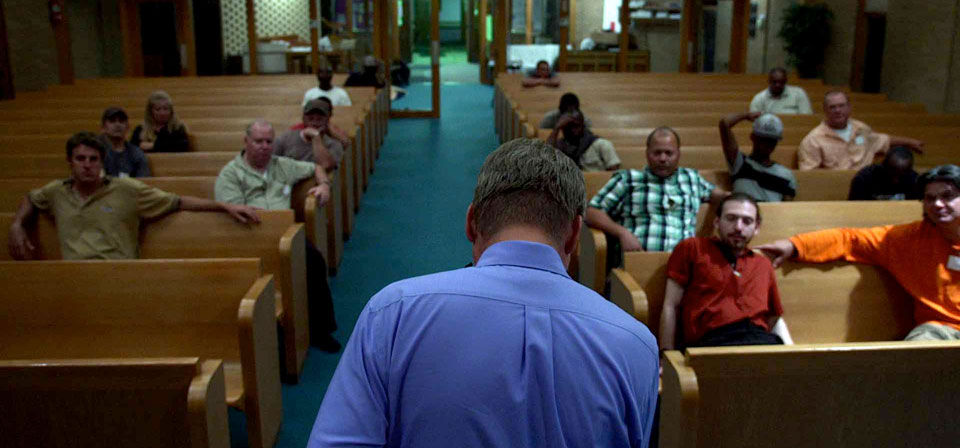
The Overnighters (2014)
Jesse Moss’s The Overnighters is an existentially probing documentary with more layers than a twisty Hollywood thriller, at turns inspiring, challenging, sobering and finally devastating.
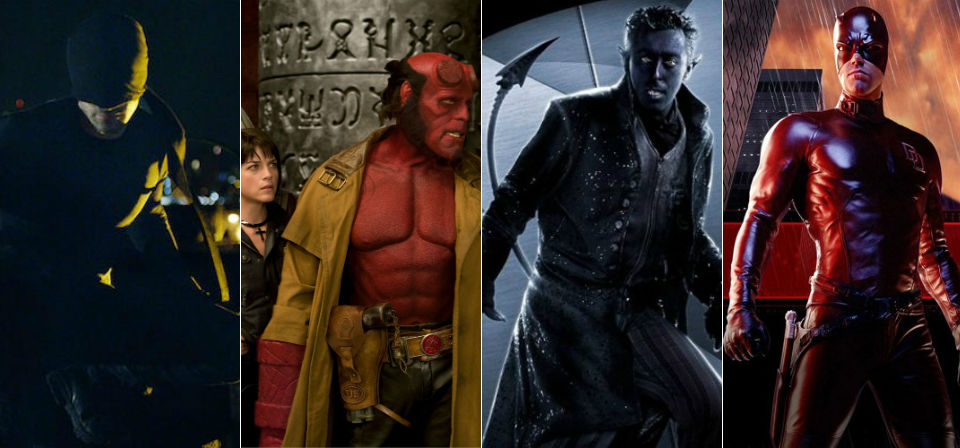
Guardian Devils? Daredevil and Catholic guilt, superhero style
“Bless me, Father, for I have sinned,” says Matt Murdock, the blind lawyer turned masked hero in the first line of the new trailer for Netflix’s upcoming Marvel Comics superhero series “Daredevil.”
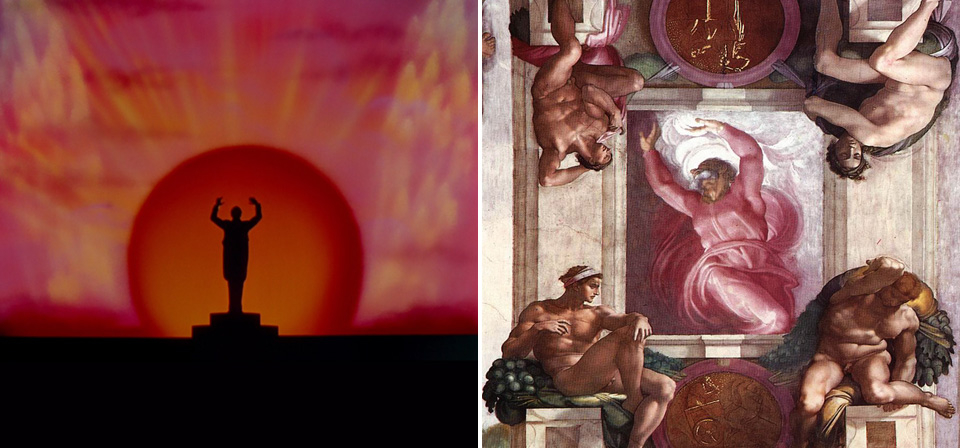
Fantasia: The Sistine Chapel of Disney animation
Among a few Disney films deserving of the title “masterpiece,” Fantasia remains a unique achievement.

Interview: Selma Actor David Oyelowo on Playing Martin Luther King Jr.
If an actor in a faith-based indie like Son of God told you he felt God had told him he was meant to play the role in question, you might not bat an eye. It’s more striking to hear such a thing from the star of a $20-million Hollywood film like the civil-rights drama Selma.
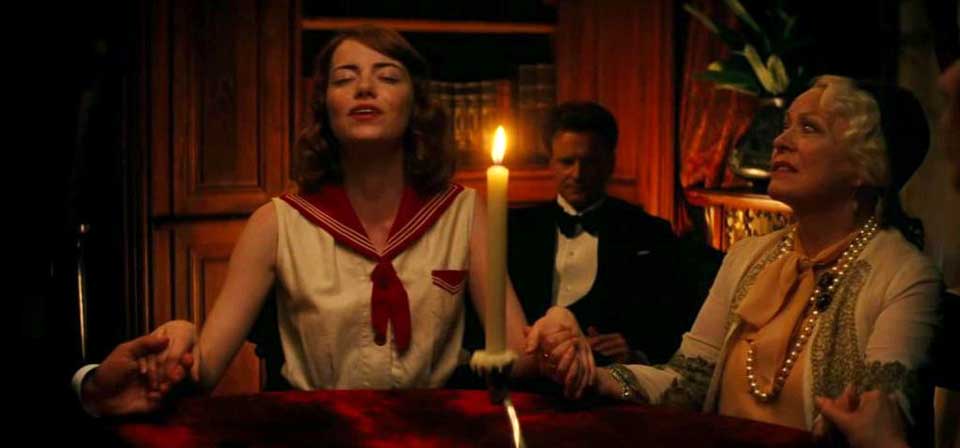
Raking through the ashes of unbelief: Woody Allen’s lost spark
Woody Allen keeps telling us God is dead, but he also keeps compulsively burying him.

The Church on screen in 2014: Not a bad year for Catholics
By mid-year I would have predicted that Mendoza would surely prove to be the best big-screen priest of 2014 — but Brendan Gleeson’s Rev. Lavelle in John Michael McDonagh’s Calvary proved me wrong.

How The Hobbit: The Battle of the Five Armies betrays Tolkien’s Catholic themes — and his religious fans
Changes like these are sadly typical of the Hobbit prequel trilogy, which is far cruder and less sensitive to the charm and beauty of its source material than the Lord of the Rings films were. As bad as Christopher Tolkien’s fears in 2012 about The Hobbit films might have been, the reality is worse.
![Exodus: Gods and Kings [video]](/uploads/articles/exodus-gods-and-kings.jpg)
Exodus: Gods and Kings [video] (2014)
The director of Gladiator, Kingdom of Heaven and Robin Hood takes on the story of Moses.
Seeking accessible saint movies … for less arty viewers
A reader writes: “I am looking for easy-to-approach religious movies, especially ones on saints. Intellectually challenging, subtitled, confusingly artistic movies seem to dominate. While I really love those types of movies, I am trying to find films for my Bible study group … We tried the first half of Diary of a Country Priest, and I worried one might try to smother herself with my sofa pillow to end her misery. Do you have any thoughts?”
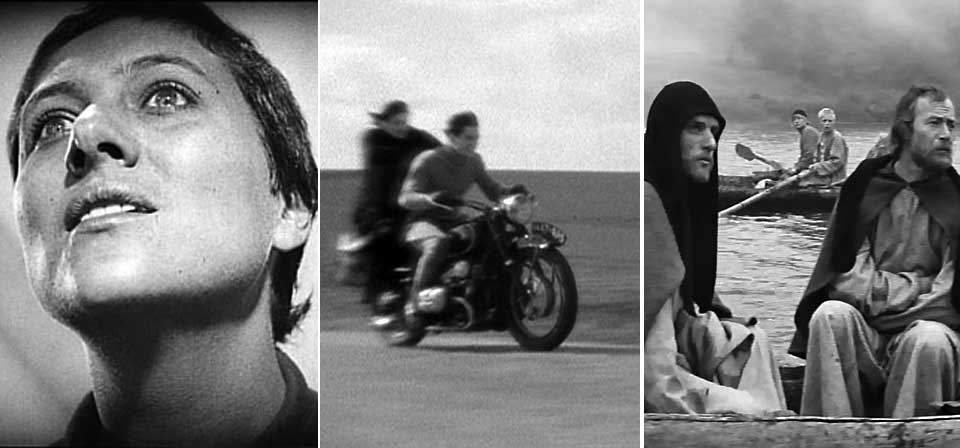
Religious filmmakers explore — and cross-examine — faith
Strikingly, where the religious films of nonbelievers often feature idealized religious characters more or less certain in their faith, films by believers often put their religious characters’ faith to a more existential test.
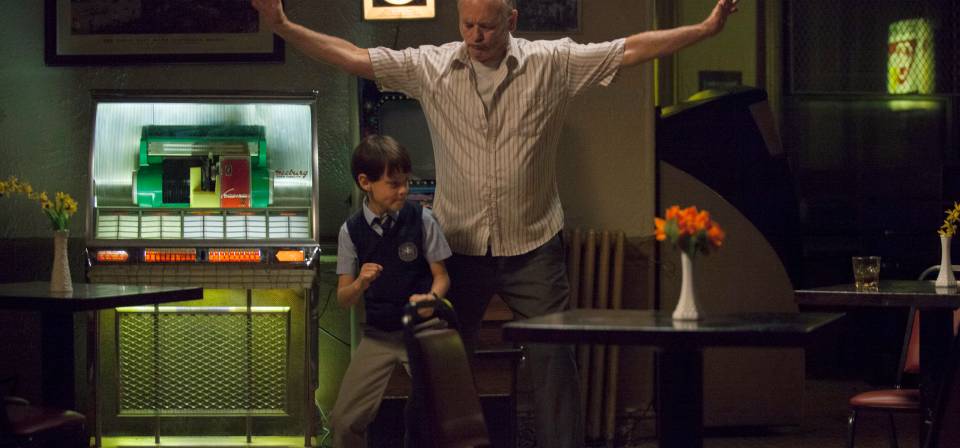
St. Vincent (2014)
When a Hollywood comedy pairs a dissolute, misanthropic curmudgeon with a cute young kid, you expect a story of redemption — particularly when the movie is called St. Vincent, and the curmudgeon’s name is Vincent. When the curmudgeon played by Bill Murray, it’s a done deal.
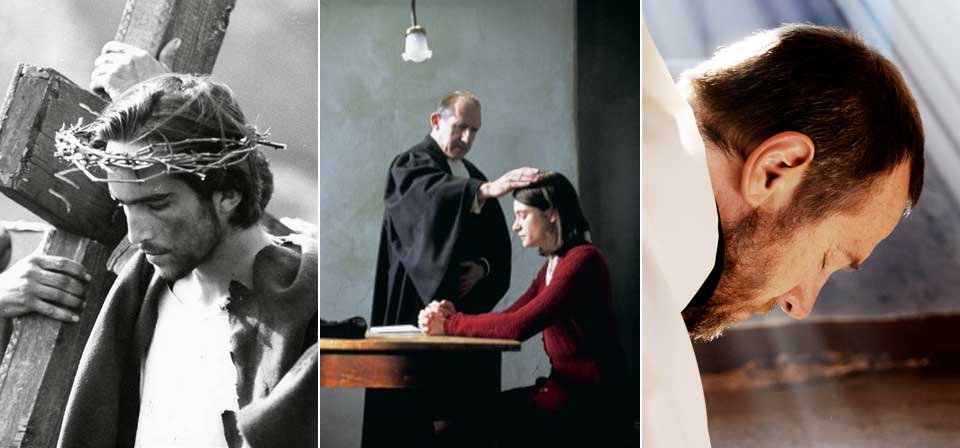
Do atheists and agnostics make the best religious films?
One of the noblest functions of art is the invitation to empathy: an invitation extended not only to the audience, but also to the artist.
From the Crusades to Columbus: Religion in Ridley Scott’s Historical Epics
A self-described atheist, Sir Ridley Scott has developed a generally bleak vision of religion, particularly the Judeo-Christian tradition, throughout his work, above all in historical sagas like Robin Hood (2010) and 1492: Conquest of Paradise (1992).
The Song (2014)
A faith-based romantic drama with a country music milieu, The Song is couched as a contemporary reimagining of the life of King Solomon, son of David.
Jewish/Catholic: Religious Identity, Fluidity and the Holocaust
“One is Christian or Jewish, not both.” So says the chief rabbi of Paris in The Jewish Cardinal (2013), Israeli-born filmmaker Ilan Duran Cohen’s biopic about Cardinal Jean-Marie Lustiger (Laurent Lucas) — a Jewish convert to Catholicism who insisted on religious dual citizenship, embracing Catholicism without rejecting Judaism.
Superhero movies and Catholic faith
Less than two months ago, the British Catholic writer Stratford Caldecott died after a lengthy battle with cancer. In the weeks prior to his death, his name became improbably entangled in a viral Twitter storm that made international news in connection with the superhero movie Captain America: The Winter Soldier, now available on home video.
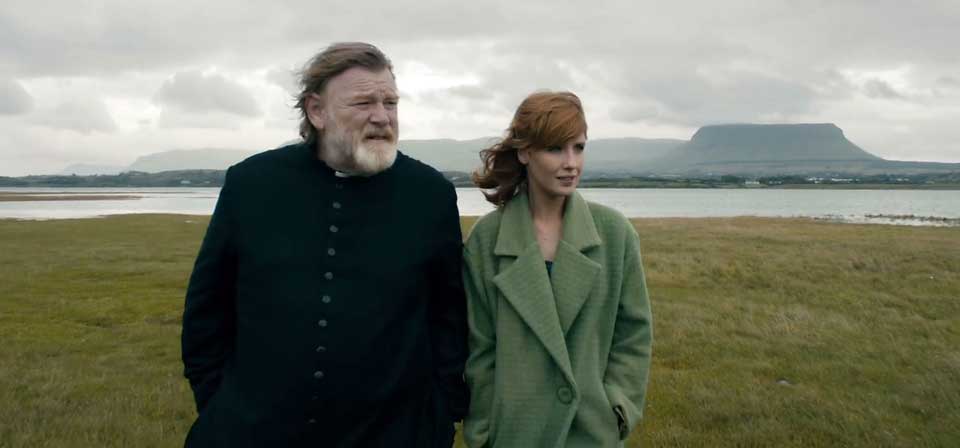
Calvary (2014)
Sometimes misleadingly described as a dark comedy, Calvary is certainly dark, and there are sporadic bits of absurdist humor. In keeping with its title, though, it really is a passion play, with Father James as an innocent victim to be sacrificed for the sins of the Church.
A haunting film about the “martyr of Auschwitz”
Nearly two decades before his Oscar-winning role as a Jew-hunting Nazi in Quentin Tarantino’s lurid WWII fantasy Inglourious Basterds, Christoph Waltz played an Auschwitz survivor whose escape is linked to the death of one of Auschwitz’s most celebrated victims, St. Maximilian Kolbe.
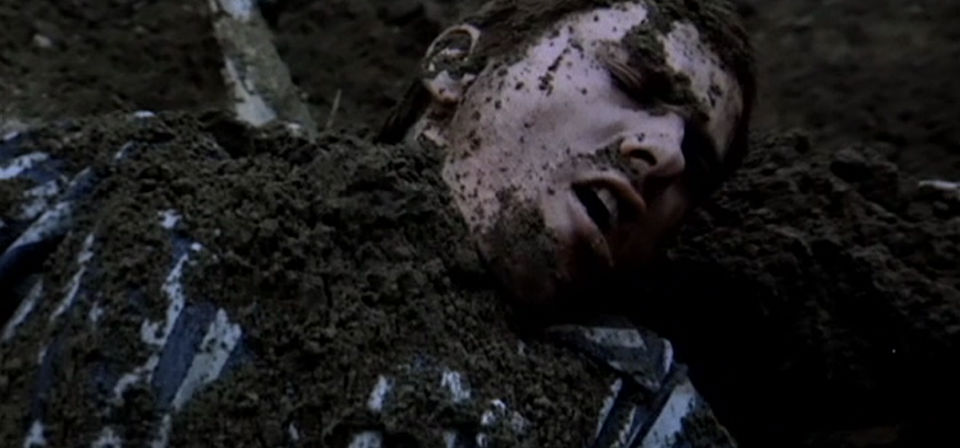
Life for Life: Maximilian Kolbe, martyr of Auschwitz (1991)
Two great mysteries hover over the cardinal moment in St. Maximilian Kolbe’s life, a quiet exchange of words with the deputy camp commander at Auschwitz-Birkenau heard by few and lasting probably less than a minute.
When the Game Stands Tall
Sports movies love underdogs scrapping their way to the top. When the Game Stands Tall is about what happens when a ridiculously successful team finally stumbles.
Magic in the Moonlight [video] (2014)
Watching Woody Allen’s latest, starring Colin Firth and Emma Stone, is like watching your uncle doing a card trick you’ve seen him do a hundred times.
Deliver Us From Evil [video] (2014)
Édgar Ramírez might be my favorite horror-movie priest.
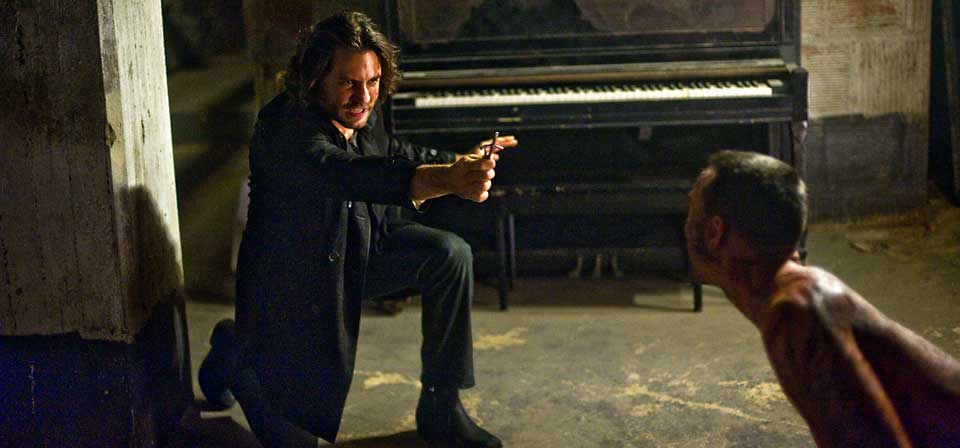
Deliver Us From Evil (2014)
Why would a mother at the zoo throw her toddler over a railing into the moat of a lion enclosure? That’s the kind of horrible question that can look very different if you are a police officer or a priest.
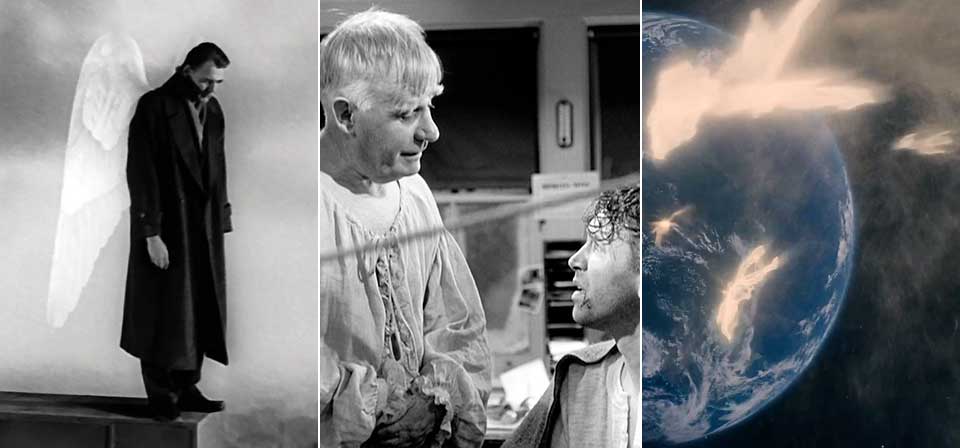
The trouble with angels: Heavenly messengers according to Hollywood
The popular eschatological confusion that we “become angels” when we die may be a headache for catechists, but only a curmudgeon would object to a Hollywood fable taking this sort of creative license. Still, there’s no reason for all movie angels to be as angelically incorrect as Clarence.
![Ida [video]](/uploads/articles/ida_FAia2MA.jpg)
Ida [video] (2013)
A Polish nun embarks on a trip of discovery in this gorgeous black-and-white period piece.
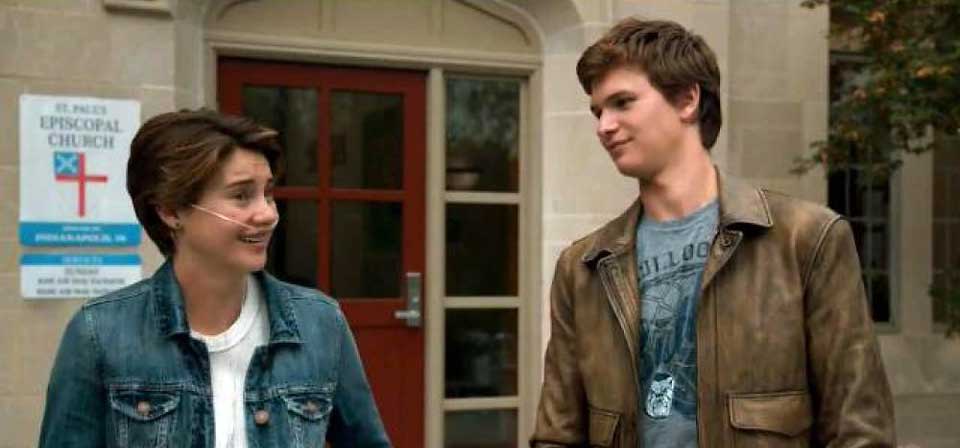
The Fault in Our Stars (2014)
The Fault in Our Stars — in cinematic as well as literary form — cares quite a bit about silly questions, such as the meaning of life and death and love and suffering in a universe sliding toward oblivion, and whether there is Something beyond giving some larger context to our existence, choices and experiences.
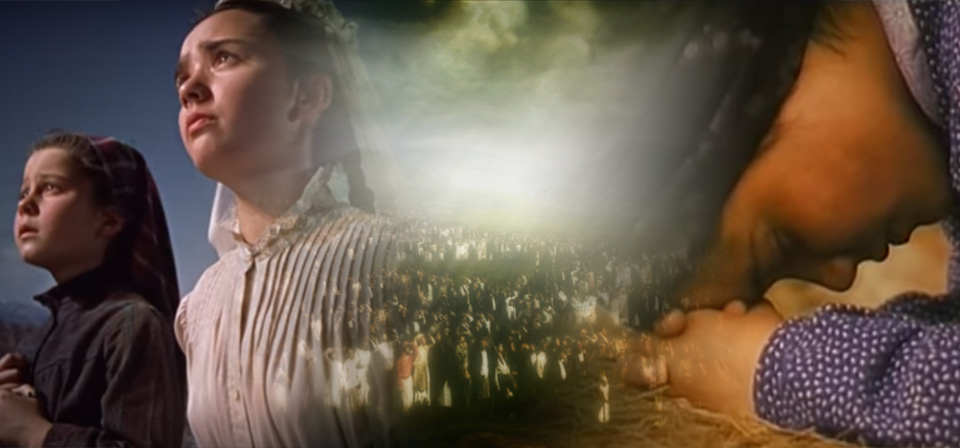
Our Lady of Fatima at the Movies
I have never seen a bad movie about Fátima. Three stand out to me: The Miracle of Our Lady of Fatima (1952) is the best known; Apparitions at Fátima (1992) is the most authentic; and The 13th Day (2009) is the most artful — and my favorite of the three.
God’s Not Dead [video] (2014)
I took two minutes to talk about this one, and still got in less than half of what bothered me about it.
Father Barron on ‘Noah’! Catholic Culture! More!
Father Robert Barron is one of the Church’s best commentators on popular culture today, so I’ve been waiting for his take on Darren Aronofsky’s Noah. He doesn’t disappoint.
Everything SDG on Noah: Vatican Radio, NBC News, EWTN News Nightly & more!
This has been a crazy week! I was interviewed about Noah for Vatican Radio, the NBC News website, EWTN News Nightly, Kresta in the Afternoon and The World Over.

Noah: A theological reflection
“Let me tell you a story,” Russell Crowe’s Noah says to his family in a moment of great crisis and emotion. “The first story my father told me, and the first story I told each of you.” What he recounts are the events of Genesis 1, the creation of the world; and Aronofsky relates them both verbally and visually in a way that bespeaks a confidence in the power of this story to speak to us today: a story still worth telling and retelling.
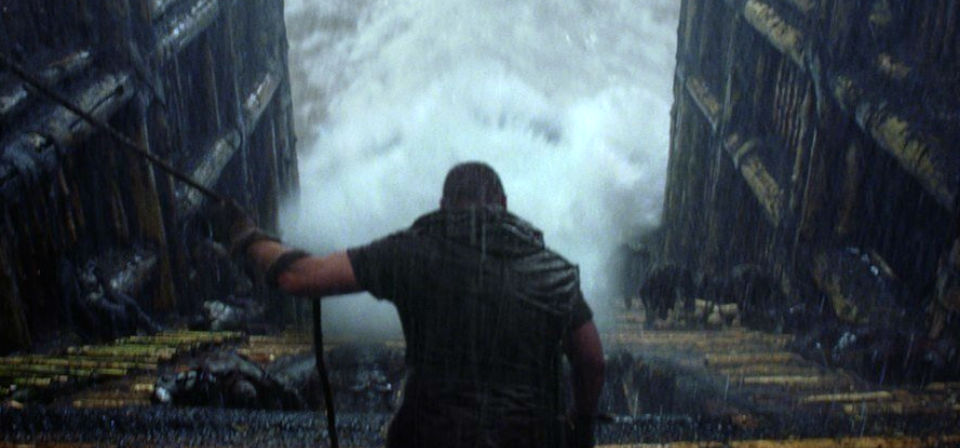
The Noah controversies: questions and answers
The punning headlines write themselves: “Noah Awash in Flood of Controversy.” “Deluge of Criticism Inundates Filmmakers.” In the weeks preceding the release of Noah, controversy has swirled around the film — and will no doubt continue to do so in the weeks ahead.
![Son of God [video]](/uploads/articles/sonofgod2014.jpg)
Son of God [video] (2014)
After ten years, Jesus is back on the big screen. Was it worth the wait?
Noah [video] (2014)
The first major big-studio Bible film in decades is a dark, divisive, personal film from the director of Pi, The Fountain and Black Swan.

Noah (2014)
Darren Aronofsky’s Noah pays its source material a rare compliment: It takes Genesis seriously as a landmark of world literature and ancient moral reflection, and a worthy source of artistic inspiration in our day.
Interview: Noah Writer-Director Darren Aronofsky and Co-writer Ari Handel
In a way, the figure of Noah stands over filmmaker Darren Aronofsky’s whole career.
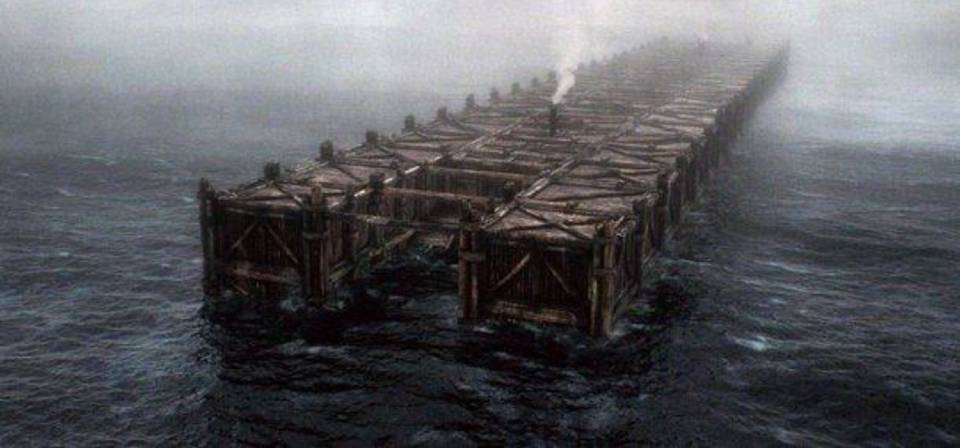
Everybody chill out about the Noah movie
So what’s the deal with the Noah movie? Does it replace the message of the Bible story with a message created by Hollywood? Is Russell Crowe’s Noah an environmentalist wacko? Is God a monster out to eradicate humanity entirely? Get a grip, people.

So, how Christian is Disney’s Frozen?
I’ve been surprised at the popularity of efforts to interpret major story elements in Frozen as a Christian parable … rivaling or even surpassing C. S. Lewis’s The Lion, the Witch and the Wardrobe.
Black Nativity [video] (2013)
Of the 2013 Christmas season’s trio of religiously inflected Christmas movies, this one just might be the most deserving of your time.
The Virgin Mary at the Movies
Mary of Nazareth, now touring North America in isolated screenings hosted by Ignatius Press, is the latest in a number of Gospel films over the last couple of decades focusing in a special way on the role of the Blessed Virgin in the Gospel story.
![The Conjuring [video]](/uploads/articles/conjuring.jpg)
The Conjuring [video]
Thirty years after The Exorcist, when it comes to fighting the powers of hell, the Catholic Church still has the heavy artillery, as Roger Ebert once wrote.
To the Wonder [video]
To the Wonder in 60 seconds: my “Reel Faith” review.
For Greater Glory (2012)
For Greater Glory tells a story of religious freedom and oppression that is far too little known, and that would be important and worthwhile at any time, but is strikingly apropos in our cultural moment.
We Have a Pope [Habemus Papam] (2012)
In a way it’s like the antithesis of a Dan Brown novel. Brown’s stories peer with feverish, lurid imagination at the inner workings of the Catholic hierarchy, discovering all manner of ridiculous subterfuge, ruthlessness and skulduggery. Moretti’s film hardly peers at all.
October Baby (2011)
October Baby is at its most thoughtful contemplating Hannah’s unresolved feelings about her biological mother and the tragic way that her life began.
The Mighty Macs (2011)
The movie is full of Catholic iconography that Catholic viewers and fans of Golden Age Hollywood Catholicism will appreciate. Statues of Jesus, Mary and the saints are everywhere. I compared the movie’s Catholic milieu to a Bing Crosby film, but a Crosby film would actually have edgier personalities and more conflict.
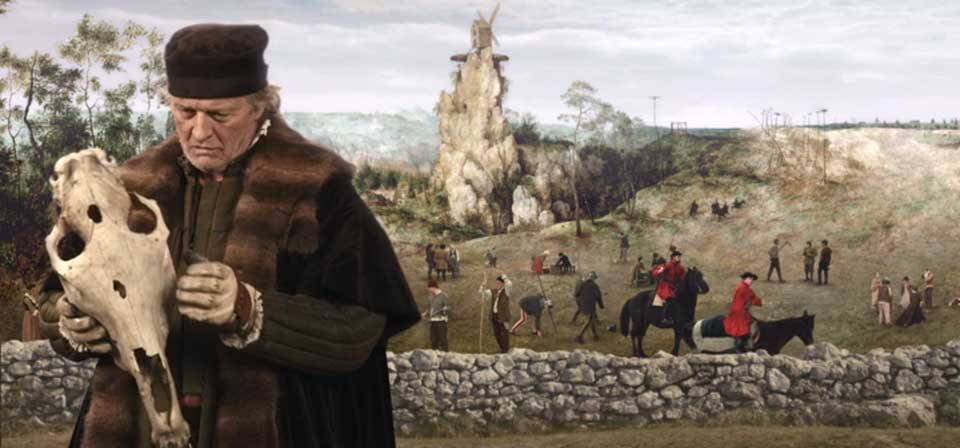
The Mill & the Cross (2011)
There is a moment in The Mill & the Cross in which the power of art, in particular sacred art, to capture the eternal in the hugger-mugger of ordinary life — even in the most horrific and seemingly meaningless events — is revealed with stunning clarity. André Bazin, the great Catholic film critic and theorist, wrote about the mission of art to rescue the world from transience and corruption, to capture moments and events in time and space before they slip into the irretrievable past, and so bear witness to the hand of God in creation. I don’t know if I’ve ever seen this idea more resoundingly affirmed than in The Mill & the Cross.
“Catholicism” Comes to PBS
Inspired by Kenneth Clark’s groundbreaking 1969 BBC series “Civilisation,” which ushered in a generation of globe-hopping documentaries, Fr. Barron and his crew employ a worldwide backdrop that includes the Holy Land, Europe, Africa, India, the Philippines — at least 50 locations in 15 countries. Unabashedly a work of advocacy, even evangelization, Catholicism offers a confident, upbeat overview of the scope of 2000 years of Catholic history, belief, thought and practice.
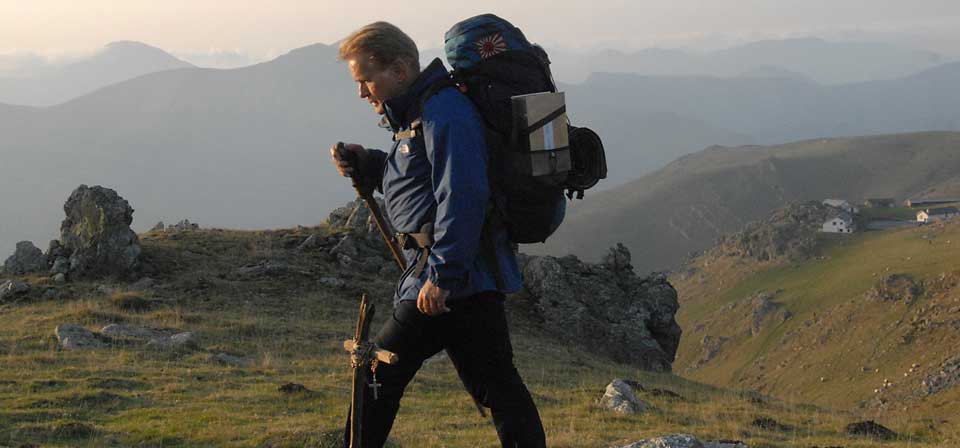
The Way (2011)
Is there grace for such pilgrims as these? Perhaps, but it may not take the form they seem to be seeking. At the end of the road, some viewers might feel let down at what has not changed for the main characters, but perhaps this is to miss the change that matters most. Emilio has said that the film is “pro-people, pro-life.” So it is, in more ways than one.
Courageous (2011)
Coming on the heels of Fireproof, Courageous is the fourth film from Sherwood Pictures, and it’s another step forward for the church-based film company … While the film’s church-based roots and the tendency toward didactic, schematic storytelling are still in evidence, Courageous is their most ambitious and watchable film to date.
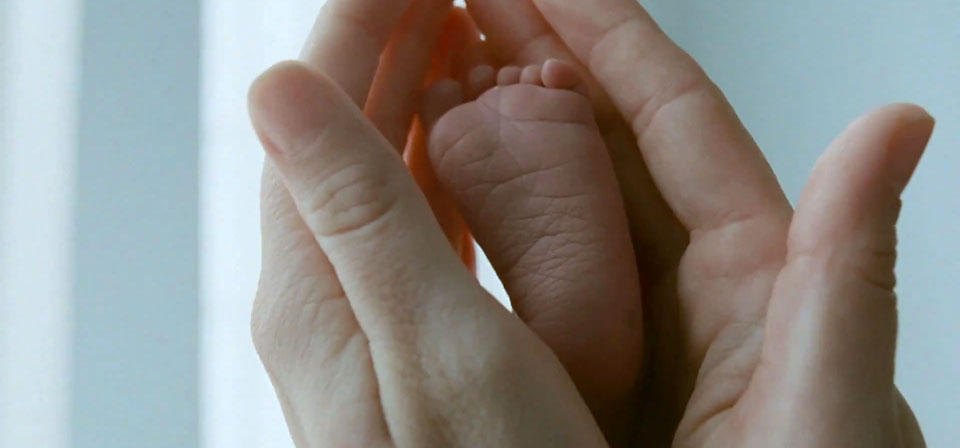
The Tree of Life: God and Man Cross-examined
Here is a film that not only asks, with unusual insistence, why God allows suffering, but contemplates God’s own answer to that question in the Book of Job, amplified by the sweeping vistas of the natural world available to modern science, the Hubble telescope and Hollywood special effects: God did all this; who are we to think we can judge or question him? It also asks why a stern, bullying father hurts his children. Is God like that father?
Priest (2011)
Director Scott Charles Stewart seems to be making a career out of erasing Jesus from history, and celebrating supernatural heroes who rebel against God for the greater good … in apocalyptic action/horror movies starring Paul Bettany.
There Be Dragons (2011)
As played by English actor Charlie Cox (Stardust), Josemaría emerges as a likable, dedicated, virtuous young man much loved by his circle of friends, the first generation of Opus Dei. There are a few evocative scenes, such as the impression that a barefoot friar’s tracks in the snow make on the young Josemaría. Yet despite a line or two about Opus Dei spreading to other countries, there’s little sense of Escrivá himself as a figure of any particular note.
Soul Surfer (2011)
Soul Surfer does nearly everything you expect it to, but it does it more likably and satisfyingly than you might think it would. Based on 21-year-old pro surfer Bethany Hamilton’s memoir Soul Surfer: A True Story of Faith, Family and Fighting to Get Back on the Board, it’s an inspirational sports biopic about a Hawaiian surfer whose devout faith helps her bounce back after losing an arm in a shark attack (at 13 in real life).
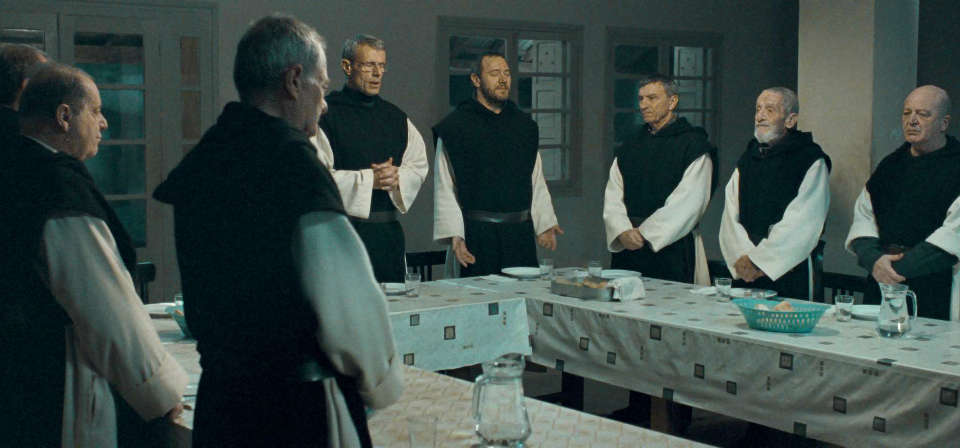
How Catholic is Of Gods and Men?
Has any dramatic feature film ever more powerfully communicated the beauty and attractiveness of lived Christian faith, and of the Christian faith itself, than Xavier Beauvois’s Of Gods and Men?
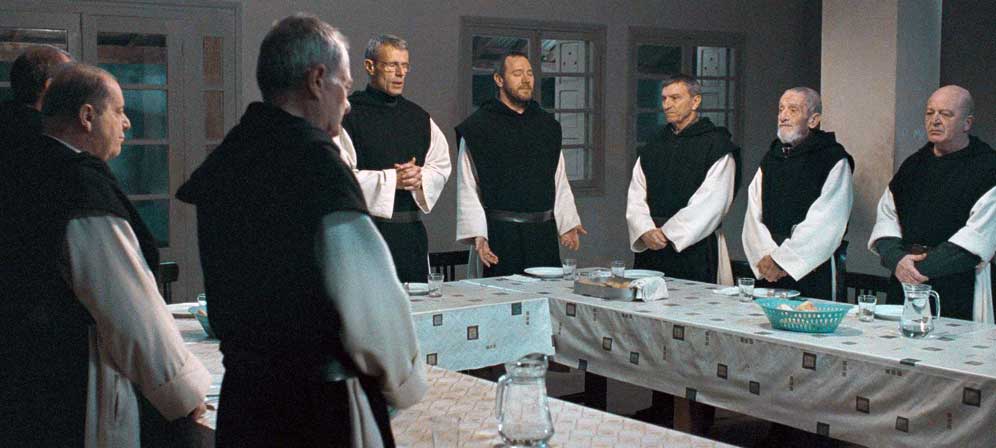
Of Gods and Men (2010)
Xavier Beauvois’ sublime Of Gods and Men is that almost unheard-of film that you do not judge—it judges you. To one degree or another it defies every attempt to put it in a box, to reduce its challenge to a political or pious ideological stance to be affirmed or critiqued.
The Adjustment Bureau (2011)
Part Hollywood romance, part paranoia thriller,The Adjustment Bureau is an enjoyable romp in large part on the strength of Damon and Blunt’s likability and chemistry — qualities notably absent in recent star vehicles like The Tourist and Knight and Day.
The Rite (2011)
In some ways, Mikael Håfström’s new film reminds me less of recent exorcism films than of the sort of movie that Terence Fisher made for Hammer Films in the late 1950s and 1960s, movies like The Devil Rides Out and the 1958 Dracula. If Father Lucas, an unconventional veteran exorcist working in Rome, had been played by Hammer icon Christopher Lee instead of Anthony Hopkins, he would have been right at home.
Treading the Dawn: Bringing Dawn Treader From Book to Film
Douglas Gresham, Walden Media’s Micheal Flaherty and C. S. Lewis scholar Devin Brown discuss the book and the film.
The Chronicles of Narnia: The Voyage of the Dawn Treader (2010)
Is it possible that the makers of The Voyage of the Dawn Treader have made the best film in the series to date while charting a course even further from the book? I think it is. Perhaps it’s even because the film diverges from the book to the extent that it does that I’m able to regard the film more for what it is than for what it isn’t.
Hereafter (2010)
Hereafter is demeaning both to believers and to unbelievers, and for the same reason: It stacks the deck too heavily in one direction. “The evidence is irrefutable,” a researcher tells TV journalist Marie Lelay (Cécile de France), dropping a sheaf of documentation on life-after-death experiences in her lap. “The X-Files” told us that the truth was out there, but Mulder and Scully never had it this easy.
Eat Pray Love (2010)
Americans have an abiding affinity for consumerist self-indulgence and for pop spirituality, and a marriage of the two is a winning combination. “God never slams a door in your face,” Gilbert writes, “without opening a box of Girl Scout cookies.” Yep, there’ll be no shortage of people eating that one up.
The Apostle (1997)
A sensitive cultural ethnography of the exotic, much-maligned world of Southern Pentecostalism; a complex study of a character whose many contradictions startlingly combine sacred and profane dimensions; a spiritual exploration of the inscrutable workings of guilt and grace: The Apostle—long labored over by writer, director, producer, and star Robert Duvall—is all of these.
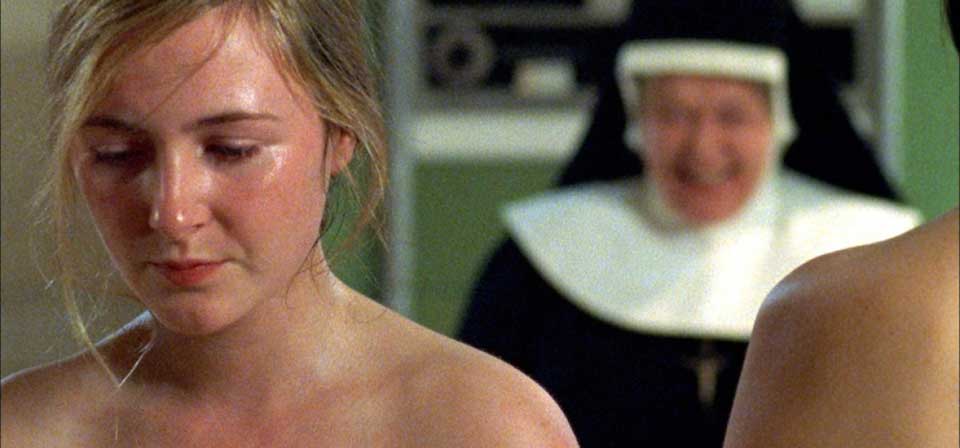
The Magdalene Sisters Controversy (2003)
That the Magdalene asylums represent a phenomenon as deserving of critical scrutiny as the trial of Joan of Arc or the ecclesiastical abandonment of the Guaraní missions, I don’t question. Mullan, however, betrays his subject with smug Catholic-bashing. It’s a tragedy that the enormity of what went wrong at the Magdalene asylums has been trivialized by cheap manipulation.
Clash of the Titans (2010)
The gods of classical mythology have always been selfish and capricious, but in a tempestuous, grand, passionate style, sort of like “Dallas” in heaven. In the new Clash of the Titans, the gods are about as grand and passionate as “The Simpsons,” and not a tenth as interesting. The original 1981 Clash of the Titans gave us Zeus portrayed by Laurence Olivier with a sort of dissolute patrician dignity. As played by Liam Neeson in the remake, he’s merely grumpy and vacillating. No wonder his half-human son Perseus (Sam Worthington) keeps telling anyone who will listen that he’s a man, not a god.
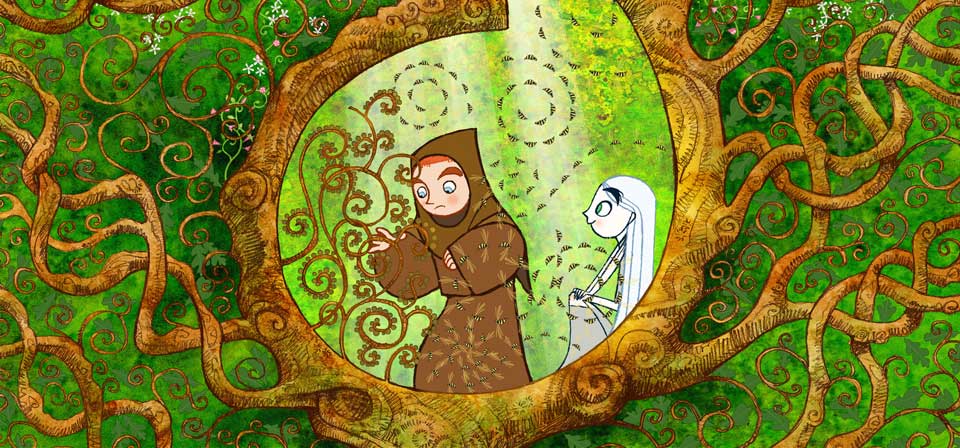
The Secret of Kells (2009)
The unknown eighth or ninth-century Irish monk who, in a playful respite from his normal work, penned in the margins of a Latin New Testament manuscript an affectionate ode in his native tongue to the mouse-catching prowess of his white cat would surely be astounded to find Pangur Bán again commemorated in pen and ink over a millennium later, romping across backgrounds that look at times like the decorative work of the monks themselves brought to life.
Roma, città aperta [Open City] (1945)
Developed in Rome during the Nazi occupation, shot in the Eternal City shortly after the Nazi withdrawal, Roberto Rossellini’s Rome Open City stunned audiences the world over who saw in it an unmediated authenticity more evocative of the documentary quality of wartime newsreels than of the artificiality of earlier, more conventional WWII dramas.
Creation (2009)
Where is the other side of the debate? Where is the Darwin who declared it “absurd to doubt that a man might be an ardent theist and an evolutionist”? Where are the likes of Charles Kingsley and Asa Gray — representatives of, respectively, religion and science, who saw no quarrel between their two worlds, and both of whom Darwin cited in this connection? Where, indeed, is the Reverend Innes who vouched that his friend Darwin “follows his own course as a Naturalist and leaves Moses to take care of himself”?
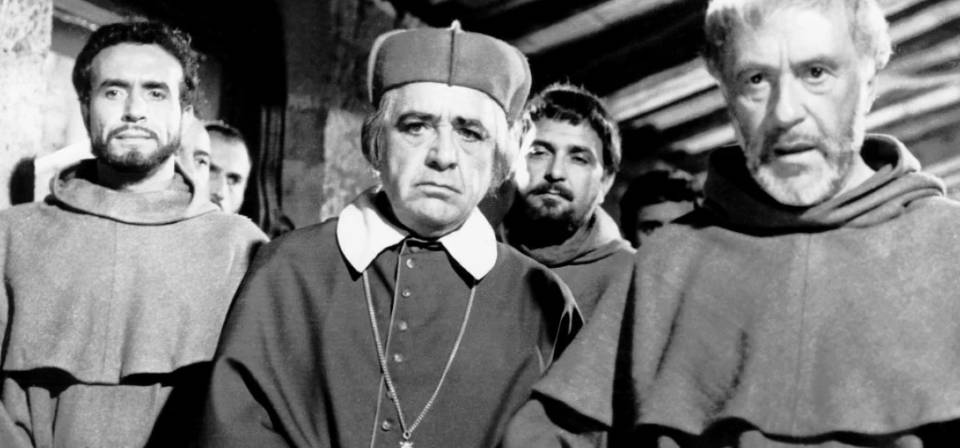
The Reluctant Saint: Joseph of Cupertino (1962)
Like its protagonist, Saint Joseph Desa of Cupertino, throughout much of his lifetime and most of the film, Edward Dmytryk’s 1962 film The Reluctant Saint is a modest affair that has attracted little attention, but has more to offer than meets the eye.
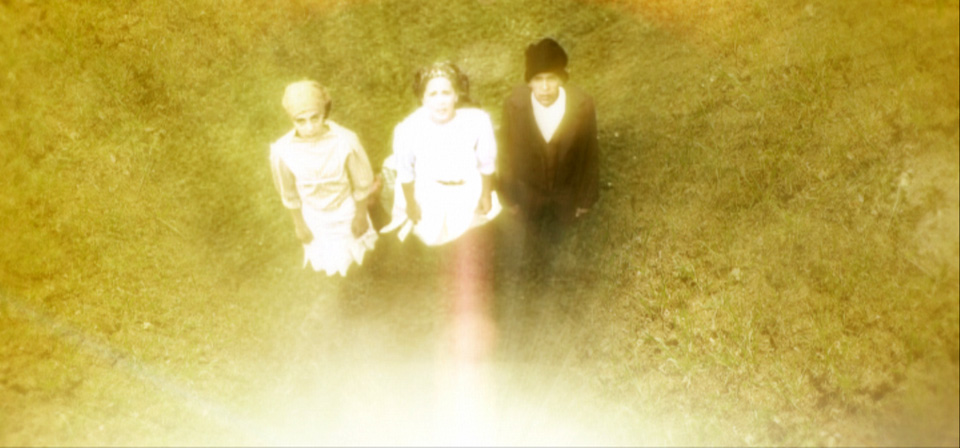
The 13th Day (2009)
The 13th Day is the best movie ever made about Fátima — the most beautiful and effective, as well as one of the most historically accurate.
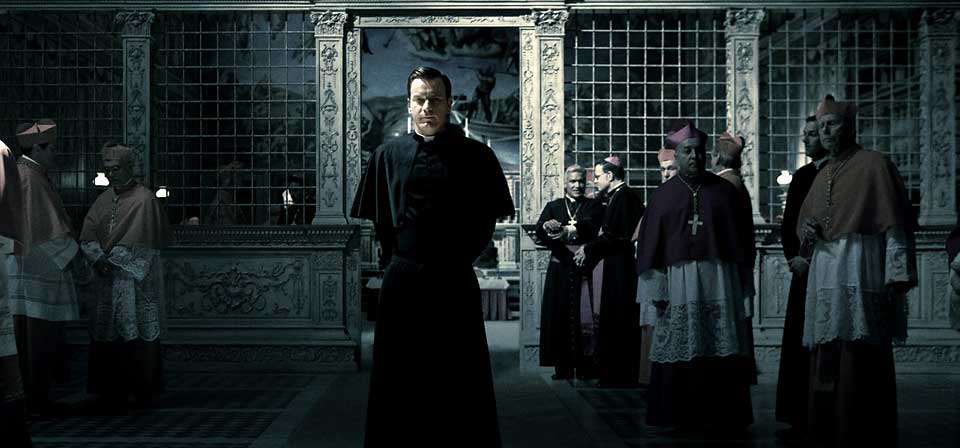
Angels & Demons (2009)
Once you’ve established that your story is set in a world in which Jesus Christ is explicitly not God, and the Catholic religion is a known fraud perpetuated by murder and cover-ups, it sort of sucks the wind out of whatever story it was you were going to tell us next. Langdon could be ironing his chinos and helping little old ladies across the street, and it would still be set in that world, and those of us who care about such things will find it hard to bracket that and just go along with the thrill machine.
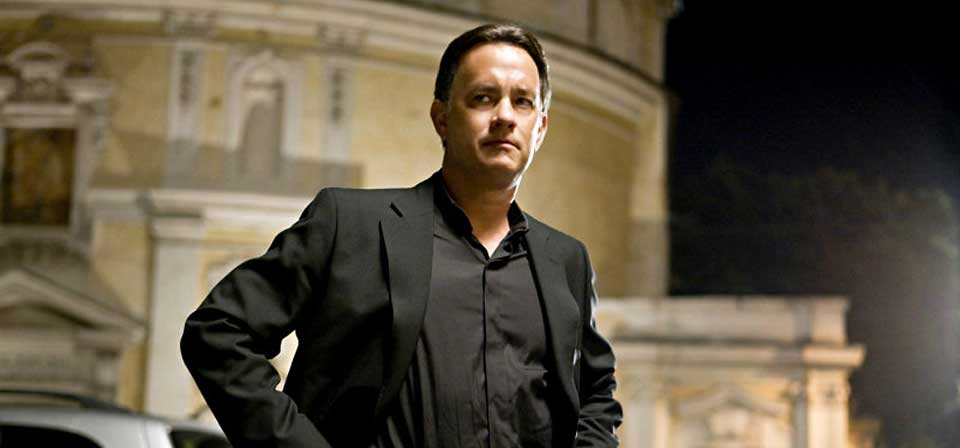
Lies, Damned Lies and Dan Brown: Fact-checking Angels & Demons
In a Q&A billed as an “interview” on his own website, Brown writes (in a comment recently highlighted by Carl Olson in This Rock), “My goal is always to make the character’s [sic] and plot be so engaging that readers don’t realize how much they are learning along the way.” Or how much misinformation they’re absorbing.
The Hiding Place (1975)
Thirty years after its original release, The Hiding Place remains one of the best films ever produced by a faith-based group (Billy Graham’s World Wide Pictures).
Hollywood and Religion: Priests, Nuns and the American Silver Screen
An old witticism has it that Golden Age Hollywood was “a Jewish-owned business selling Catholic theology to Protestant America.” If not strictly accurate, the bon mot contains more than a kernel of truth.
Henry Poole is Here (2008)
Like M. Night Shyamalan’s Signs, Henry Poole simply divides the world into two groups of people: those who see signs and miracles, and those who see only coincidence. How either group arrives at or explains particular conclusions, not to mention how people decide which group they belong to in the first place, isn’t explored. We just get Henry with his arms folded defiantly across he chest intoning “Coincidence,” and everyone else serenely shrugging their shoulders saying “Faith.”
Brideshead Revisited (2008)
Yet this Brideshead Revisited ultimately subverts Waugh’s subtlest and most subversive achievement: It offers all the foibles and puzzlement of the Flytes’ religious world, while all but obliterating the threads of grace running through their lives.
The Wicker Man (1973)
Is The Wicker Man anti-Christian? Anti-pagan? Anti-religion? Where are its sympathies? Does it have any? Like baffled, blustering Sergeant Howie, blundering about the clannish Summerisle community trying to investigate a missing child, we are asking the wrong questions, assuming the wrong rules, wandering ever further off course, walking into a trap.
Constantine’s Sword: James Carroll’s flawed history comes to the screen (2007)
The most serious problem with Constantine’s Sword, though, is not its historical distortions. The most serious problem is its out-and-out attack on Christianity as such. It is not merely antisemitism that troubles Carroll. It is not even only Jesus’ death and resurrection. Ultimately, it is the very belief that in Jesus God did something both unique and definitive, something with universal applicability for all mankind.
The Greatest Story Ever Told (1965)
And yet, compared with most Hollywood biblical epics, The Greatest Story Ever Told manages to sustain a spirit of genuine reverence and religiosity over showmanship and pageantry. Its deliberate pacing and dreamlike, otherworldly ambiance offer neither the entertainment value of The Ten Commandments nor the comparative psychological realism of Zeffirelli’s subsequent Jesus of Nazareth, yet it is arguably more evocative than either of the spirit of biblical literature.
Amazing Grace (2006)
The title reflects the supporting role of John Newton, played with gusto by Albert Finney, as a penitent ex-slave ship captain, now a mentor of sorts to Wilberforce as well as the writer of the beloved American hymn. (“A wretch like me,” Newton was not afraid to call himself in the original lyrics, with a biographical and theological honesty too direct for the revisionist vandals of hymnody responsible for many missalettes and hymnbooks.)
Bella (2006)
In the end, Bella has something to challenge everyone, pro-life or otherwise. For pro-lifers, the inspiring ending represents a call to love of neighbor. It isn’t enough just to oppose abortion: We are called to love those in need with the love of Christ, potentially at a cost to ourselves. For those who favor abortion, the ending represents a challenge to recognize that life is a beautiful and precious gift even in far from ideal circumstances, and the choice to embrace life, even when it involves great sacrifice, is also beautiful.
The Ten Commandments (2007)
Although less speculative and less freely adapted than the earlier film, The Ten Commandments shamelessly rips off interpretive conceits and even specific dramatic beats from The Prince of Egypt, from the menacing of Moses’ basket by a passing croc to the foundering of Ramses’ chariot on the shores of the Red Sea, allowing him to live to see the destruction of his army and the escape of the Israelites.
The Mormons [The American Experience/Frontline] (2007)
Directed by Helen Whitney (“John Paul II – The Millennial Pope”), “The Mormons” is at once as scrupulously respectful and sympathetic as any religious adherent might hope for in such a treatment, while also dealing directly and fairly with thorny subjects from Joseph Smith’s evolving accounts of his religious experiences to the Mountain Meadow Massacre of 120 travelers by Utah Mormons and the subsequent church cover-up.
Evan Almighty (2007)
Harmless, diverting, very mildly uplifting, Evan Almighty offers passable family entertainment meant to appeal equally to Bible-believing conservatives and left-leaning environmentalists.
Longford (2006)
Though thematically similar to Dead Man Walking, Longford grapples more directly and thoughtfully with religious themes, and doesn’t glorify its eccentric, somewhat tragic protagonist the way Dead Man Walking extols Sister Préjean.
Beyond the Gates (2005)
Beyond the Gates is most worth seeing for its uncompromising portrait of a more representative episode in the Rwandan genocide than the events depicted in Hotel Rwanda. At the same time, it offers little insight into the Hutu or Tutsi experience.
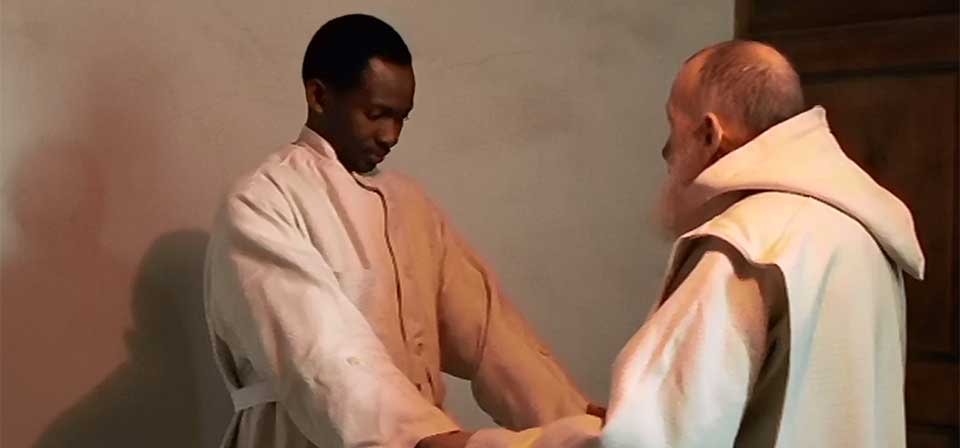
Into Great Silence (2005)
Ultimately, Into Great Silence reveals itself to be about nothing less than the presence of God. So many spiritually aware films — The Seventh Seal, Crimes and Misdemeanors — are about God’s absence or silence. Here is a film that dares to explore the possibility of finding God, of a God who is there for those who seek him with their whole hearts.
Christmas Story: Catherine Hardwicke and Mike Rich Discuss Bringing The Nativity Story to the Screen
Perhaps The Nativity Story will take its place as the missing Christmas film — the one that actually is about the real “real meaning of Christmas.”
The Nativity Story (2006)
From It’s a Wonderful Life to A Christmas Carol, from Miracle on 34th Street to Tim Allen’s Santa Clause films, there are more Christmas movies than you could watch in all twelve days. Yet even at the height of Hollywood biblical epics, the real meaning of Christmas was essentially ignored (a few brief scenes in Ben-Hur notwithstanding). The Nativity Story goes a long way toward redressing this historic omission.
St. Joseph Gets His Due: The Nativity Story Through the Eyes of Jesus’ Foster Father
Although The Nativity Story doesn’t portray Joseph as a widower, it also doesn’t depict Joseph and Mary’s relationship as a typical first-century Jewish courtship. While the film doesn’t take a stance one way or the other on the Catholic doctrine of Mary’s perpetual virginity, it finds drama in the obstacles between Joseph and Mary, rather than turning their story, as some retellings have done, into a Hollywood romance.
One Night with the King (2006)
Christians lamenting the state of Hollywood sometimes flippantly comment that this or that Bible story “would make a great movie — intrigue, sex, violence, spectacle, etc.” This, though, is not a recipe for a great movie, but for a mediocre one. The story of Esther could certainly be made into a great film. One Night with the King is not that film. In some ways, it’s not even that story.
Facing the Giants (2006)
With fans of its two genres, especially in the Bible Belt, Facing the Giants will doubtless be a success. To reach a broader audience, though, the filmmakers will have to scrap their playbook and learn a whole new set of rules.
The Keys of the Kingdom (1944)
Gregory Peck’s star-making turn as Father Francis Chisom in John M. Stahl’s The Keys of the Kingdom earned him a Best Actor nod and established his screen persona as a ruggedly decent, dignified underdog.
Mother Teresa (2003)
Almost thirty years ago Olivia Hussey played the most venerated woman of all time, the Virgin Mary, in Zeffirelli’s “Jesus of Nazareth.” Now she portrays the most revered woman of the twentieth century in the reverential, Italian-made English-language production Mother Teresa.
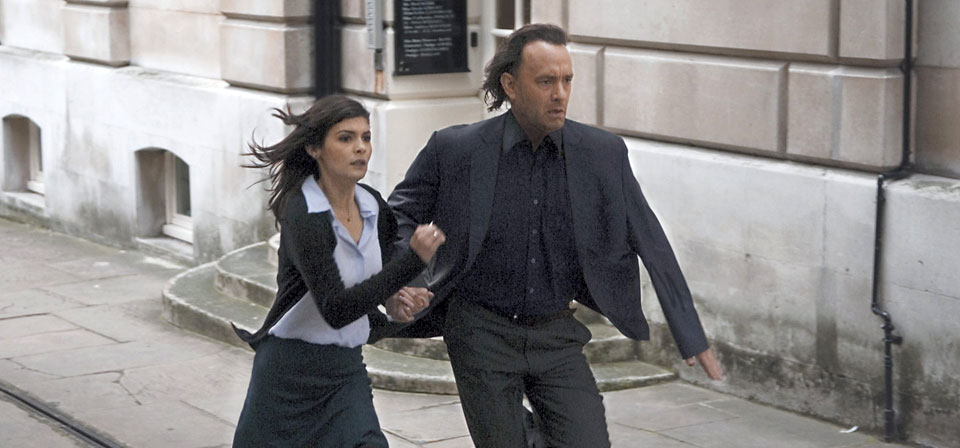
The Da Vinci Code (2006)
Is The Da Vinci Code anti-Catholic? Well, if it isn’t, then we must simply conclude that no such thing as anti-Catholicism exists, or at least that no anti-Catholic movie has ever been made.
The Passion of Bernadette (1989)
Given the inherently less dramatic structure, The Passion of Bernadette doesn’t “tell a story” the way the original film does, but the portrait of Bernadette’s unassuming heroic sanctity and occasional tart rejoinders remains moving and worthwhile.
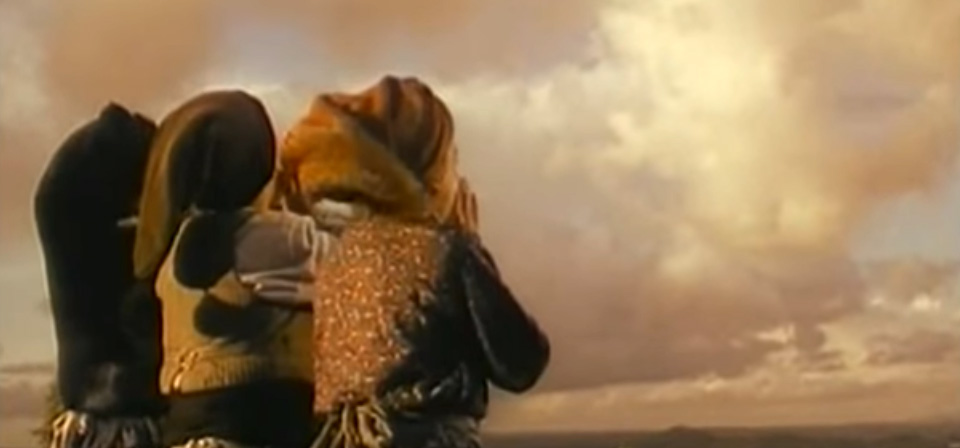
Apparitions at Fatima (1992)
Warner Bros’ The Miracle of Our Lady of Fatima may be better known, but Daniel Costelle’s 1992 Portuguese production Apparitions at Fatima is a more historically accurate and spiritually sensitive account of the visionary experiences of three young Portuguese children in 1917, culminating in the miracle of the sun witnessed by thousands.
The Shoes of the Fisherman (1968)
Fascinating despite flaws, The Shoes of the Fisherman is impossible to watch first of all as a movie. By a strange twist of chance or fate, it demands to be viewed as a curious, at times almost prescient anticipation of the reign of John Paul II, filtered partly through the lens of the Silly Sixties.
The Nun’s Story (1959)
The Nun’s Story certainly doesn’t offer the positive depiction of religious life common in 1950s Hollywood, but it’s not an anti-religious or anti-Catholic depiction either.
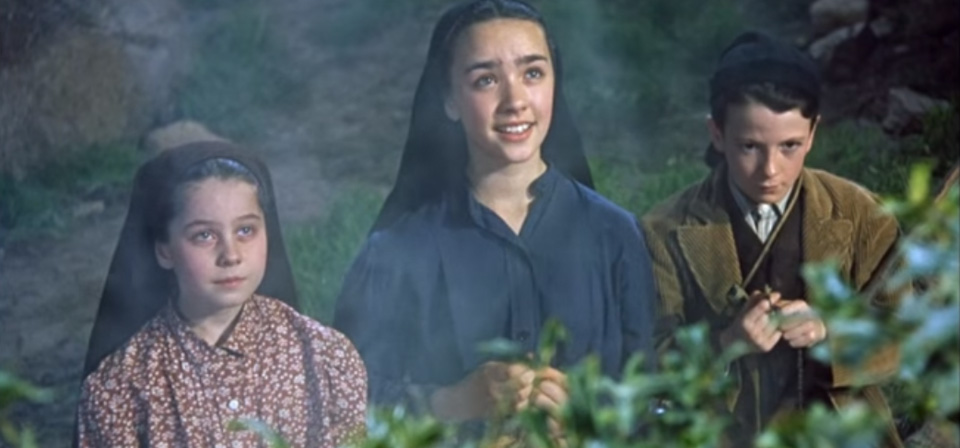
The Miracle of Our Lady of Fatima (1952)
Old-fashioned, reverent, basically faithful to the facts, The Miracle of Our Lady of Fatima never quite emerges from the shadow of the earlier, superior The Song of Bernadette, but it ups the ante with sterner opposition (militant Marxists rather than freethinking civil authorities) and a more dramatic climax.
C. S. Lewis: Beyond Narnia (2005)
Starring Anton Rodgers as an avuncular Lewis at home in Oxford in 1963, the year that he died, the short film cuts between Lewis’s running commentary on the events of his life and flashback dramatizations of those events.
The Ten Commandments (1956)
For good and for ill, it’s as much a testament and a fixture of traditional American ideals and affections as a courthouse display of the stone tablets, and as weighty and solid.
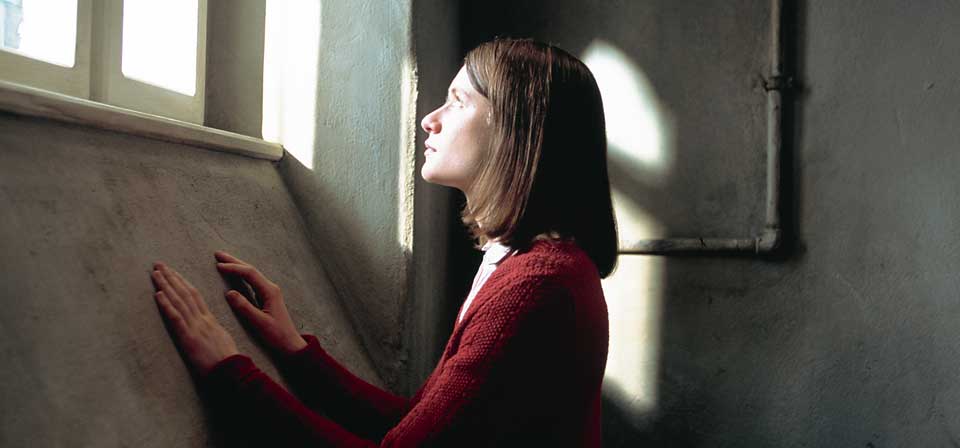
Sophie Scholl – The Final Days (2005)
Sophie Scholl is one of a very few films that accomplishes one of the rarest and most valuable of cinematic achievements: It makes heroic goodness not just admirable, but attractive and interesting.
The Chronicles of Narnia: The Lion, the Witch and the Wardrobe (2005)
One of the most magical effects in Andrew Adamson’s The Lion, the Witch and the Wardrobe isn’t rippling computer-generated fur, ice castles, or battle scenes. It’s the wide-eyed wonder and delight on the face of young Lucy Pevensie (Georgie Henley) as she passes beyond the wardrobe for the first time into the winter wonderland of the Narnian wood.
Stories of Karol: Telling the life of a man who became pope
Karol: A Man Who Became Pope isn’t the first TV movie on the life of Karol Wojtyla, the future Pope John Paul II — but among the new crop of Pope movies coming in the wake of the Holy Father’s death, it’s not only the first, but also the only one seen and praised both by Benedict XVI and John Paul II himself.
Witness to Hope: The Life of Karol Wojtyla, Pope John Paul II (2002)
In the crowd of TV documentaries on the life of Pope John Paul II, there is Witness to Hope, and there is everything else.
Pope John Paul II (2005)
Not to be confused with the identically named 1984 Herbert Wise film starring Albert Finney, Pope John Paul II is the first — so far the only — dramatic presentation to do anything like justice to the life and reign of the 20th century’s most popular pope.
Confession (2005)
Reverent, well directed, and well acted by a respectable cast including Bruce Davison, Tom Bosley and Peter Green, Confession’s weakness is also its promotional gimmick: Meyers directed the film at 24, but wrote the screenplay ten years earlier as a student in a Catholic boarding school.
The Exorcist (1973)
“You just take your pills and you’ll be fine, really,” Chris (Ellen Burstyn) promises her daughter Regan (Linda Blair), but part of the film’s brief is that pills aren’t the answer to everything, and faith and religion may have answers science doesn’t.
Ben-Hur [A Tale of the Christ] (1925)
At nearly 2½ hours long, the 1925 version is still an hour shorter than the 1959 version, yet the story is essentially the same, and the scale similarly impressive.
Ben-Hur [A Tale of the Christ] (2003)
In 2003, Charlton Heston reprised his greatest role, if in voice only, in an animated made-for-TV version of Ben-Hur from the director and producers of the animated “Greatest Heroes and Legends of the Bible” series.
The Exorcism of Emily Rose (2005)
A line in the trailer for The Exorcism of Emily Rose, felicitously cut from the final film, observes that “There’s no pill for the devil.” More to the point, there’s no diagnostic test or scan for him, either.
Au Hasard Balthazar (1966)
A stark, unsettling vision of human cruelty, folly, and destructive behavior, leavened by an icon of innocent suffering, Au Hasard Balthazar may be Robert Bresson’s most poetic, haunting, personal work — the culmination of the filmmaker’s style and concerns, the most "Bressonian" of films.
The Ninth Day (2004)
The Ninth Day digs beyond rote charges of ecclesiastical complicity and counter-arguments to explore various levels of resistance and protest — and their consequences.
Kingdom of Heaven (2005)
The story, in fact, could largely be described as the failure of moderate Christians to restrain fanatical Christians from oppressing innocent Muslims, thereby provoking justifiable Muslim retaliation against the Christians, both fanatics and otherwise. Yet Saladin himself is not an uncomplicated noble figure. As he prepares to lay siege to Jerusalem, he explicitly rejects the possibility of showing mercy, relenting only when Balian fights him to a standstill.
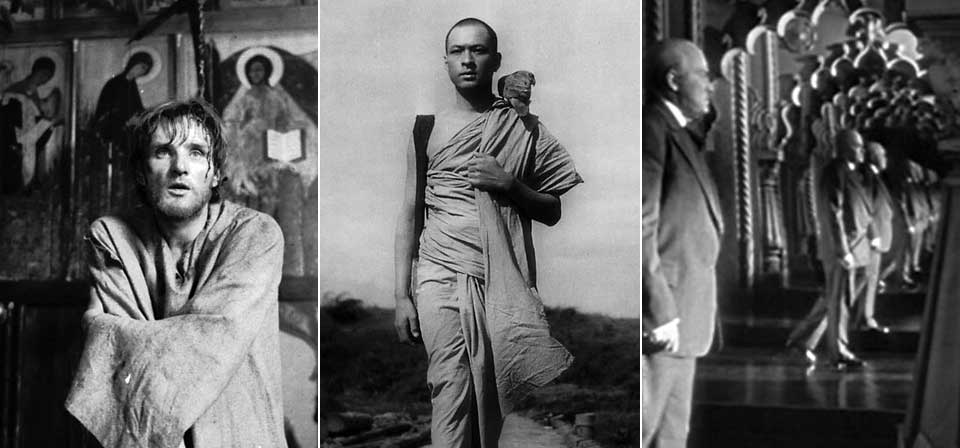
The Vatican Film List
The pope’s remarks were both forward looking, speaking to the potential of cinema to become “a more and more positive factor in the development of individuals and a stimulus for the conscience of society as a whole,” and also historically minded, speaking positively of the praiseworthy contributions of “many worthwhile productions during the first hundred years of [the cinema’s] existence.”
A&E Biography: Pope John Paul II — Statesman of Faith (1993)
Pope John Paul II gets the A&E “Biography” treatment in Pope John Paul II — Statesman of Faith, a 50-minute documentary made in 1993 focusing particularly on the Holy Father’s crusades against totalitarianism and violence.
The Jeweller’s Shop (1990)
The story is propelled by ordinary (though sometimes philosophically elevated) dialogue, and a mysterious character in the play, Adam, becomes a simple priest — a rather Wojtyla-like priest, actually, who takes the young people of his parish on nature hikes in the mountains.
National Geographic: Inside the Vatican (2002)
Though the documentary plays like a “a day in the life” at the Vatican, National Geographic filmmakers actually spent three months in Rome amassing footage and interviews. The result is a well-rounded portrait, or series of portraits, of Vatican life: Vignettes include the ordination of a bishop, the restoration of a priceless tapestry, the swearing-in of a Swiss Guard soldier, reception of world leaders, and a race to digitally preserve disintegrating documents.
Faustina (1995)
Without context or explanation, Lukaszewicz plunges the viewer into Faustina’s world, confronting us with with an early experience from Faustina’s childhood, challenging us to take this story on its own terms. It’s a surprisingly powerful approach, as transcendent in its own way as the restraint of Bresson or Dreyer.
Million Dollar Baby (2004)
By the film’s end, Frankie is faced with a choice that the priest says could lead to his damnation. The film makes the wrong choice seem right. But it leaves it an open question, I think, whether making that choice leads to redemption or damnation. Million Dollar Baby suggests, perhaps, that the right and most loving thing to do for someone else may entail one’s own damnation. This is very far from good way of looking at things. But it suggests a film that is less complacent, more thoughtful, less like smug propaganda than some of its detractors allege.
Bernadette (1988)
Eschewing both the slickness and Hollywood sentiment of The Song of Bernadette and the speculative psychology of Alain Cavalier’s contemporary Thérèse, Delannoy’s unembellished, straightforward account seeks only to tell Bernadette’s story in a clear and compelling way.
Millions (2005)
Millions is a rare and special family film: a moral parable rather than a morality tale; a film that combines high ideals and hard realities; a story of hope and faith in something more than Santa Claus. Which is not to say that Santa Claus, or rather St. Nicholas, doesn’t show up. But when he pops on a bishop’s mitre rather than the familiar red Santa hat, it’s clear we’re not in Hollywood movieland here.
The Gospel of John (2003)
It is, so to speak, not "based on" St. John’s Gospel at all, so much as it is St. John’s Gospel — visualized and enacted to be sure, and to that extent interpreted and glossed, but not "adapted" in the usual sense.
Constantine (2005)
The comic-book Constantine is a blond Brit based in Liverpool (think Sting by way of Christopher Lee in Terence Fisher’s The Devil Rides Out). For the film, the casting of Keanu led to a change of setting to California and LA. Similarly, the casting of Shia LaBeouf (Holes) as Constantine’s ally Chandler turned the character from a seasoned comrade in arms into a Jimmy Olsen-like junior sidekick. (Whatever happened to casting actors who fit the part?)
Faith and Film in the Post-Passion Era
Constantine might sound like the latest entry in Hollywood’s string of violent costume dramas (Alexander, Troy, King Arthur), but it’s not actually about the Roman emperor who was the subject of such religious films as Constantine and the Cross. In this film, instead of a sign in the sky, the cross is a weapon in the ero’s hands. Starring Keanu Reeves, Constantine is a sort of a cross between Hellboy and The Exorcist with some Matrix attitude thrown in, a violent R-rated action-thriller of the supernatural based on the DC/Vertigo comic book Hellblazer, about a cynical demon-hunter antihero who’s literally been to hell and back. Though he knows that what God expects is belief, self-sacrifice, and repentance, he is futilely trying to earn his way into God’s good graces.
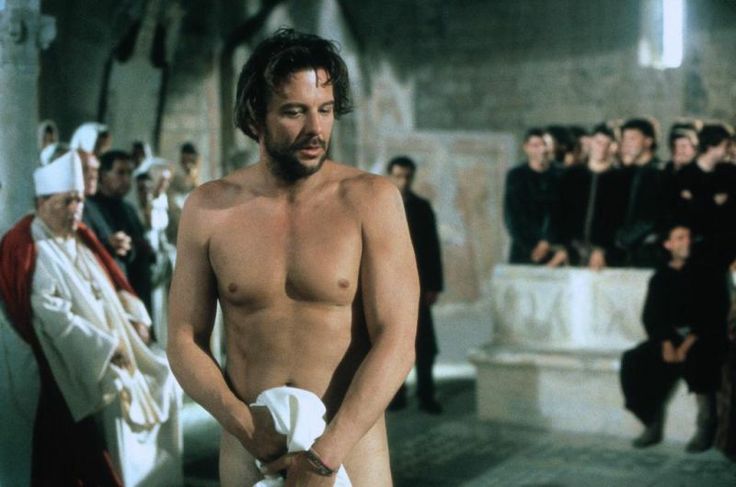
Francesco (1989)
How is it, then, that Cavani succeeds in making Francesco neither an attractive hero of secular virtues nor an off-putting champion of spiritual ones? How does she come to make her protagonist off-putting without being otherworldly, earthbound without being attractive?
Ordet (1955)
Ordet means "the word," but what is the word? What is Carl Dreyer’s somber, ponderous masterpiece, adapted from the stage play by Lutheran clergyman Kaj Munk, really about?
Chariots of Fire (1981)
Two very different approaches to religion and sport are at the heart of Chariots of Fire, a period piece that explores timeless themes of temporal ambitions and higher purposes, of commitment and sacrifice, of ability and spirit.
Thérèse [The Story of Saint Thérèse of Lisieux] (2004)
“Ordinary girl. Extraordinary soul” is the tagline of Thérèse, Catholic actor-director Leonardo Defilippis’s reverent, uplifting, straightforward biopic of the Little Flower. Of the tagline’s two clauses, the film’s special burden seems to be the first part, “ordinary girl.”
Au Revoir Les Enfants (1987)
Au Revoir Les Enfants, Louis Malle’s semi-autobiographical film about life in a Catholic boarding school for boys in Nazi-occupied France, has been called an elegy of innocence lost, though in fact the youthful characters are never truly innocent, only clueless, and what they lose is not innocence but something more elusive.
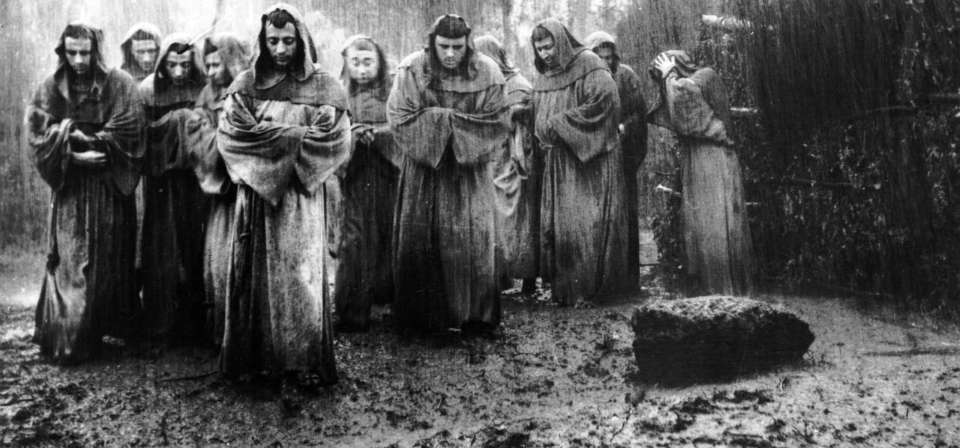
The Flowers of St. Francis (1950)
Rossellini doesn’t cater to contemporary sensibilities by reinventing Francis as a mere eccentric free spirit, a medieval flower child, such as we find in Zefferelli’s Brother Sun, Sister Moon. Francis remains challenging to modern audiences here, his childlike spirit joined to insistence on strict religious obligation and ultimately to zeal for evangelization.
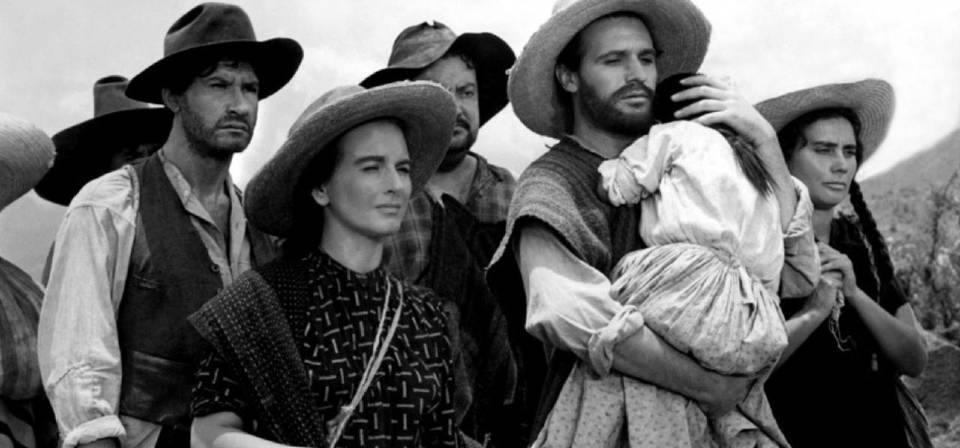
Nazarín (1959)
Buñuel makes his case against faith, not by attacking its foolish or corrupt practitioners, but by arguing that the thing itself, even when lived almost to perfection by a near saint, is moot, even harmful. It may be the most breathtaking cinematic cross-examination of faith I have ever seen.
The Burmese Harp (1956)
Kon Ichikawa’s deeply humane, spiritually resonant masterpiece The Burmese Harp is routinely but reductionistically described as “pacifist” or “anti-war,” though in fact war is merely the occasion for the story’s theme, not the theme itself. That theme is nothing less than the intractable mystery of suffering and evil, an affirmation of spiritual values, and the challenge to live humanely in evil circumstances.
The Fighting Temptations (2003)
Here is a film so woefully misconceived, so completely devoid of even generic, safely banal Hollywood spiritual uplift, that it made me long for the spiritual depth and religious meaning of Sister Act and Bruce Almighty.
The King of Kings (1927)
Cecil B. DeMille’s biblical silent masterpiece The King of Kings, until now available in home video only in DeMille’s shortened 112-minute 1928 cut, is now available in a new restored DVD edition from Criterion that includes both the original 155-minute 1927 “roadshow” version and the shorter general release version.
The Seventh Seal (1957)
Starkly existential, boldly poetic, slow and grim, Ingmar Bergman’s great classic The Seventh Seal has haunted film aficionados, baffled and bored college students, inspired innumerable parodists, and challenged both believers and unbelievers for nearly half a century.
King Arthur (2004)
Even in the silent era, with Douglas Fairbanks playing every legendary hero from Zorro to Robin Hood to D’Artagnan, seeking adventure everywhere from the Spanish Main (The Black Pirate) to Arabian Nights territory (The Thief of Bagdad) to South America (The Gaucho), King Arthur was overlooked.
I Confess (1953)
Hitchcock’s underrated I Confess may or may not not quite rank with his greatest masterpieces, but it offers perhaps the most compelling variation on the director’s favorite theme, the innocent man wrongly accused.
Understanding the Catholic Meaning of The Passion of the Christ
In its most extreme form, the charge of morbidity has been laid at the feet of the Christian faith itself. Christianity’s harshest critics denounce it as "a religion of death." Clearly, at some point objections of this sort must be regarded as a case in point of what the scriptures call the "scandal" of the cross. It is the cross itself, the very suffering and dying of God made man, and the way Christians respond to this event in their faith and devotion, that is behind much (though again not all) of the religious and anti-religious controversy over the brutality of this particular film.
Miracle of Saint Thérèse (1952)
Joan of Arc, the warrior-saint who wore men’s garb and was burned at the stake, would at first glance seem to be an odd role model for a girl whose greatest aspiration was to wear the habit of a cloistered nun and who died in the convent of tuberculosis.
The Sacrifice (1986)
To “rip open the inconsolable secret,” to awaken the spiritual hunger for something beyond the materialistic scope of our fragmented, desacrilized modern existence, was the burden of Andrei Tarkovsky, cinematic poet laureate of the Russian soul.
The Cross and the Vampire: Religious Themes in Terence Fisher’s Hammer Horrors
The religious themes in the B-movie horror films directed by Terence Fisher for Hammer Films could fill a book. In fact, there is such a book.
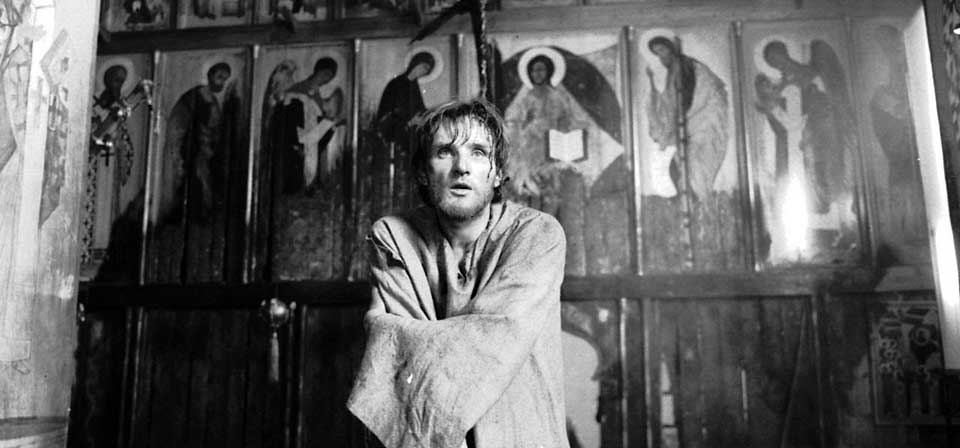
Andrei Rublev (1969)
The notion of art as a "religious experience" is sometimes bandied about too freely. Tarkovsky is one of a handful of filmmakers for whom this ideal was no cheap or desanctified metaphor, but literal truth.
Thérèse (1986)
Alain Cavallier’s stark, austere reflection on the mystery of the little saint of Lisieux’s romance with Jesus… is a reverie rather than a meditation, built of fleeting minimalist vignettes, almost snapshots, glimpses of its subject rather than an integral portrait. There is no sense of judgment, of approval or disapproval of its subject’s life, or even, finally, of real understanding. His Thérèse is a riddle, and we must make of her what we can.
The Scarlet and the Black (1983)
Riveting and edifying, this WWII drama stars Gregory Peck as Msgr. Hugh O’Flaherty, a plain-speaking, straight-dealing Irish priest who boldly aids enemies of the Third Reich under the watchful eye of Christopher Plummer’s Nazi Lt. Col. Herbert Kappler. Their cat-and-mouse game is thrilling and great fun, and culminates in a startling showdown in a very significant setting.
Intolerance (1916)
Intolerance is a grandiose composite epic, interweaving four separate morality plays from different eras and settings, from 20th-century America (the "Modern Story") to Old Testament times (the "Babylonian Story"). Rounding out the four are a brief survey of the life and death of Christ (the "Galilean Story" [sic; most of it is set in Judea, not Galilee]) and events from the 16th-century persecution and massacre of Huguenot Protestants under the Medicis, including the St. Bartholomew’s Day Massacre (the "French Story").
Bonhoeffer (2003)
Bonhoeffer notes the seeming oddity of the prominence of its subject, whose celebrity today may seem from one perspective disproportionate to his importance as a theologian and ecumenist and certainly as a relatively unimportant conspirator in a failed assassination attempt. Yet as another 20th-century saint once said, “We are called upon not to be successful, but to be faithful.” Bonhoeffer was faithful to the giving of his own life, which he did as willingly and serenely as any martyr.
The Decalogue (1988)
The Decalogue, Kieslowski’s extraordinary, challenging collection of ten one-hour films made for Polish television in the dying days of the Soviet Union, doesn’t answer those questions either. What it does is pose them as hauntingly and seriously as any cinematic effort in the last twenty years.
The Son (2002)
A tightly wound, middle-aged carpenter named Olivier (Olivier Gourmet) works with young boys at some sort of center. His inner life, his motives and emotions, aren’t revealed to us, and he doesn’t seem preoccupied with them himself. He wears a leather back brace, and has perhaps been injured at some point; and his work itself may be a similar sort of prop against some injury of his past.
On the Waterfront (1954)
“A Going My Way with substance” is how Elia Kazan’s classic, controversial On the Waterfront was recently described in a lecture at Boston College.
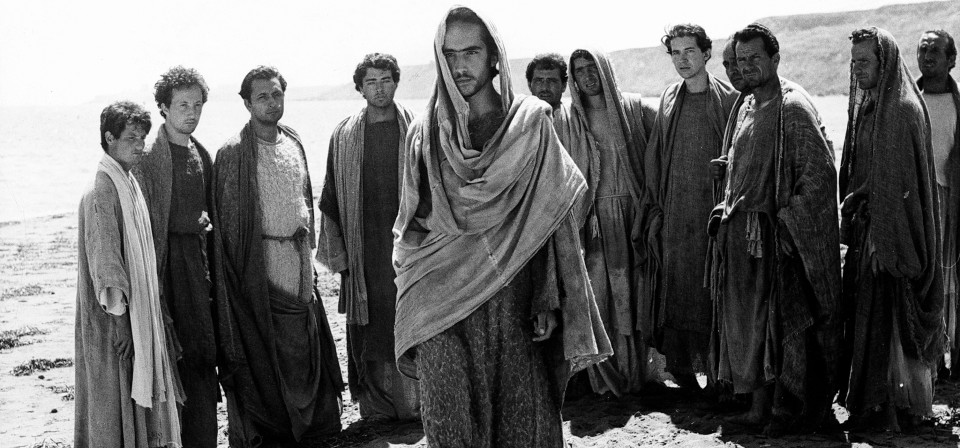
The Gospel According to St. Matthew (1964)
In the end, perhaps the most enduring achievement of The Gospel According to Matthew is an ironic one, given Pasolini’s Marxism: No other life-of-Christ film is so contemplative, inviting the viewer simply to meditate on the life and teaching of Jesus.
Fiddler on the Roof (1971)
L’Chaim! Life itself, joyous and tragic, is the subject of the boisterous, comic, heartbreaking vision of Fiddler on the Roof.
Ben-Hur [A Tale of the Christ] (1959)
The grandest of Hollywood’s classic biblical epics, William Wyler’s Ben-Hur doesn’t transcend its genre, with its emphasis on spectacle and melodrama, but it does these things about as well as they could possibly be done.
From the Manger to the Cross (1912)
The art of cinema had advanced dramatically in the few years between the two films, and From the Manger to the Cross is far more sophisticated — though I actually find the earlier, more primitive Life and Passion more effective. Even so, both are worthwhile, and they make a good double bill.
The Face [Jesus in Art] (2001)
The Face, a remarkable two-hour documentary produced in conjunction with the Catholic Communication Campaign, is a visually sumptuous and spiritually rewarding exploration of Christian art that surveys the history of how Jesus Christ has been portrayed, and how Christian teaching has been understood, interpreted, and given different emphases by the art of different times and places.
Hellboy (2004)
The best thing about Hellboy is Hellboy. And he’s a demon.
The Passion: Doug Barry of Radix Relives Jesus’ Final Hours
Veteran Catholic performer Barry, who calls his apostolate Radix, has been doing his live one-man passion play for a decade, accompanied for most of that time by his musical partner, Eric Genuis. One recorded version has played for a number of years on EWTN around Holy Week. This version, filmed live in 2003 at the Orpheum Theatre in Memphis, TN, benefits from enhanced production values including multiple cameras.
The Life and Passion of Jesus Christ (1905)
The Life and Passion of Jesus Christ is a remarkable relic from the very dawn of cinema.
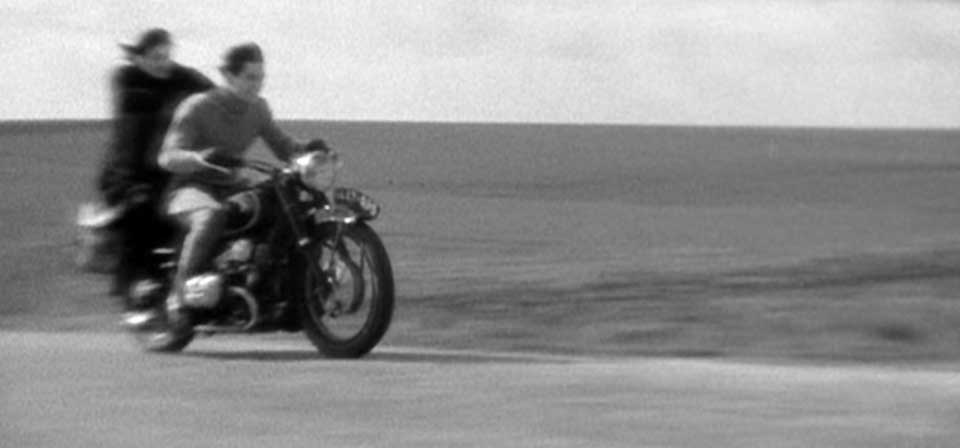
Diary of a Country Priest (1951)
Faithfully adapting its source material, Catholic novelist Georges Bernanos’s fictional autobiography of a soul, the film profoundly contemplates the spiritual meaning of suffering and persecution, conversion and incorrigibility, and the dark night of the soul with a rigor and insight evocative of Augustine’s Confessions or Thérèse’s Story of a Soul.
The Missing (2003)
In place of Ford’s iconic but Indian-hating cowboy hero, Howard gives us two white protagonists who are each, in their own ways, the antitheses of the John Wayne character.
Heaven Knows, Mr. Allison (1957)
Like director John Huston’s similarly themed The African Queen, the film finds conflict mixed with romantic tension in a tale of a demure religious woman thrown together with a rugged male loner. Here, though, the complicating factor is not fastidiousness on the part of the religious woman, but the woman’s vocation.
One Man’s Hero (1999)
Who is right? The issues are complex, and historians and faithful Catholics disagree (see related article). One Man’s Hero is sympathetic to the St. Pats and critical of American "Manifest Destiny" expansionism and anti-Catholicism.
"One Man’s Hero is Another Man’s Traitor"
Even movie-savvy Catholics often haven’t heard of One Man’s Hero, Lance Hool’s 1999 film about the San Patricios, a group of Irish Catholic immigrants in the 1840s who joined the U.S. Army but deserted after suffering religious and ethnic persecution, fled to Catholic Mexico, and wound up fighting on the Mexican side in the U.S.-Mexican War. The film, starring Tom Beringer, never got a proper U.S. theatrical release, and hasn’t been promoted on video and DVD, even in Catholic markets and media.
Lilies of the Field (1963)
Sidney Poitier won a Best Actor Oscar for his portrayal of Homer Smith, a cheerful, itinerant Baptist handyman who one day pulls off the road and approaches a house with no more thought than to get water for his car radiator.
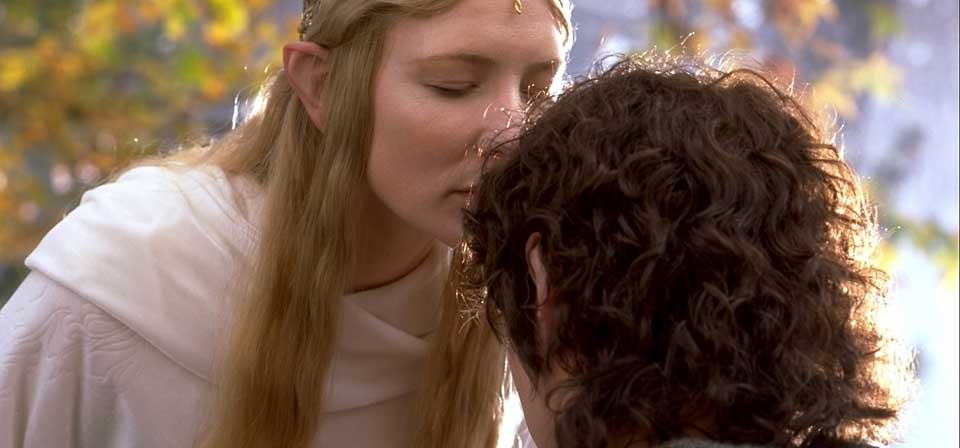
Faith and fantasy: Tolkien the Catholic, The Lord of the Rings, and Peter Jackson’s film trilogy
J. R. R. Tolkien once described his epic masterpiece The Lord of the Rings as "a fundamentally religious and Catholic work." Yet nowhere in its pages is there any mention of religion, let alone of the Catholic Church, Christ, or even God. Tolkien’s hobbits have no religious practices or cult; of prayer, sacrifice, or corporate worship there is no sign.
The Chronicles of Narnia (1988‑1990)
Beautiful, rugged UK landscapes, splendid old castles and other shooting locations, and some fairly impressive sets help create a sense of authenticity. At the same time, with the earlier episodes especially limited by modest production values, rudimentary special effects, and uneven acting, the Chronicles can’t be held even to the standard of such American TV productions as the Merlin and Arabian Nights miniseries.
Say Amen, Somebody (1982)
If the toe-tapping gospel music of The Fighting Temptations appeals to you but you were put off by that film’s negative Christian stereotypes and lack of even rote Hollywood spiritual uplift or pro-faith sentiment, treat yourself to this engaging, gospel-infused documentary tribute to the African-American men and women who first began combining the heart and soul of Negro spirituals with the infectious rhythms of jazz and blues.
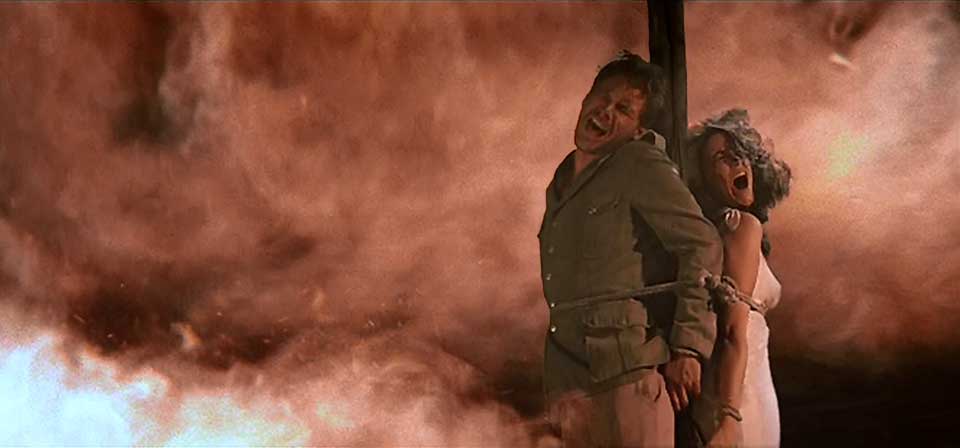
Raiders of the Lost Ark (1981)
Like the Paramount logo mountain peak in the now-famous opening dissolve that started it all nearly three decades ago, Raiders of the Lost Ark towers over the surrounding landscape. It is the apotheosis of its genre, the Citizen Kane of pulp action–adventure, definitively summing up all that came before and setting the indelible standard for all that comes after.
Molokai: The Story of Father Damien (1999)
A native of Belgium, ordained in Honolulu, at the age of 33 Fr. Damien volunteered to become the first and only priest serving the leper colony. There he spent himself attending as best he could to the people’s needs, both spiritual and physical, offering the sacraments but also dressing wounds, helping to shelter them from the elements, even constructing coffins and digging graves.
Sister Helen (2002)
God bless Sister Helen Travis, with her foul
mouth, black wimple, "I ♥ Jesus"
The School of Rock vs. The Fighting Temptations
The hero’s nearly religious reverence for rock’s angry posturing and anti-authoritarianism — reverence culminating in a pre-concert prayer to the "God of rock" — isn’t quite condoned, but isn’t put in any larger context either. Rock culture’s darker side is whitewashed (it’s not about drugs, kids, and groupies are really just band cheerleaders!), and subjects other than music (and even music other than rock) get short shrift. Then there’s the swishing, lisping fifth-grade "band stylist" bringing "Queer Eye" camp to the grade-school setting.
The Count of Monte Cristo (2002)
Like The Mask of Zorro, Monte Cristo balances its anachronistic sensibilities and over-the-top set pieces with genuine emotion and a real moral dimension — even, in Monte Cristo, a spiritual dimension. This is an action movie that’s also a morality play, a tale of injustice and vengeance that actually reckons on God, faith, and divine justice.
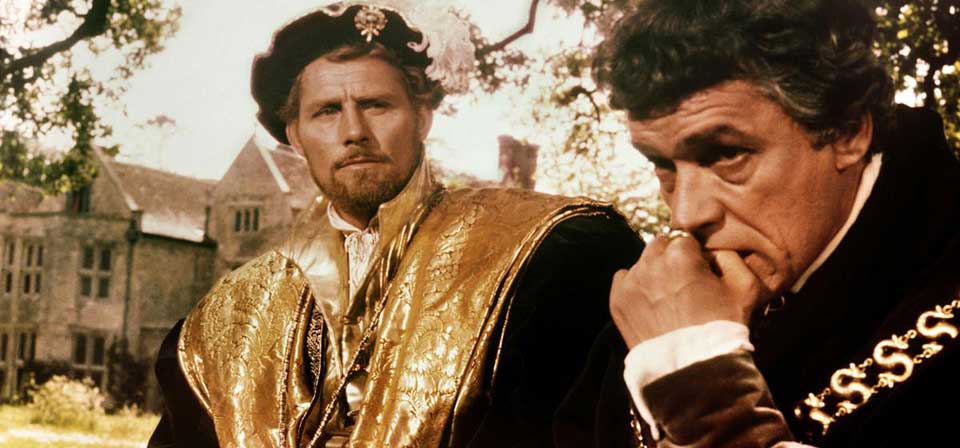
A Man for All Seasons (1966)
The screenplay, well adapted by Robert Bolt from his own stage play, is fiercely intelligent, deeply affecting, resonant with verbal beauty and grace. Scofield, who for years starred in the stage play before making the film, gives an effortlessly rich and layered performance as Sir Thomas More, saint and martyr, the man whose determined silence spoke more forcefully than words, and who then spoke even more forcefully by breaking it.
Signs (2002)
Signs has the
heart that was lacking in Unbreakable, but stumbles badly
in its treatment of the paranormal, in this case the world of
"X-Files" / "Twilight Zone"
Here I Stand: The Good and Bad in Eric Till’s Luther
In one sense, I’d like to see more films like this made. At the same time, Luther is also a seriously flawed film. Relentlessly hagiographical in its depiction of Luther and one-sidedly positive in its view of the Reformation, the film also distorts Catholic theology and significant matters of historical fact, consistently skewing its portrayal to put Luther in the best possible light while making his opponents seem as unreasonable as possible.
Friendly Persuasion (1956)
Scenes of silent, unstructured Quaker meetings are contrasted without comment or judgment to the boisterous singing of the local Methodist church, but — despite Eliza’s best efforts — the film is largely an account of the compromises the Birdwells are and aren’t willing to make. Their principles are repeatedly put to the test, at the local fair, on the Sunday morning ride to the meeting house as a smug neighbor blows past Jess’s slow horse every week, and so on. One of the best vignettes concerns an impasse between Jess and Eliza over the shocking purchase of an organ, and the delightful way the conflict is finally resolved.
Fantastic Voyage (1966)
A landmark of 1960s sci-fi, Fantastic Voyage remains compelling entertainment despite dated special effects, deliberate pacing, and indifferent dialogue and acting, thanks in part to the genuine wonder it brings to its premise.
The Rookie (2002)
There’s an easygoing, folksy charm to this film, accentuated by a country-themed soundtrack and characters who say such things as “I’m gonna need a longer street for that talk” and “Lord knows I’m ready for both sides of the bed to be warm again.”
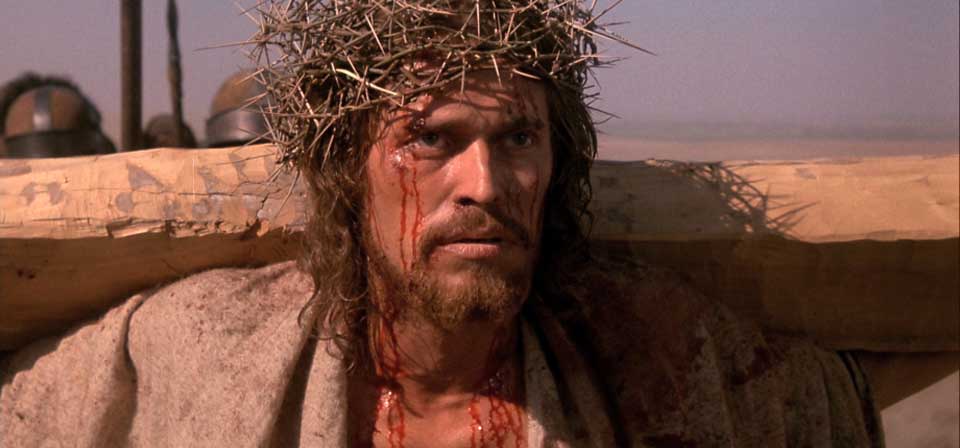
The Last Temptation of Christ: An essay in film criticism and faith
We must not be too quick to judge any particular portrait of Christ merely because it challenges our expectations or makes us uncomfortable, or because it doesn’t immediately evoke his divinity. After all, Jesus himself often confounded the expectations of his contemporaries, and didn’t necessarily impress most of them as being divine.
Quest for the True Cross (2002)
Quest For the True Cross is the somewhat misleading name of a recent bestselling book coauthored by scholar Carsten Peter Thiede and of this companion documentary produced by Mel Gibson’s Icon Films for the Discovery Channel.
The Song of Bernadette (1943)
Based on the historical novel by Jewish author Franz Werfel, the beloved classic The Song of Bernadette stands head and shoulders over most religiously themed fare from Hollywood’s golden age.
The Fugitive (1947)
Not to be confused with any version of the story of Dr. Kimble and the one-armed man, this Fugitive is director John Ford’s underrated adaptation of Catholic novelist Graham Greene’s masterpiece The Power and the Glory.
Gangs of New York (2002)
That book, with its breathless vignettes of the 19th-century lower Manhattan underworld, has no central plot or unifying storyline. Similarly, the most striking moments in Scorsese’s film come as glimpses into that time and place. When we see hordes of immigrants milling about in the unguessed catacombs beneath the Old Brewery of the Five Points neighborhood, or rival fire brigades brawling in the streets rather than fighting the fire, it’s easy to feel that here, surely, is a dark and strange world that would be interesting to explore, a world in which memorable stories must have taken place.
Final Solution (2002)
It’s a melancholy truth that religion is often a key ingredient in long-standing conflicts festering in certain troubled regions around the globe: the Middle East, Northern Ireland, the Balkans. Final Solution depicts the way religion has been involved in the racial strife in South Africa — but it also points to the role that faith can and should play in reconciliation and healing as well.
Gods and Generals (2002)
(Written by Robert Jackson) Gods and Generals is an extremely one-sided account of the first half of the Civil War.
Jonah: A VeggieTales Movie (2002)
(Review by Mark Shea) I know. It sounds uninspiring on paper, if you haven’t seen them. But — you gotta trust me on this — these guys are really funny, a sort of strange brew mixing Monty Python, MTV, your third grade Sunday School teacher and a tiny bit of Robin Williams — all with a G rating.
Bruce Almighty (2003)
Theologically speaking, the question was absurd and meaningless; but the answer, I think, contained profound insight. God is both the source and the goal of our being, the meaning as well as the master of our lives. Imagine reality without God, and life becomes meaningless; imagine divine omnipotence at the disposal of anything other than divine love, and existence becomes infinite horror.

Dogma (1999)
Like the creators of Dogma, I feel the need to begin with a disclaimer of my own. This review is an exercise in film criticism and commentary informed by Christian faith. It is neither an anti-Dogma activist polemic nor a pro-Dogma apologetical treatise. I come not to praise Kevin Smith, nor to bury him, but to critique his work.

Dogma in Dogma: A Theological Guide
From a religious point of view, Kevin Smith’s Dogma comes a lot closer to making sense if you just accept one premise: The angels in it — fallen and otherwise — are all really bad at theology.
Don’t Get Left Behind
Still others, trying to strike a happy medium, opt for a tolerant ecumenical openness to various interpretations. "Pray for ’pre’ but prepare for ’post,’ " advised Fundamentalist singer Keith Green when asked about his views on the timing of the rapture and the tribulation. Many likewise feel that the interpretation of end-times prophecy is an inessential matter regarding which Christians may legitimately hold different views. (Incidentally, if you’re already having trouble with terms like "pre" and "post," try this summary to get up to speed.)
Dragonfly (2002)
Dragonfly is a ghost story of sorts, but it isn’t a horror film (though it occasionally thinks it is). The ghost seems to be the late wife of Dr. Joe Darrow (Kevin Costner); and who would be frightened of his own best beloved, even if she happened to be a ghost?

Romero (1989)
“A good compromise choice” is how one observer describes the 1977 appointment of Oscar Romero (Raul Julia) — a conservative, orthodox, apolitical bishop of a small rural diocese — to the archbishopric of San Salvador. By the time Archbishop Romero’s tempestuous three-year tenure comes to its violent end, “compromise” is a word no one will ever again think of in connection with him.
Changing Lanes (2002)
Neither Gipson nor Banek makes much of a poster child for the danger of civilized behavior devolving into savagery, since neither of them seems quite stable from the outset. Gipson’s a recovering alcoholic with violent tendencies who seems to cause trouble wherever he goes, while Banek’s a soulless shell of a human being too shallow to realize that he’s as unprincipled as everyone else around him, including his wife (Amanda Peet). That unstable human beings can do unpredictable and terrible things isn’t exactly a dramatic revelation; yet even so the film relies so much on contrivance and arbitrary behavior that the events and their consequences seem to have little to do with the human nature of the characters involved.
A Walk to Remember (2002)
Like its heroine Jamie, A Walk to Remember is pious, wholesome, and eminently open to mockery and derision. Also like its heroine, it doesn’t care what people think of it.
Shadowlands (1993)
Anthony Hopkins plays “Jack” as a somewhat abstracted ivory-tower academic rather than the robust and jovial figure he actually was. But Lewis’ penetrating intellect and faith are here, as is his love for Joy (Winger), and the crippling grief that came afterwards. A challenging and inspiring film.
The Prince of Egypt (1998)
Witness the astonishing animation of scale at work in capturing the towering monuments of Egypt, or the host of departing Hebrews: few if any traditional animated films have ever captured the sheer sense of size in this film. Watch the subtle storytelling in an early scene as the infant Moses, caught up in the Queen’s arms, eclipses the toddler Ramses in her line of vision, leaving him standing there with outstretched arms; foreshadowing the rivalry and ultimately the enmity between the heir to the throne and his Hebrew foster brother. Notice the small details in those quiet numinous moments: the pebbles rolling back at Moses’ feet at the burning bush; the halo of clear water around his ankles as the Nile turns to blood; the horror of an Egyptian servant as the surface of the water bubbles and the first frogs begin to flop out of the river onto the palace stairs; an extinguished candle flame or an offscreen sound of a jar crashing as the destroying angel swirls in and out among the Egyptians.
The Others (2001)
Then re-anchor the story to reality by asking whether there are really any ghosts at all — whether apparently spectral manifestations might not in fact be no more than an unstable woman’s imaginings, or the cruel pranks of a spiteful child, or the malicious work of mysterious servants with unguessable motives. Bear in mind that moviegoers are increasingly wise to Sixth-Sense style tricks, and will carefully analyze each of these characters in turn, trying to figure out what might not be as it seems.
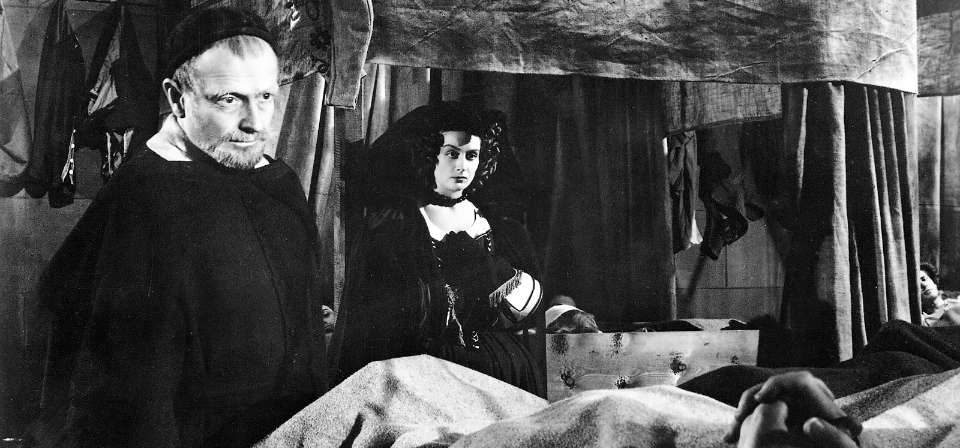
Monsieur Vincent (1947)
Monsieur Vincent, director Maurice Cloche’s beautifully crafted, award-winning biopic of St. Vincent de Paul, celebrates the saint’s single-minded devotion to the poor without romanticizing the objects of his devotion and recipients of his charity.
The Mission (1986)
From the unforgettable opening sequence, with its stunning depiction of the martyrdom of a silent Jesuit missionary at the hands of equally silent South American natives, the film is shot through with piercing, haunting imagery, pictures of enduring imaginative force.
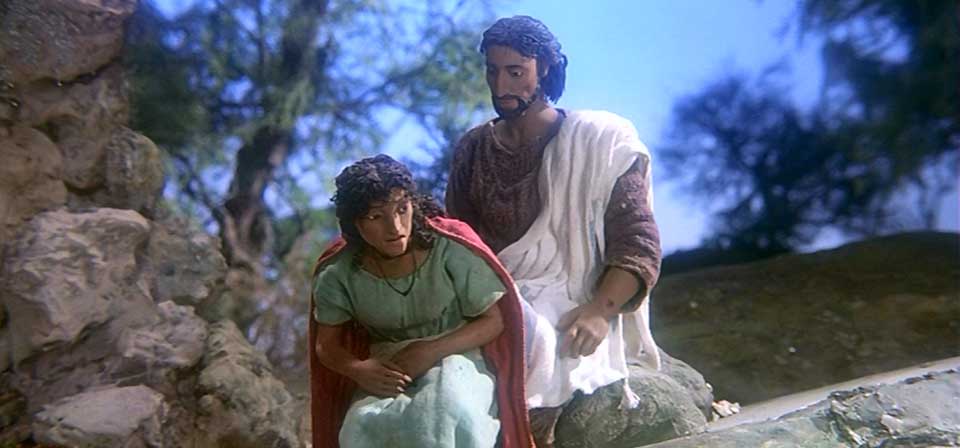
The Miracle Maker (2000)
Fiennes sounds like a man improvising a public speech as he delivers long-familiar words about the house on the rock or the parable of the mustard seed. His Jesus is attractive, composed, commanding, and compassionate; he can rise to righteous anger (as at the cleansing of the temple), but has an acute sense of humor (seen particularly in satirical parables such as the log in the eye).
Joseph: King of Dreams (2000)
Joseph’s own dreams — the two biblical ones plus an extra one — are the best; I caught my breath at the first glimpse of these dreams, which look like living, flowing Van Goghs. The dream-sky swirls like Starry Night, and the grass ripples under the dream-Joseph’s feet like ripples in a pond. The dreamlike quality of these sequences is undeniable and memorable.
Final Fantasy: The Spirits Within (2001)
Based on a computer game, Final Fantasy is always interesting to look at, and is sometimes visually spectacular, but it hasn’t transcended its gaming origins. The sci-fi scavanger-hunt premise hasn’t been fleshed out into a coherent or satisfying story. The heroes, though eye-poppingly rendered, remain emotionally as one-dimensional as any computer-game avatar. Even basic rules and motivations never become clear.
The End of the Affair (1999)
The film may be said to be largely faithful to the book, in the sense that the great majority of scenes are adapted more or less as they were written. But this is like saying that the character of Sarah (Julianne Moore) is largely faithful to her husband Henry (Stephen Rea) because the great majority of her time she isn’t sleeping with her lover Bendrix (Ralph Fiennes): the betrayal is crucial, and gives the lie to the supposed fidelity of the rest.
The Detective [Father Brown] (1954)
Guinness makes a delightfully enjoyable Father Brown, and the film’s dialogue sparkles with flashes of Chestertonian wit. … Alas, this well-intentioned and otherwise enjoyable film is marred by several serious missteps.
Dead Man Walking (1995)
Tim Robbins argues his point fearlessly, not taking the easy way out, not stacking the deck by emotionally manipulating the audience, but instead taking a worst-case scenario: Rather than giving us a murderer who isn’t really so bad, merely misunderstood and mistreated and so forth, Robbins gives us a thoroughly revolting individual, one who spouts racist propaganda not because he believes it but simply because it is shocking and antisocial and hateful; who tries to humiliate the one person interested in his welfare with leering come-ons aimed at her consecrated chastity.
Come to the Stable (1949)
The bishop (Basil Ruysdael) is a decent enough chap, sympathetic to the sisters’ mission but daunted by the practical difficulties. As their cause goes forward, however, he begins to suspect that what’s driving them is an irresistible force before which there is no known immovable object: "There hasn’t been for 2000 years."
Becket (1964)
Peter O’Toole roars magnificently both in laughter and in rage; his Henry is a simple, direct, utterly unprincipled man who sees the world in two great categories: (a) things he wants, and (b) obstacles to getting them.
Babette’s Feast (1987)
In the end, Babette’s Feast is a quiet celebration of the divine grace that meets us at every turn, and even redeems our ways not taken, our sacrifices and losses. Whatever we think has been given up or lost, God gives back in greater abundance, one way or another. It may not be till heaven that we truly become all that he intends; but his grace is here and now, whatever our circumstances, and with him all things are possible.
Angels with Dirty Faces (1938)
The Dead End Kids have dirty faces, all right — but they’re no angels. Tough-talking young hoods much given to slapping one another’s faces and terrorizing their lower East Side Manhattan neighborhood, they may tolerate sincere, savvy Father Jerry Connolly (Pat O’Brien) and his efforts to divert them from the dangers of life on the street; but it’s in Fr. Jerry’s boyhood chum, infamous gangster Rocky Sullivan (James Cagney), that the Kids find a mentor and kindred spirit.
The Robe (1953)
The Robe is the story of the other Roman soldier at the foot of the cross — not Longinus, but the one who wins a toss of dice and takes home the robe of Christ.
Recent
Home Video
Copyright © 2000– Steven D. Greydanus. All rights reserved.